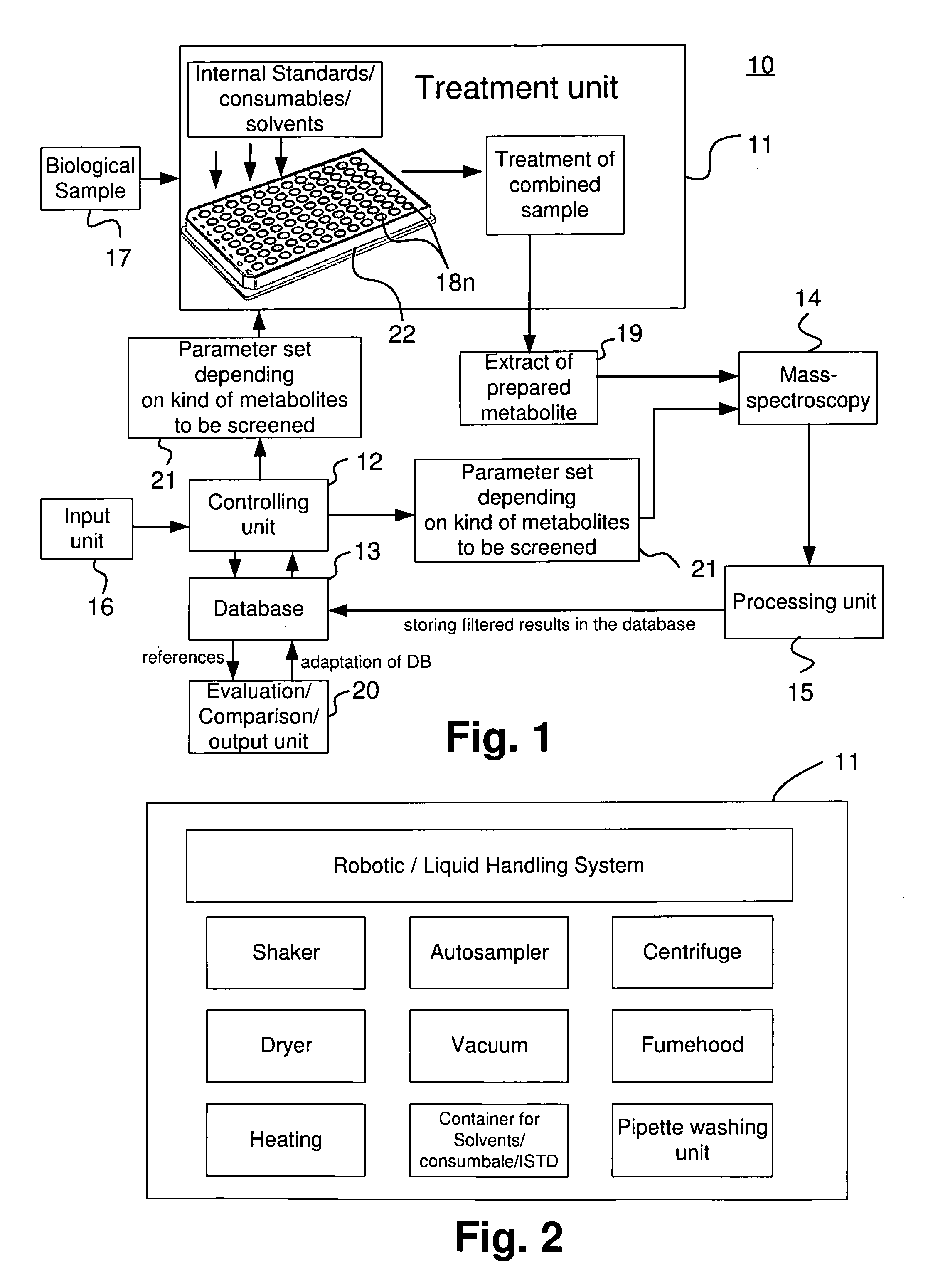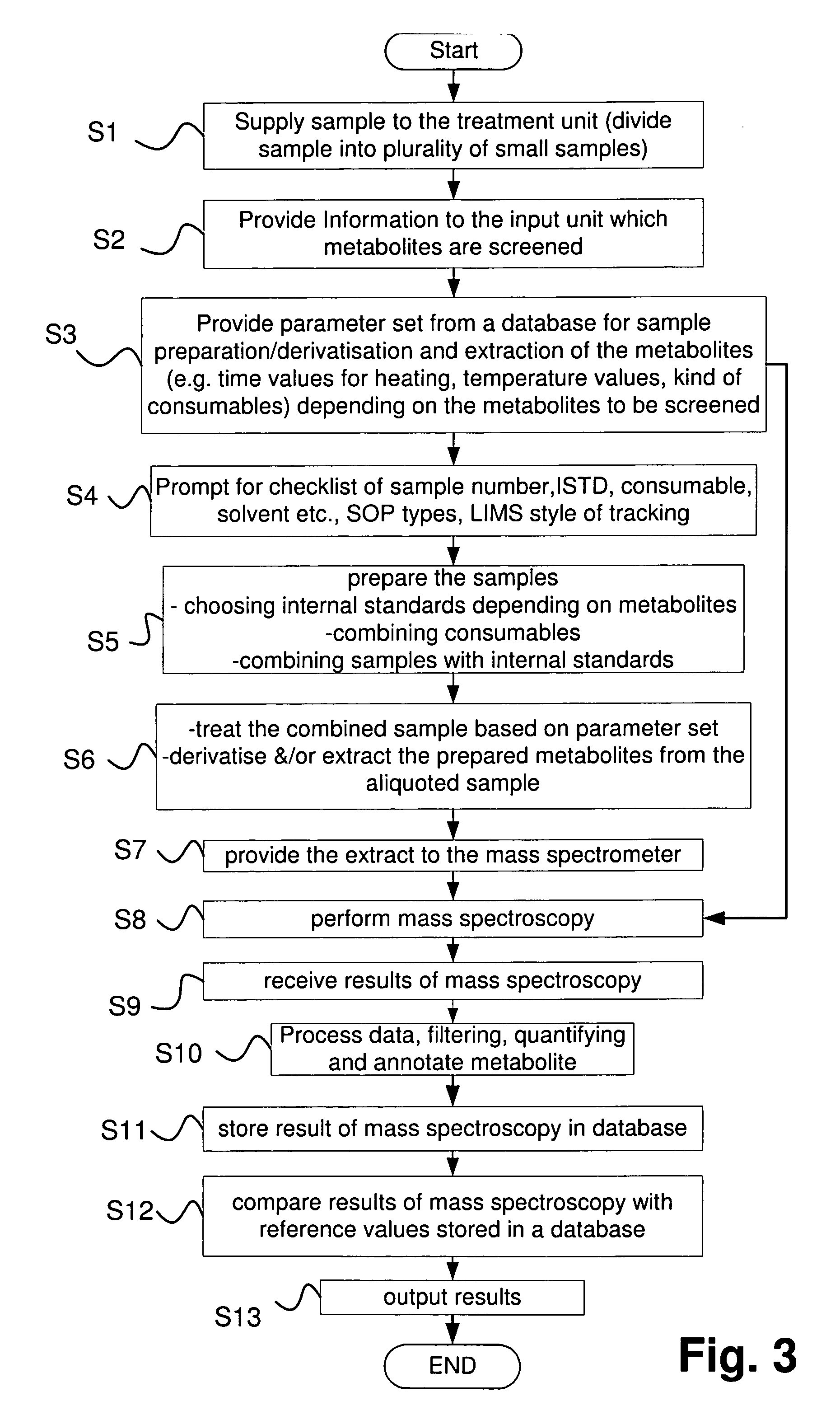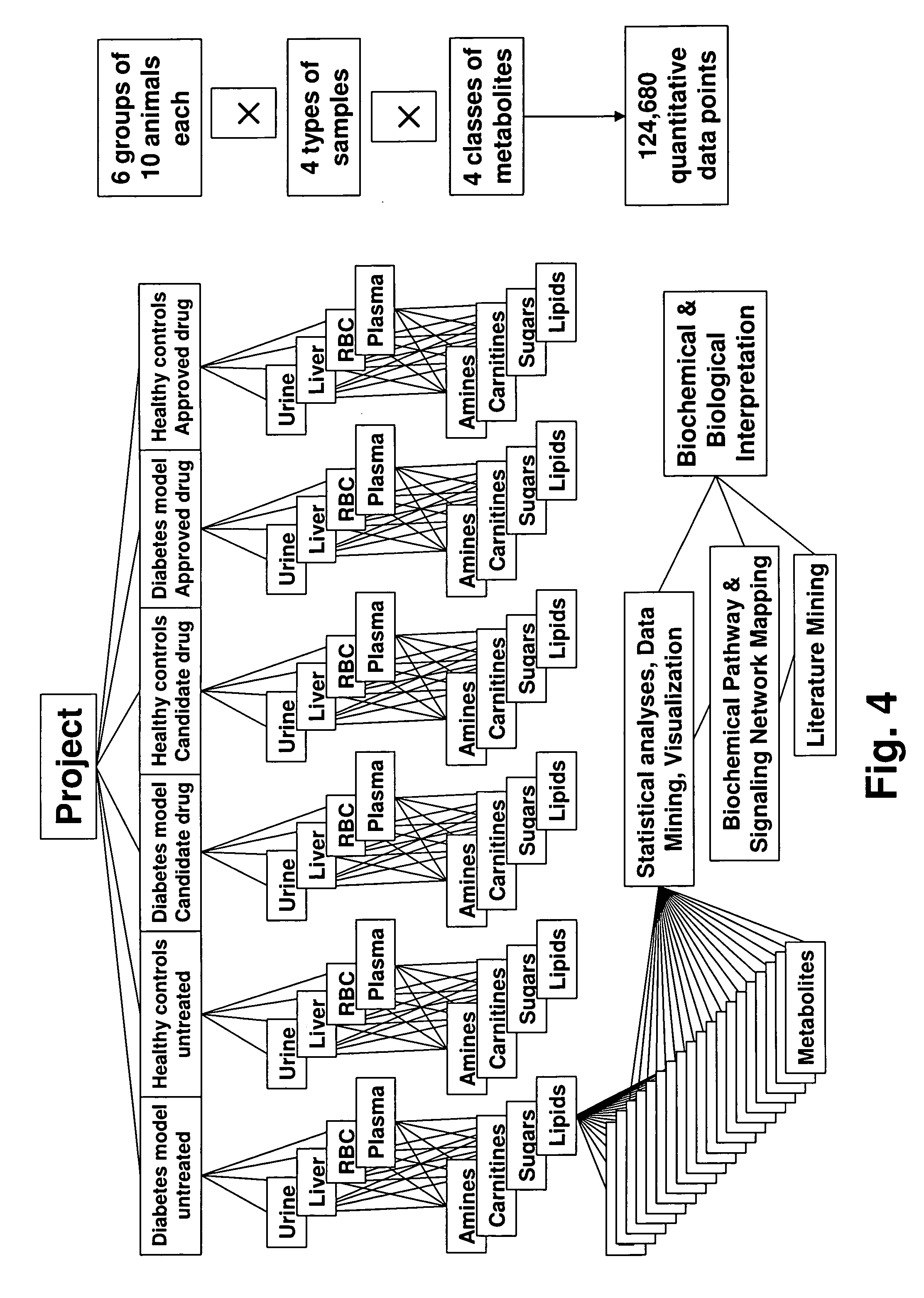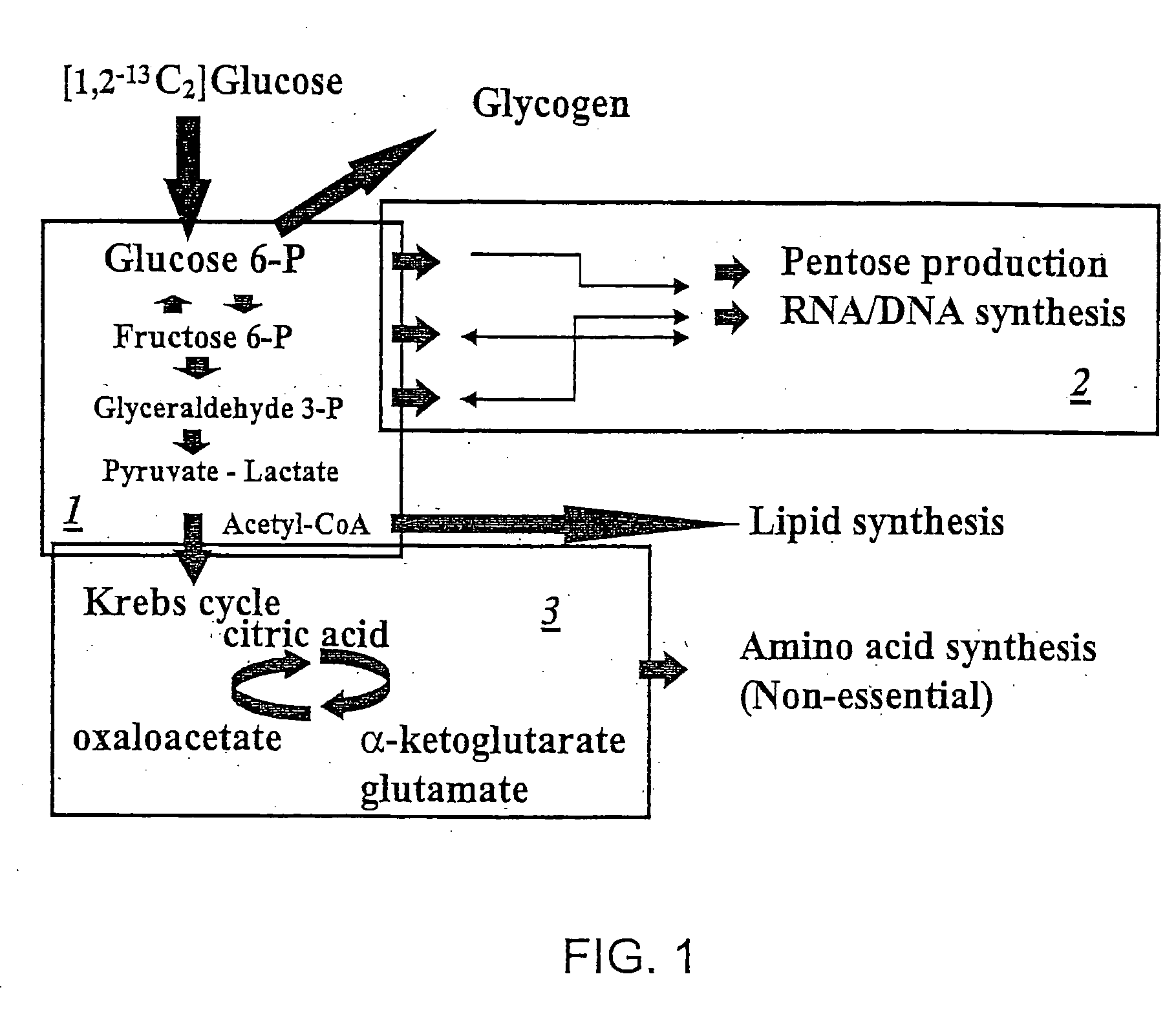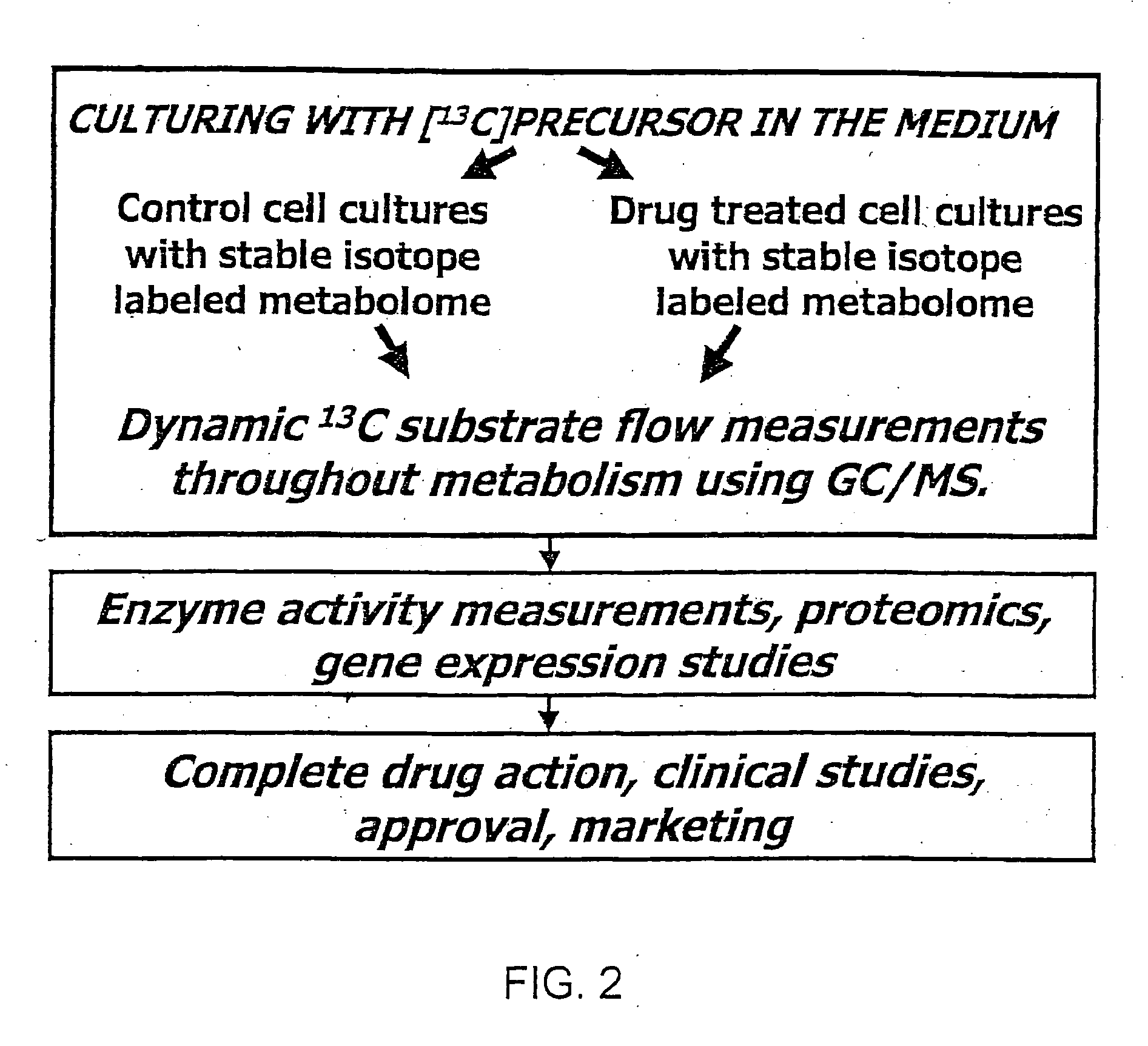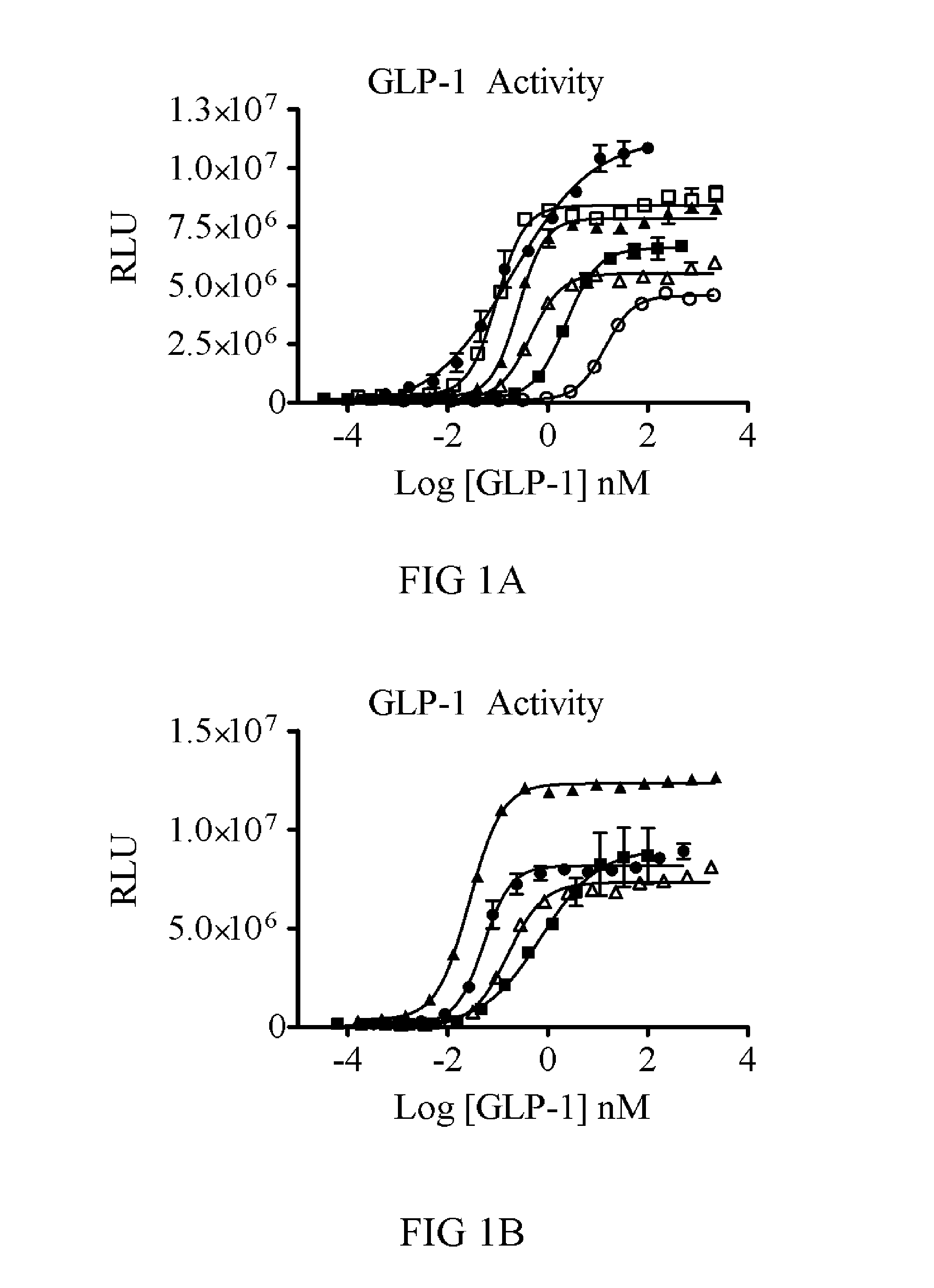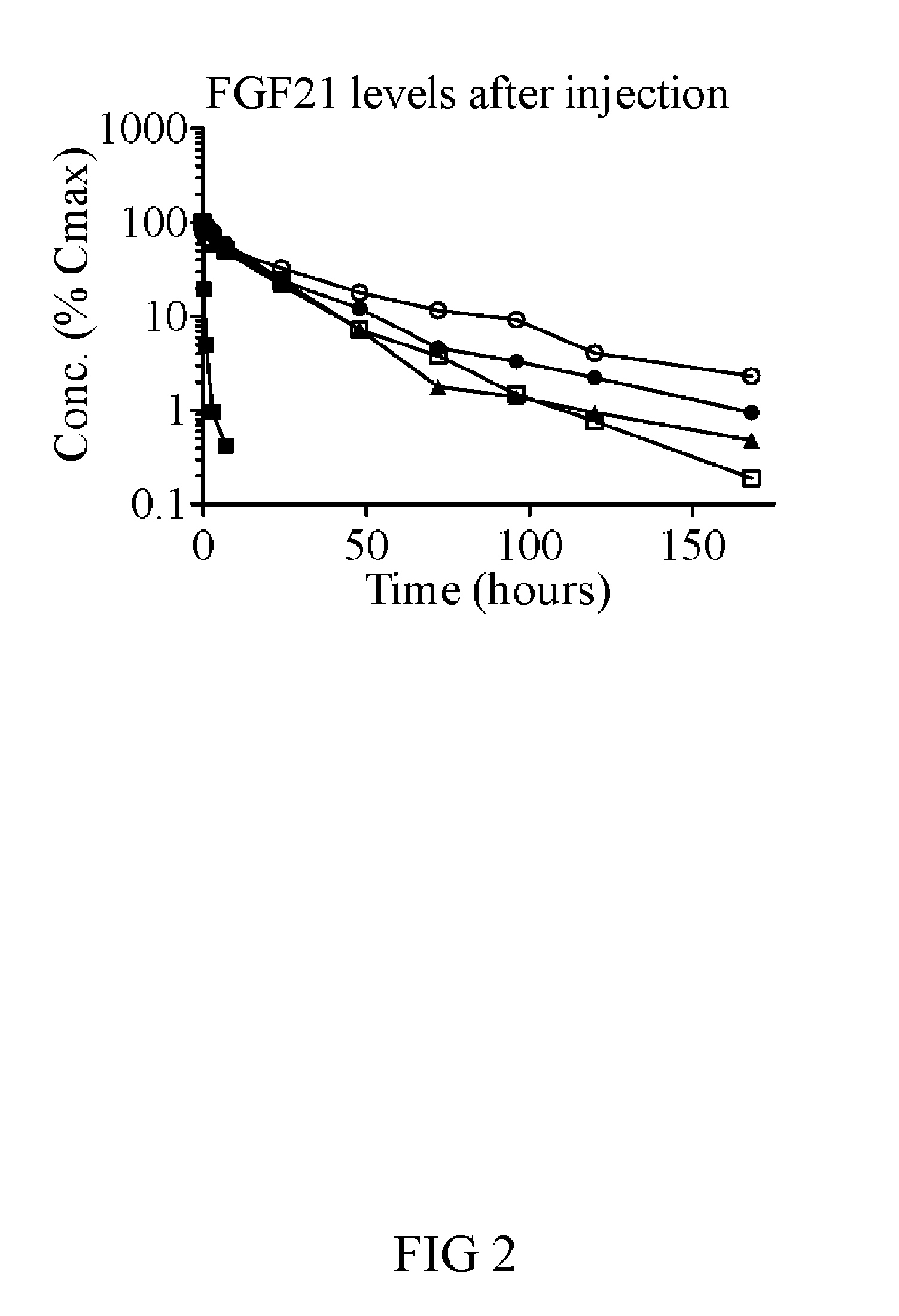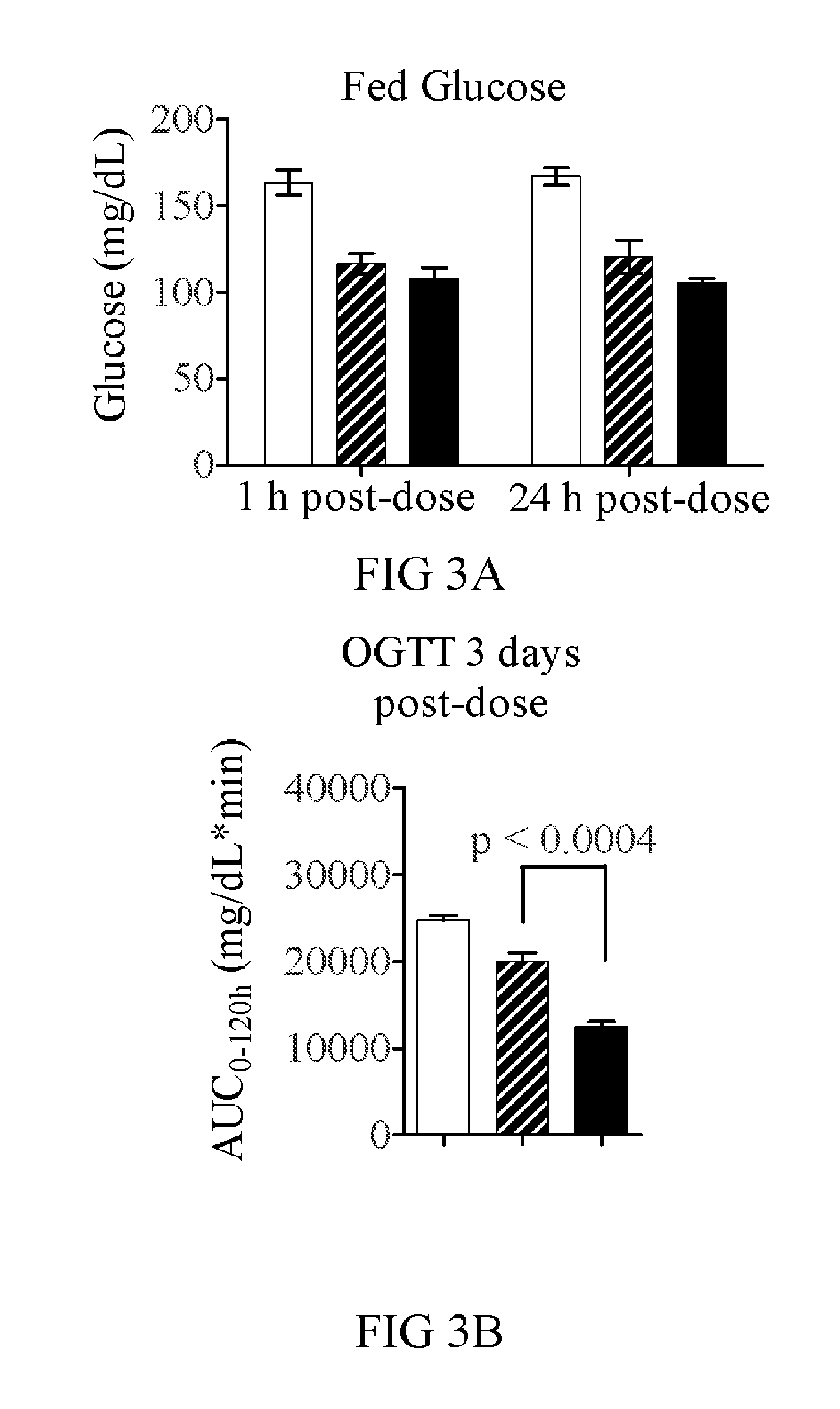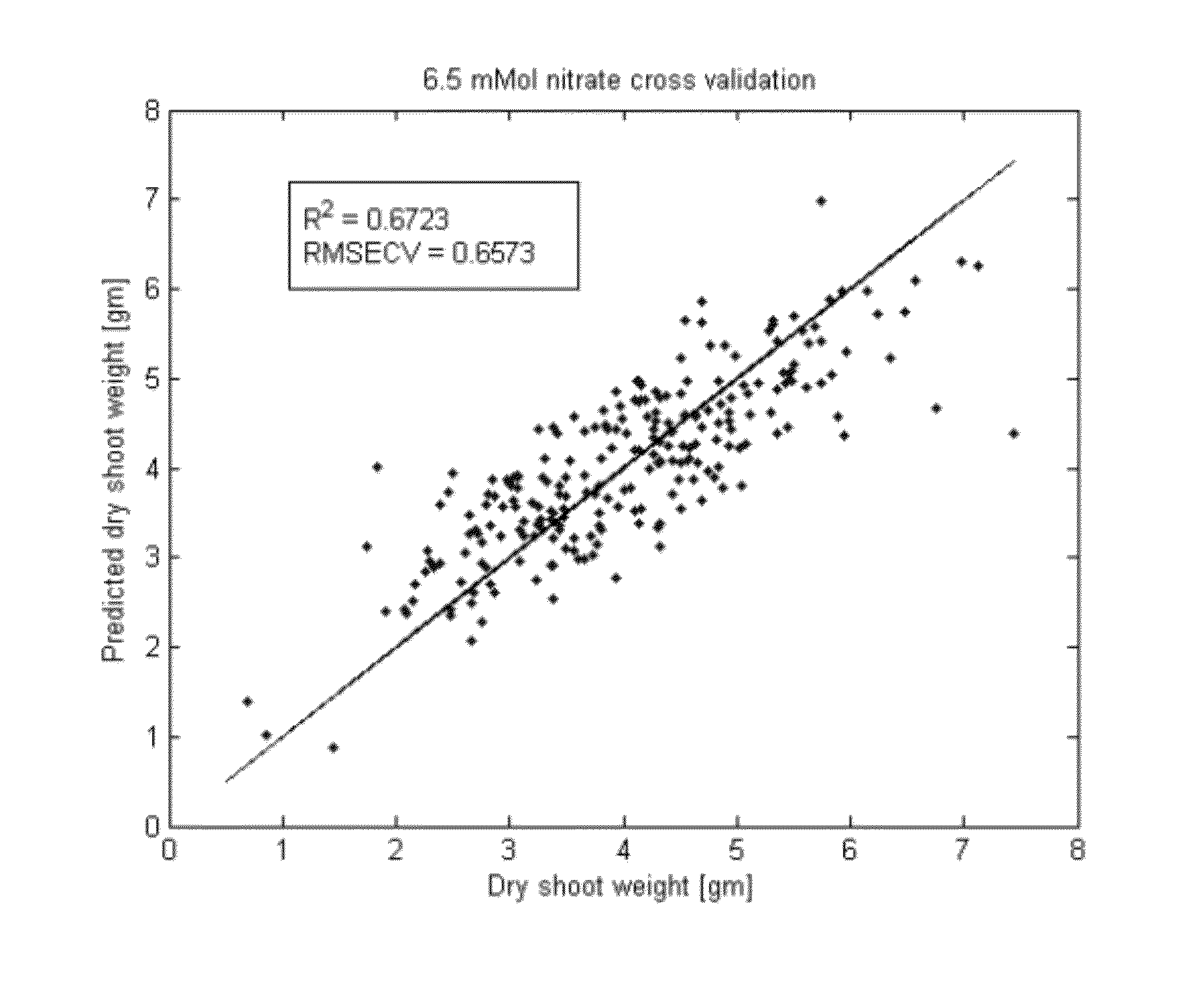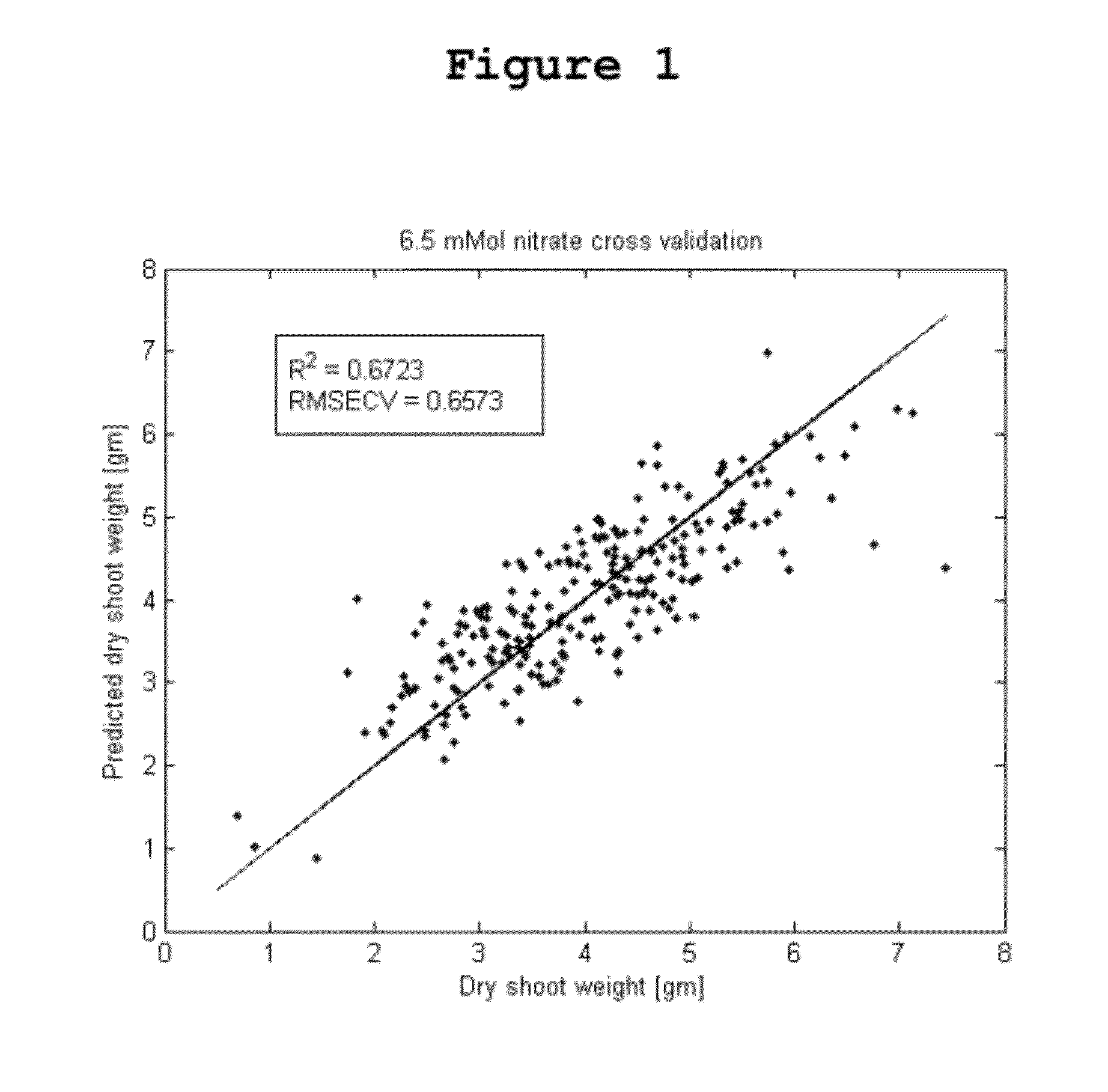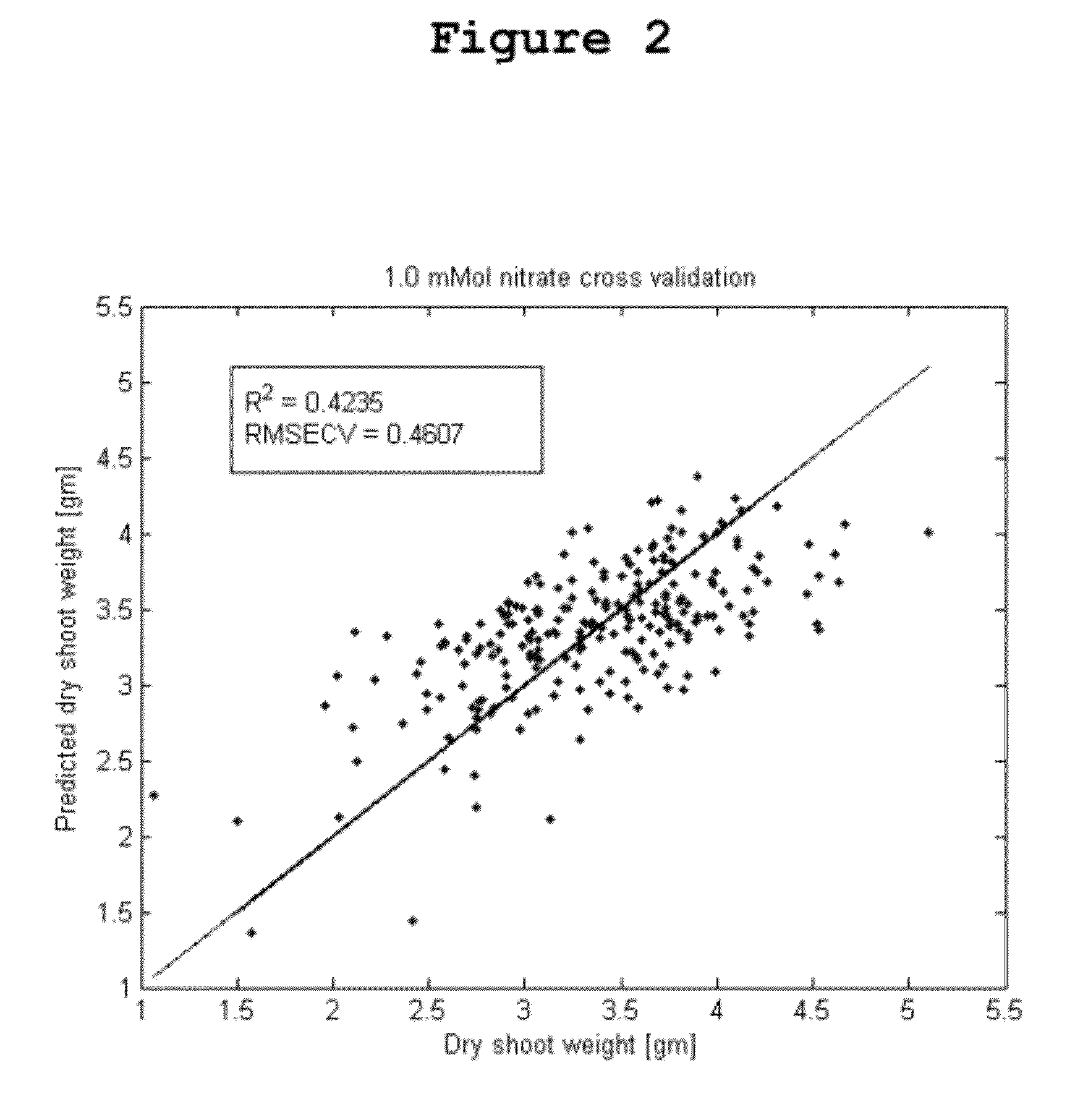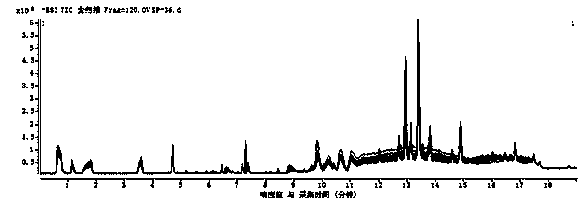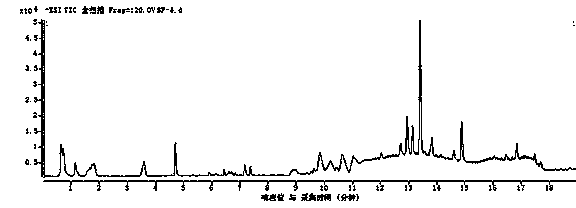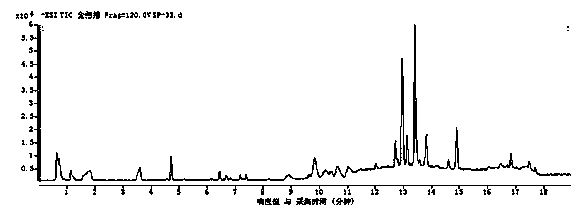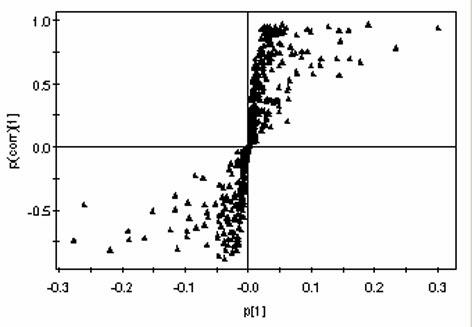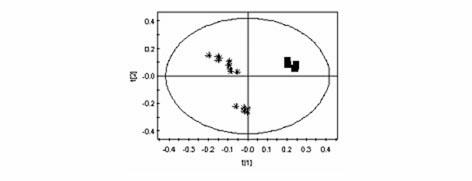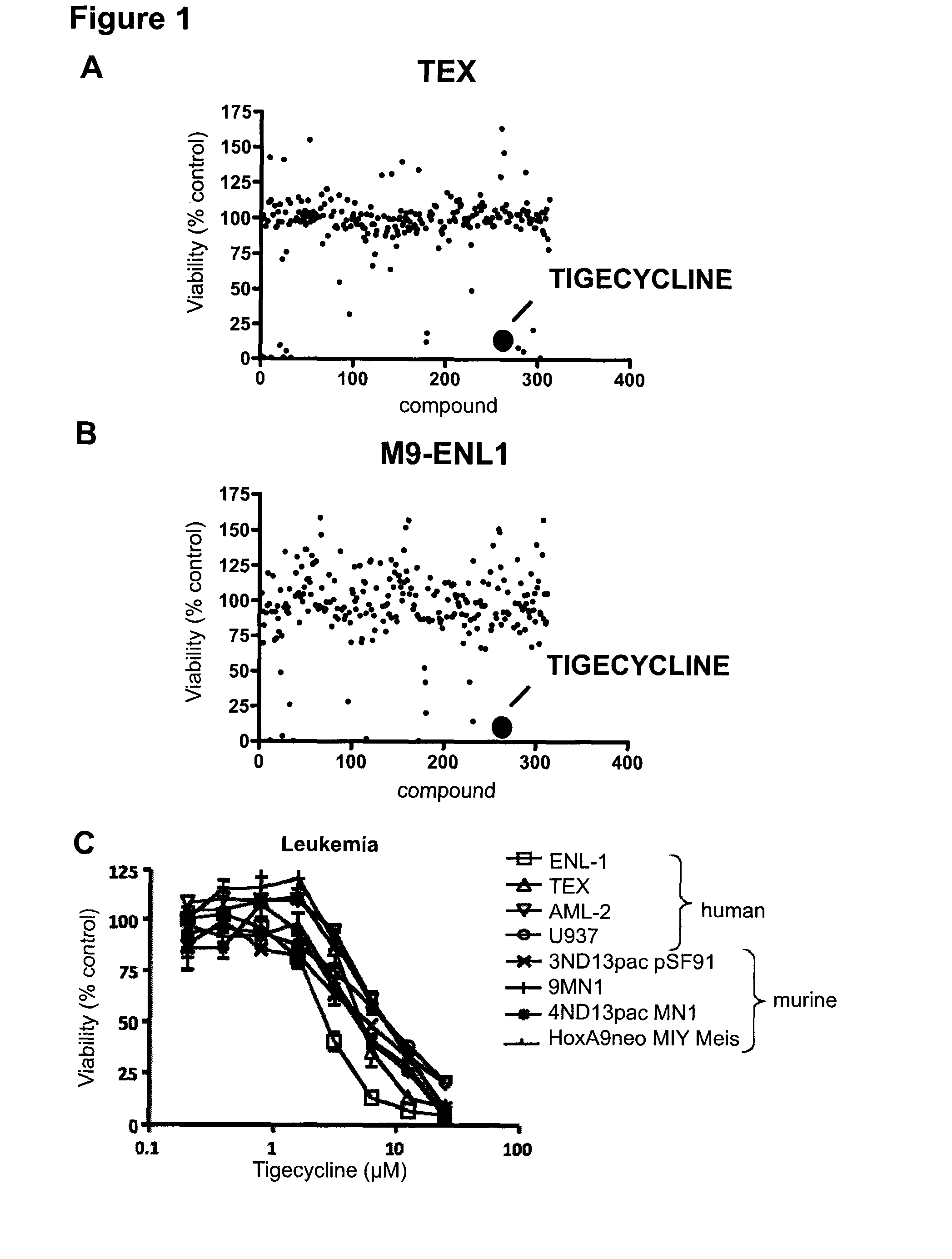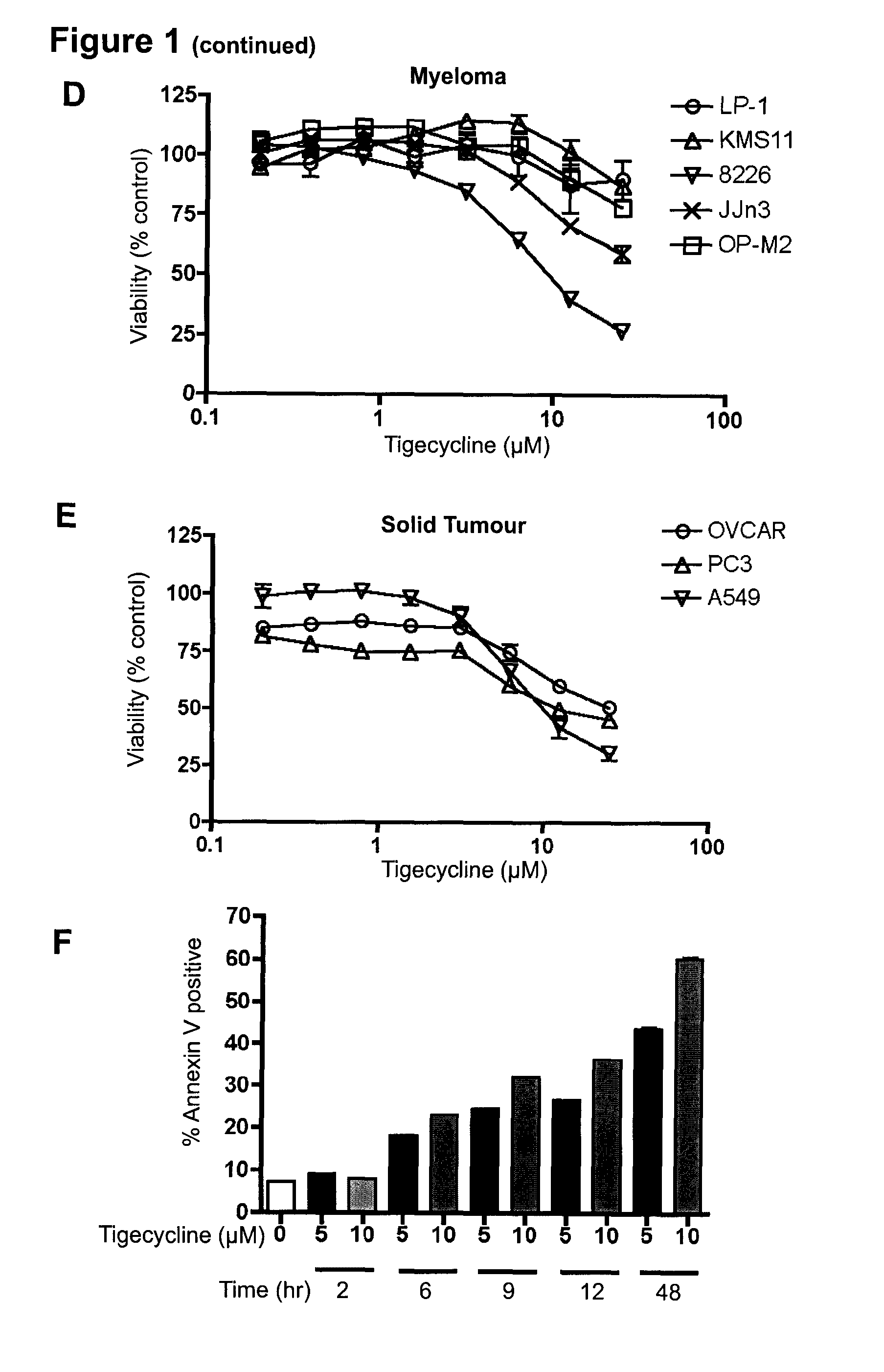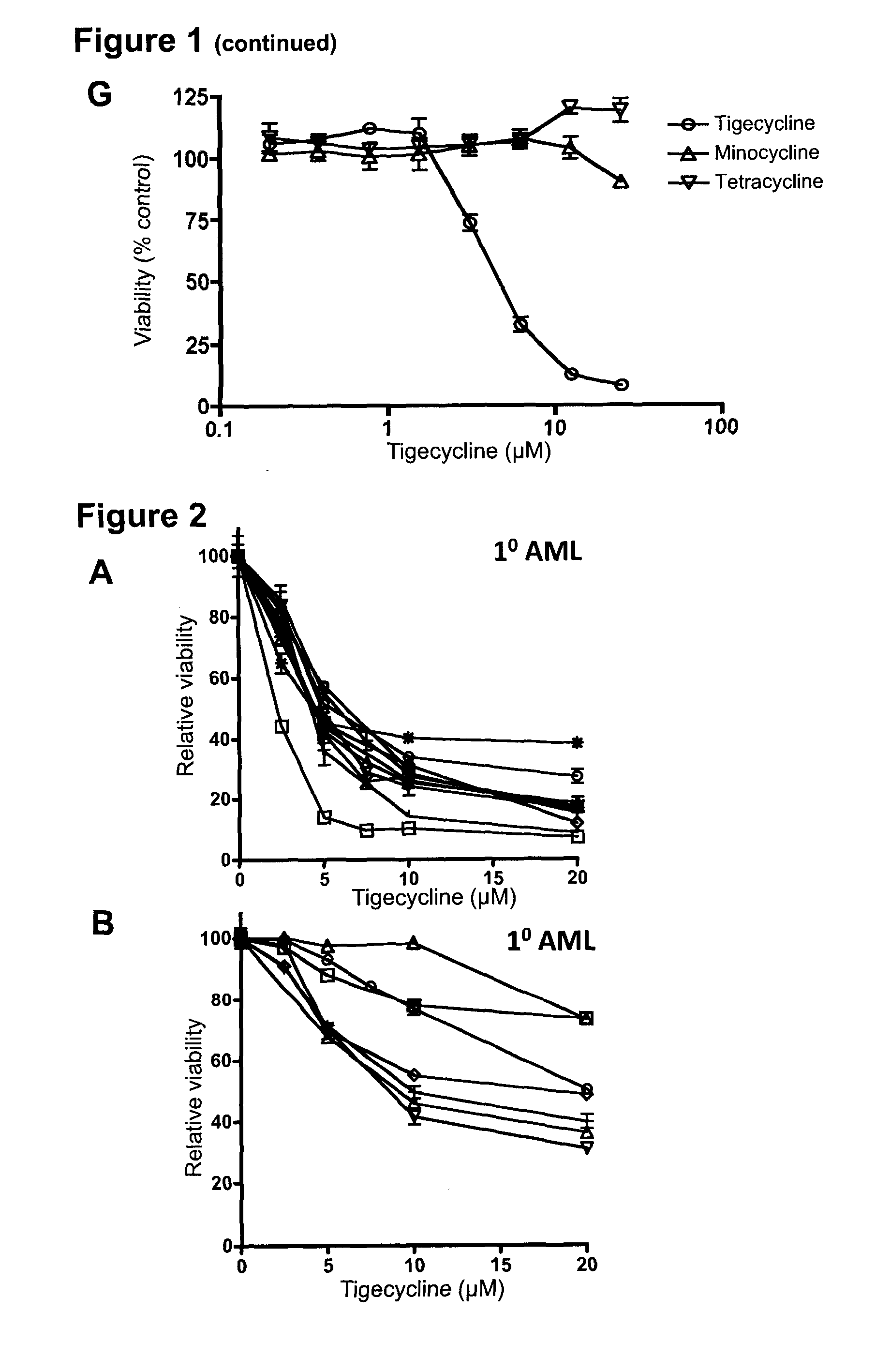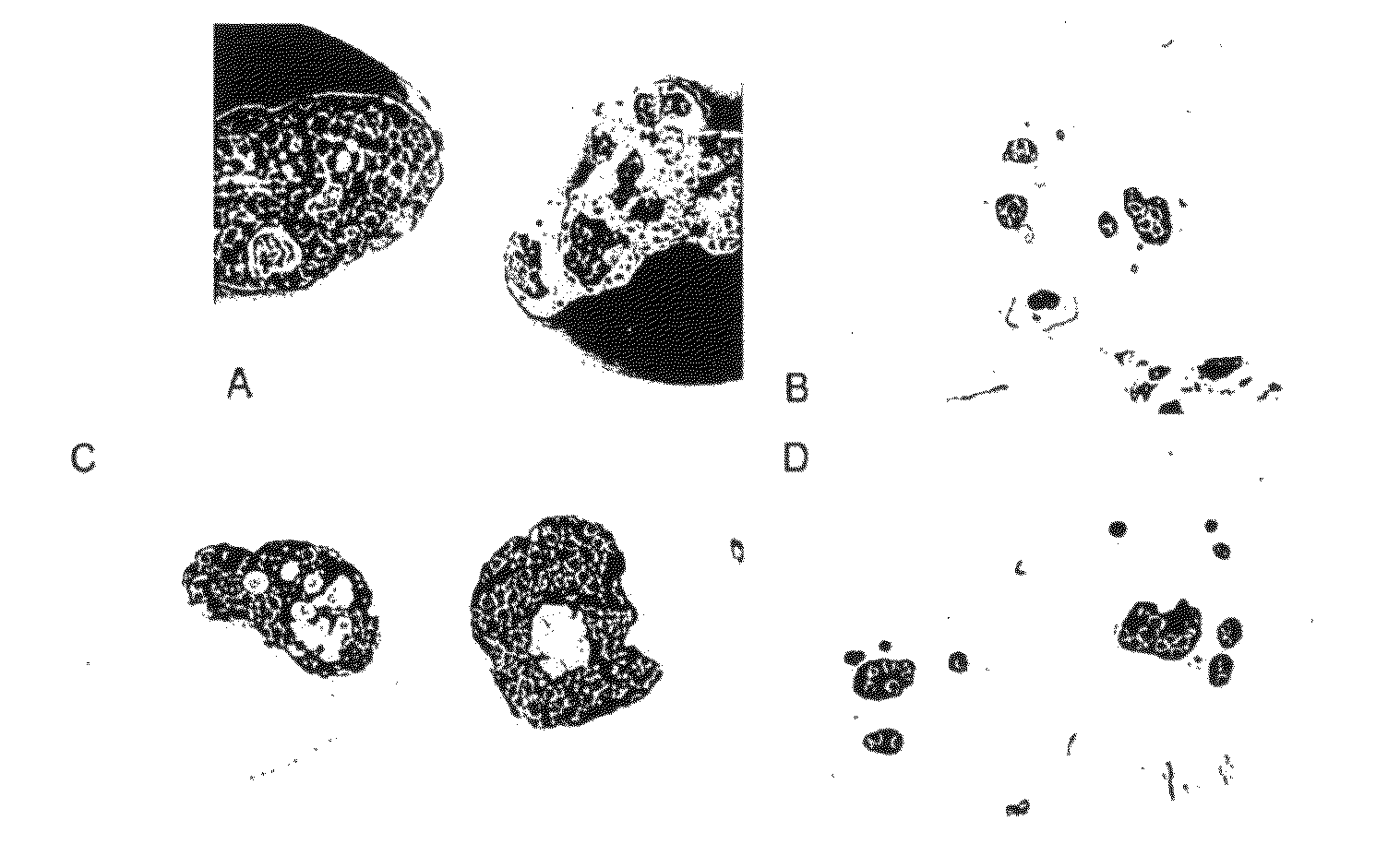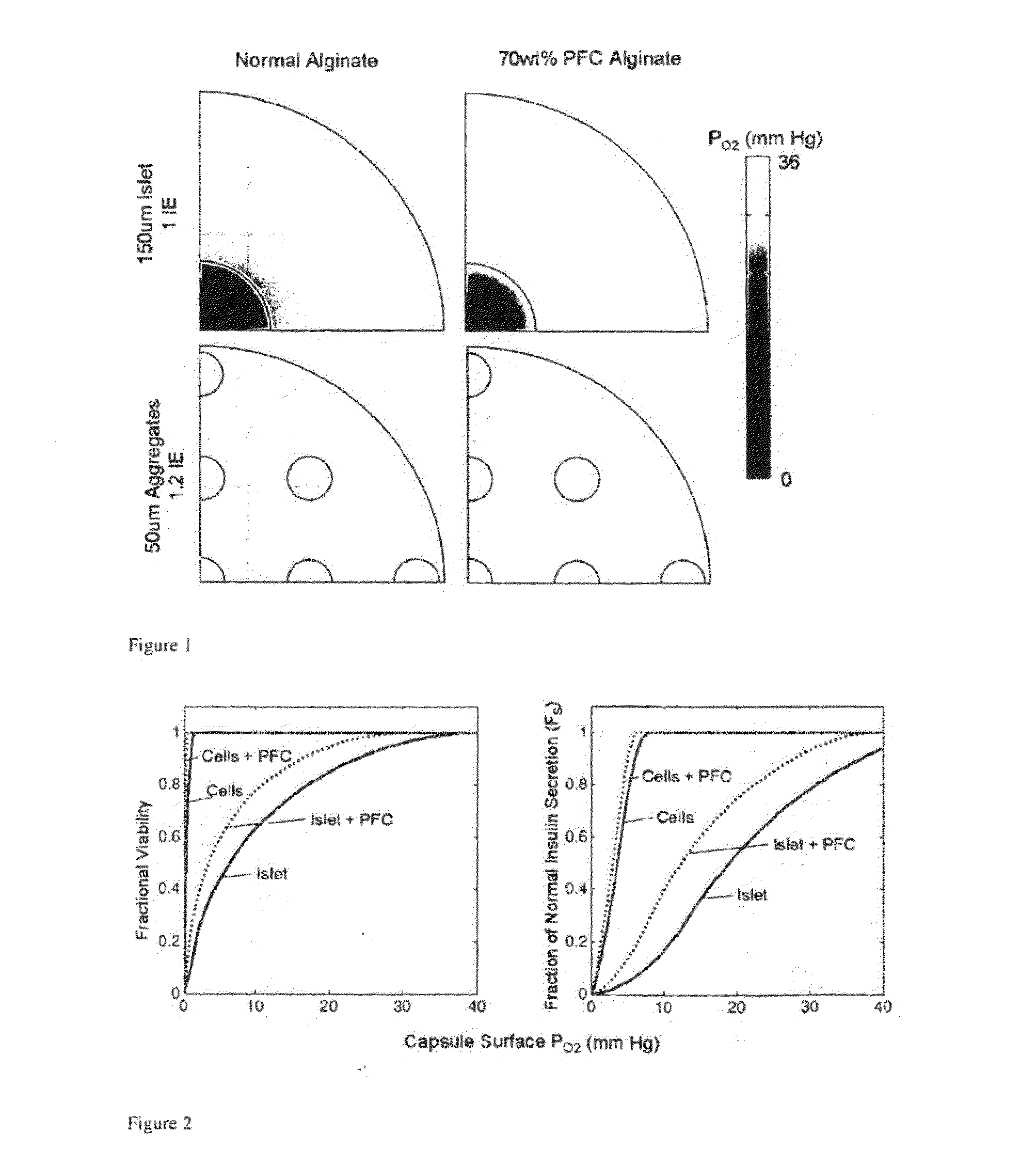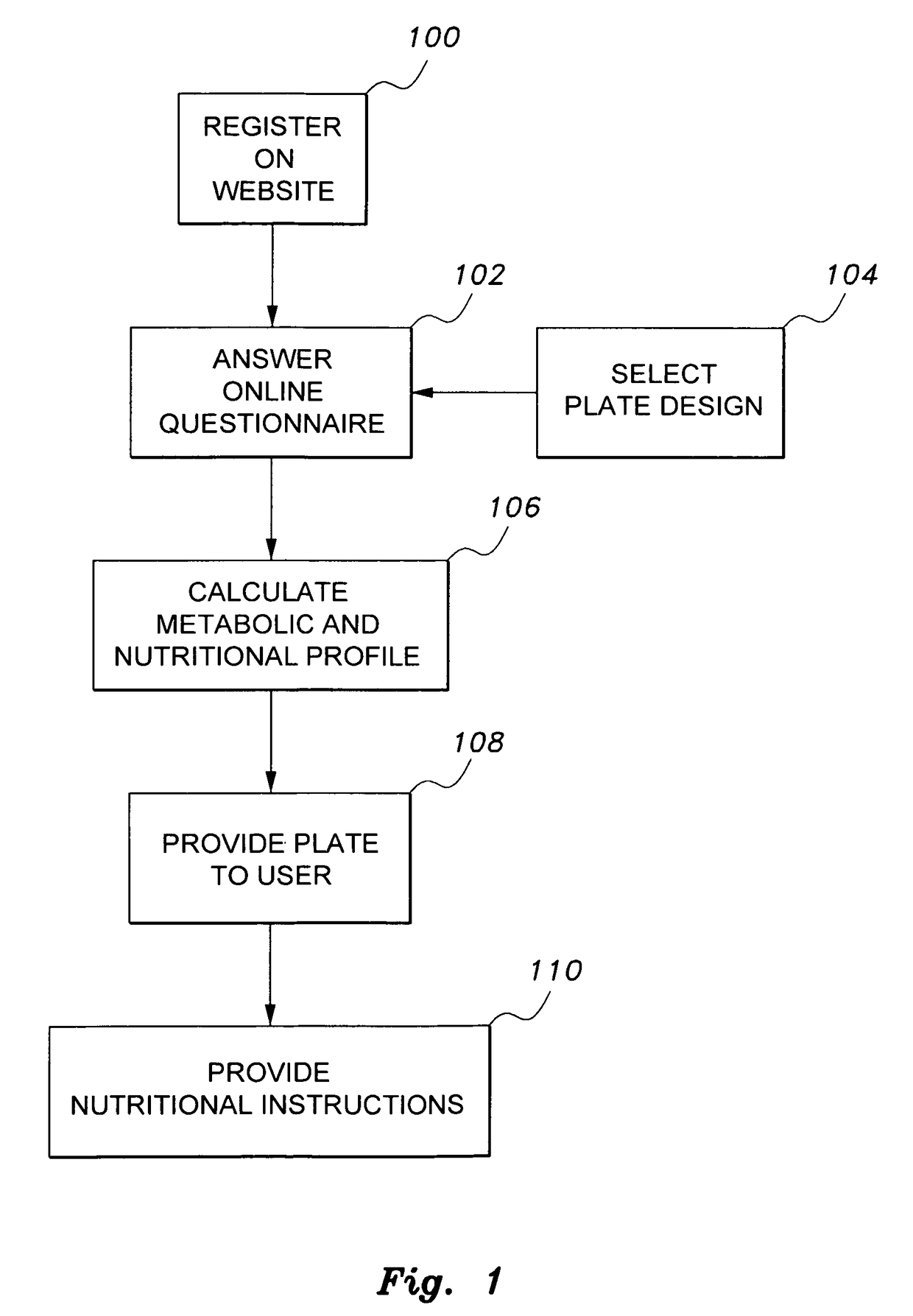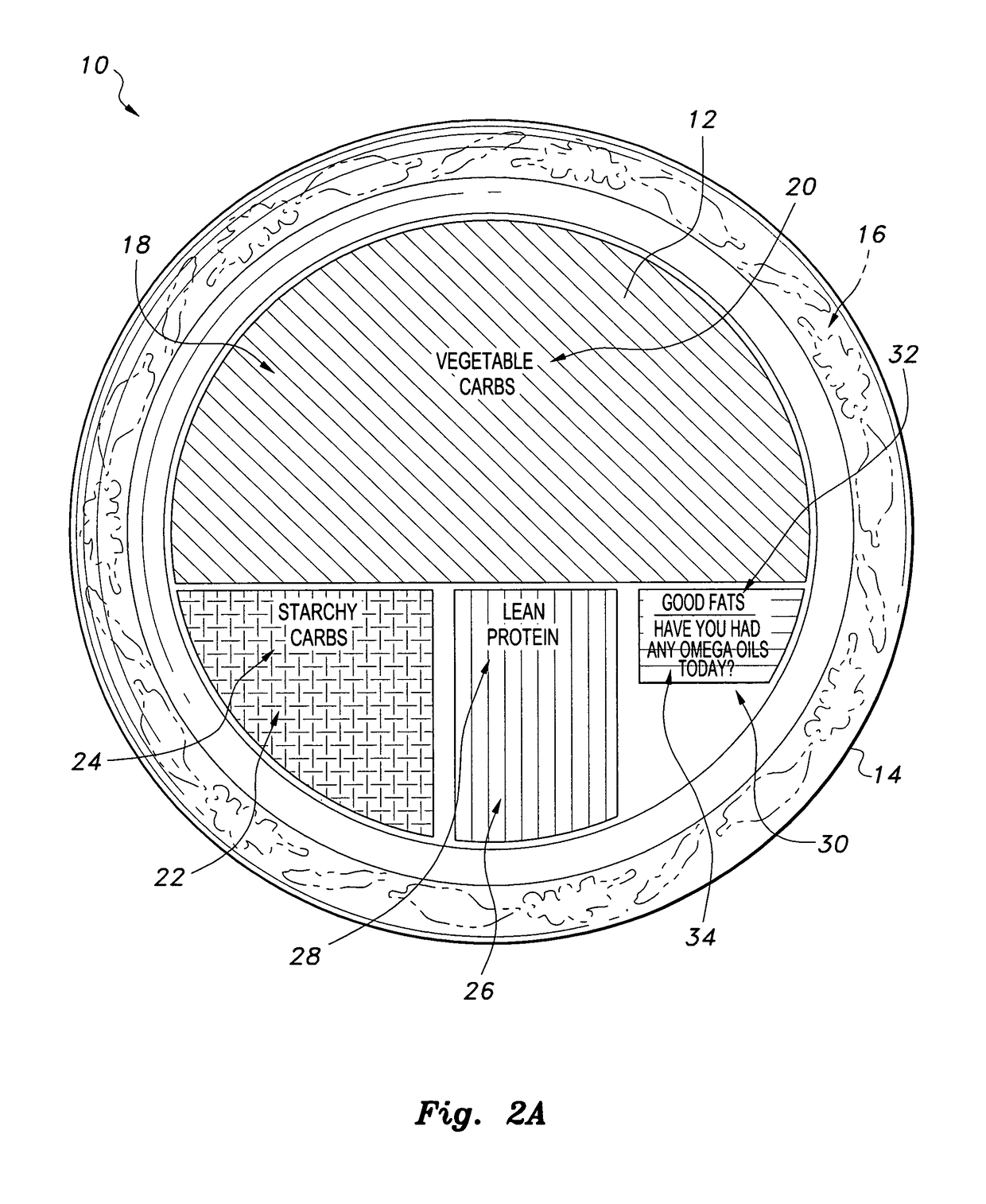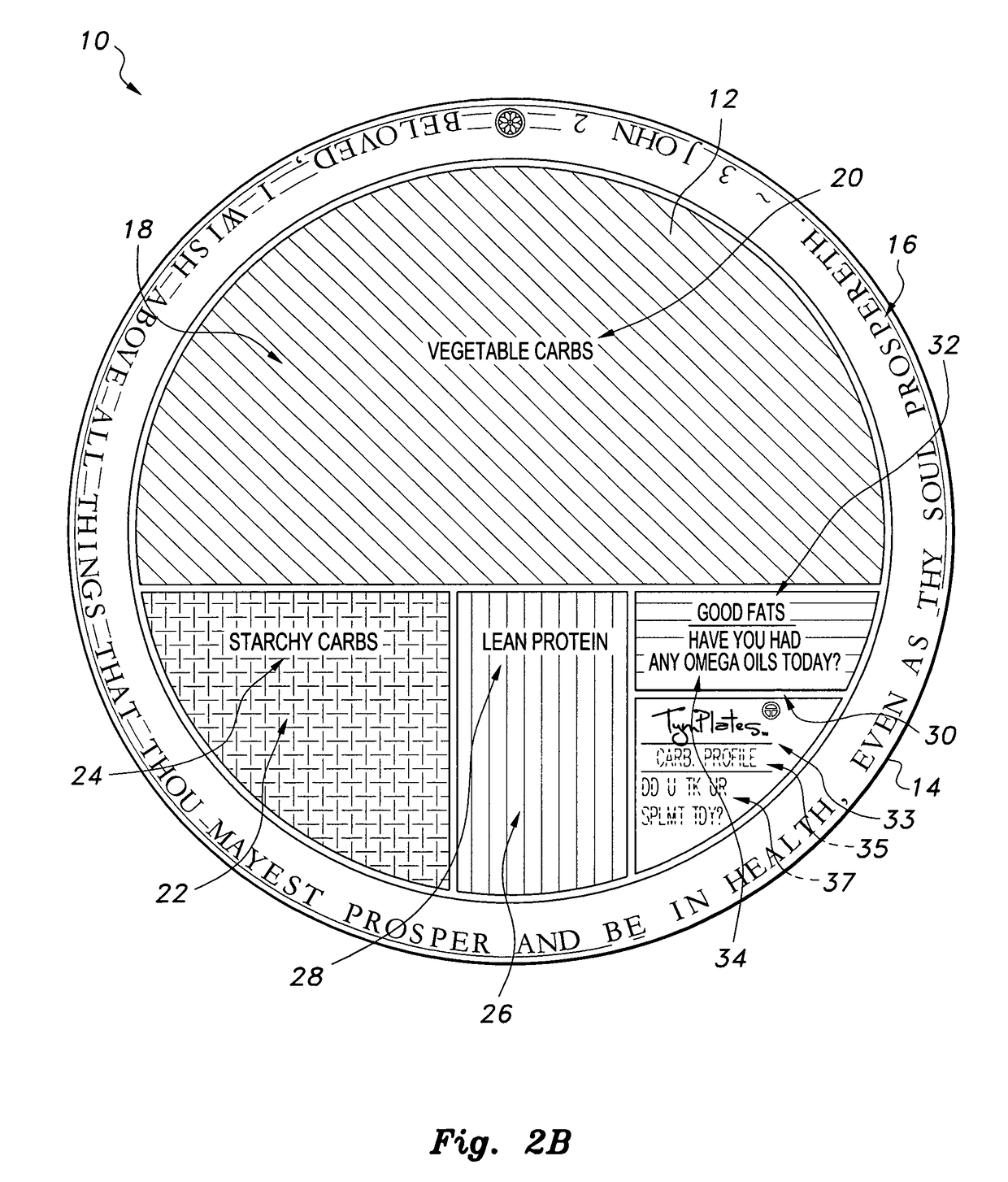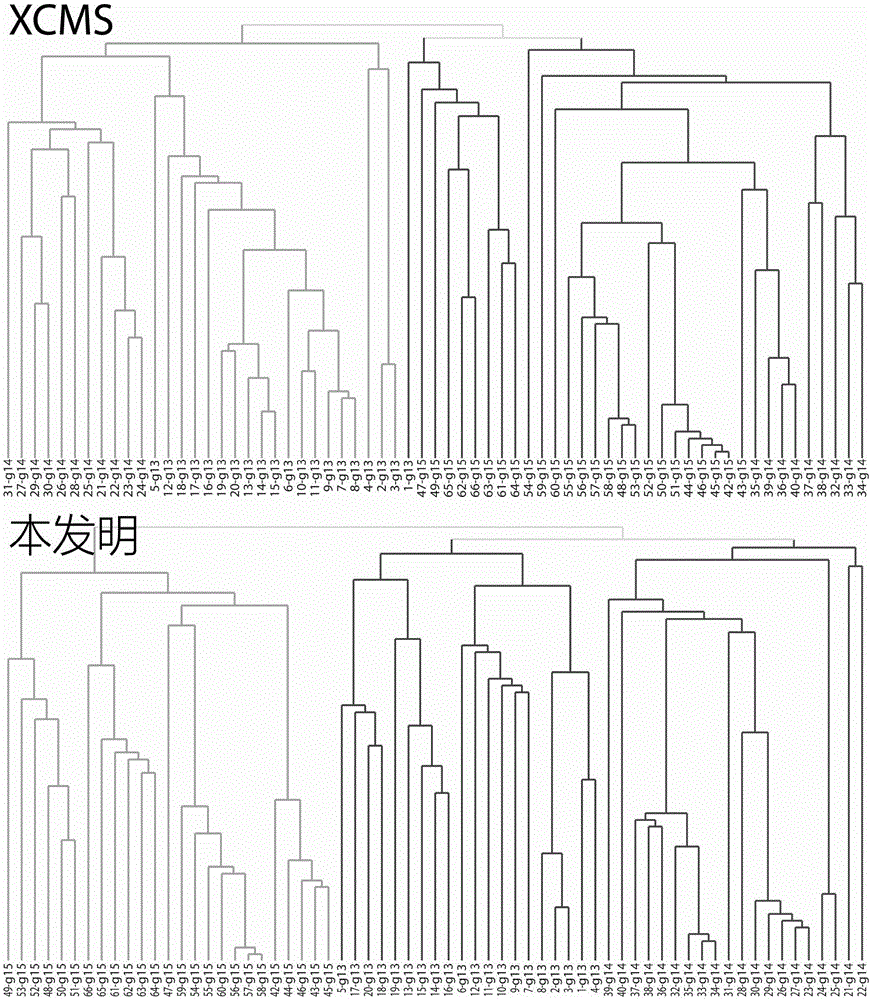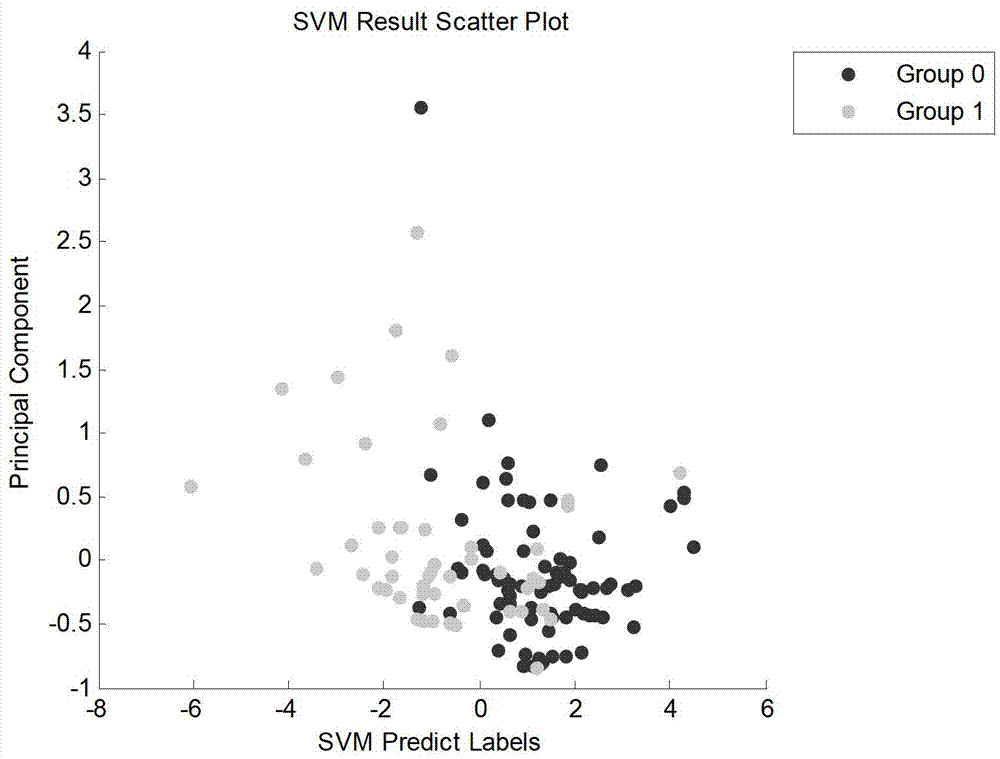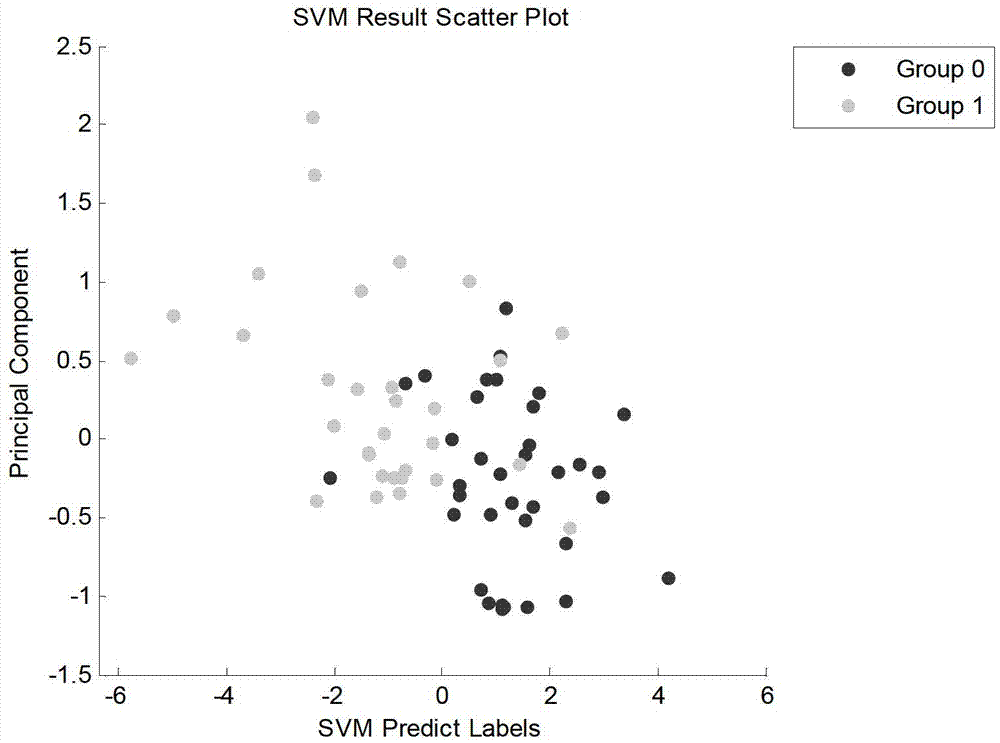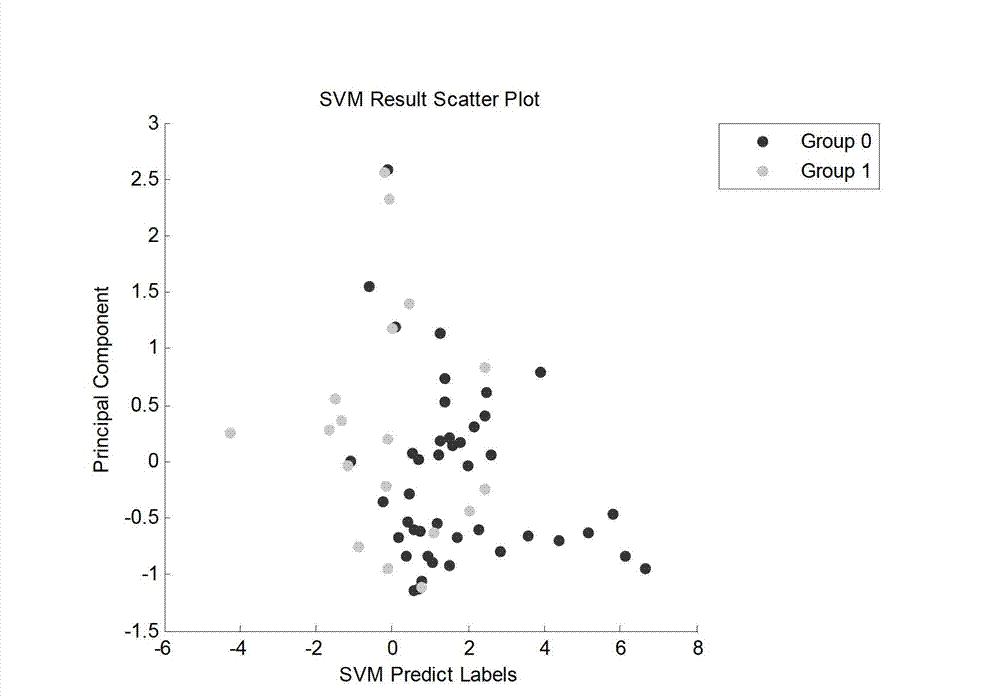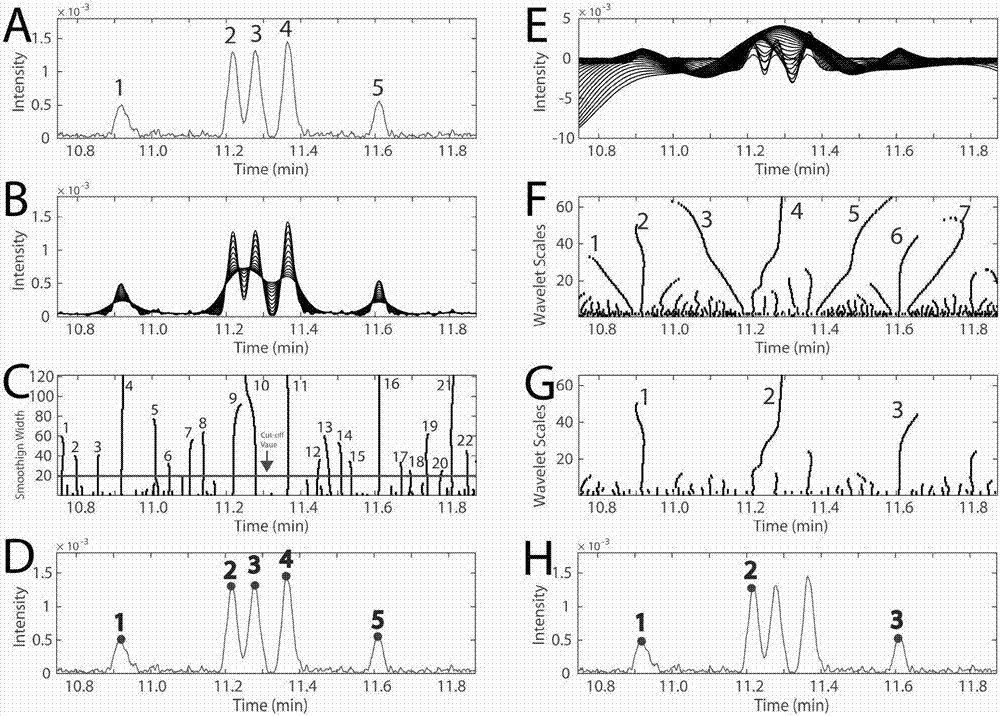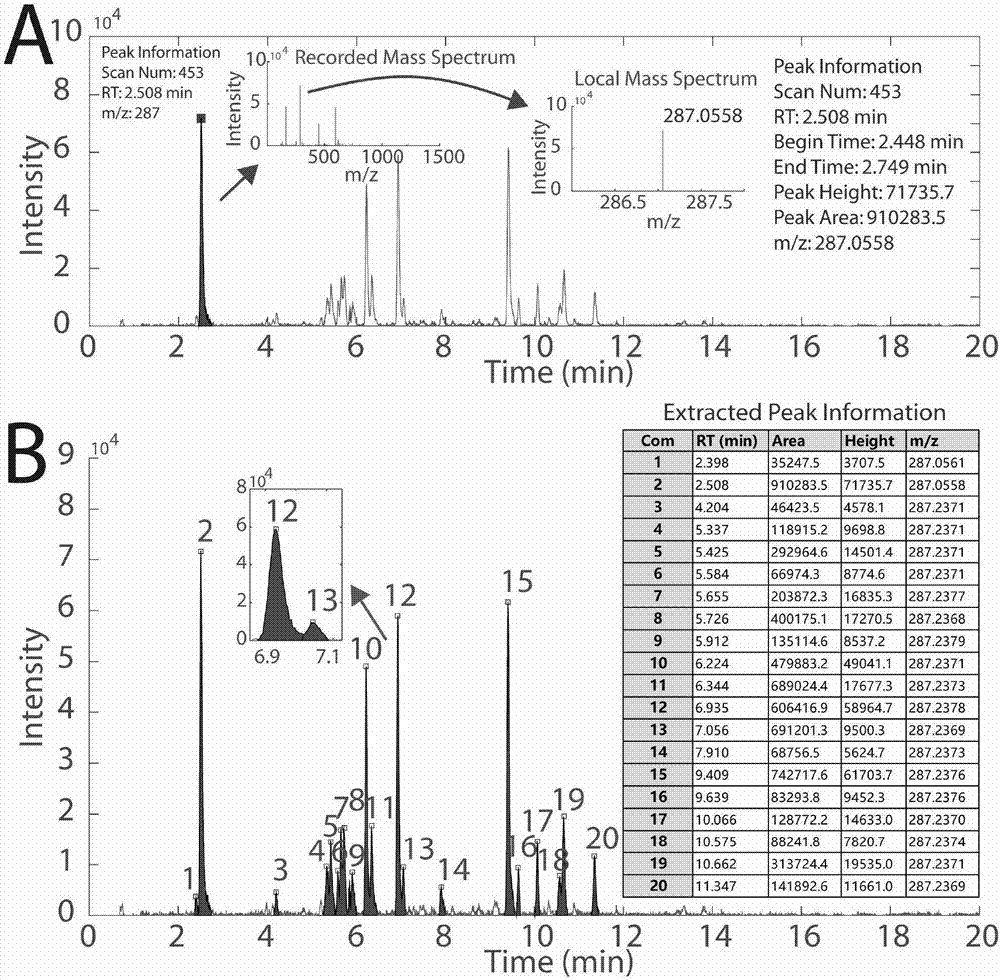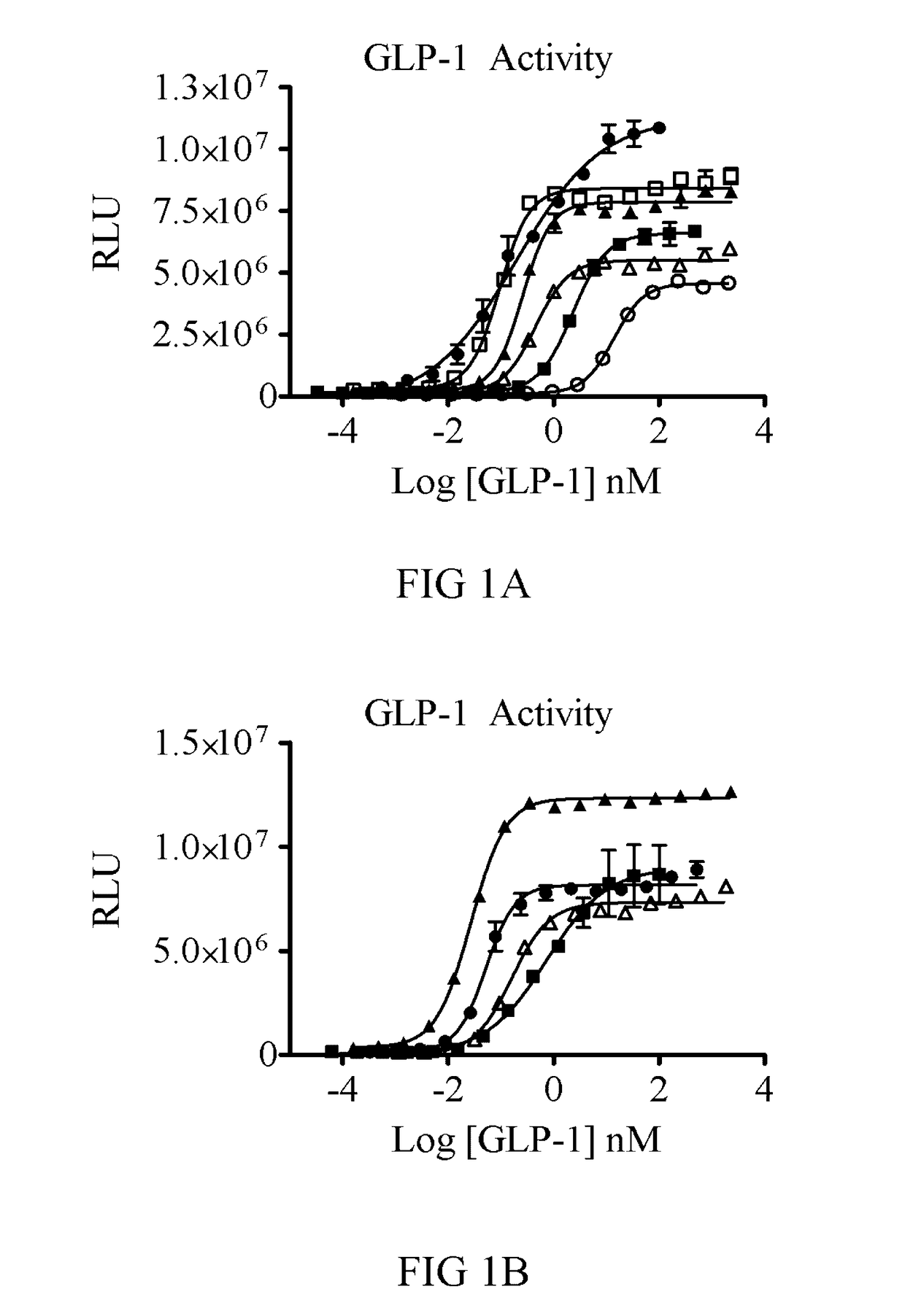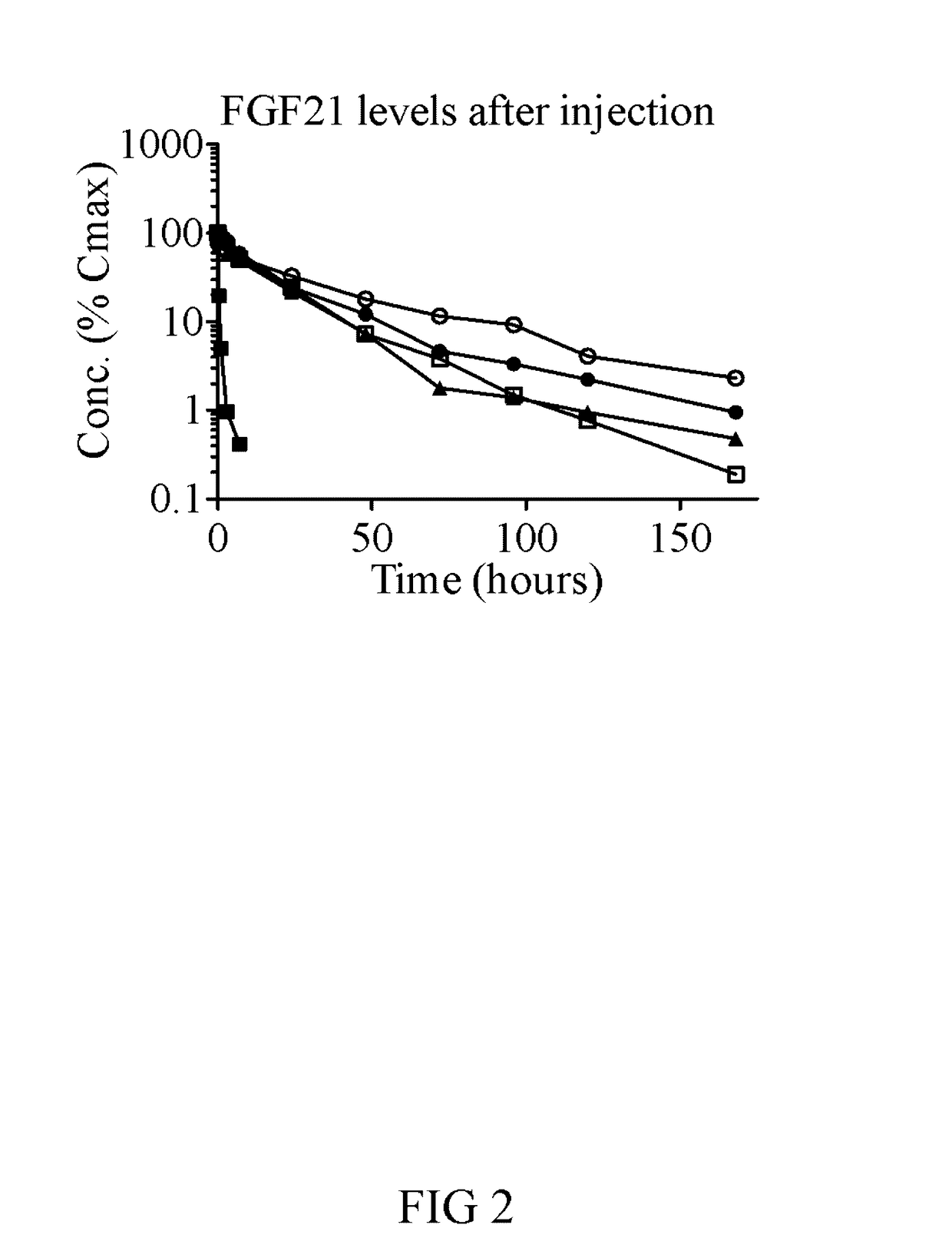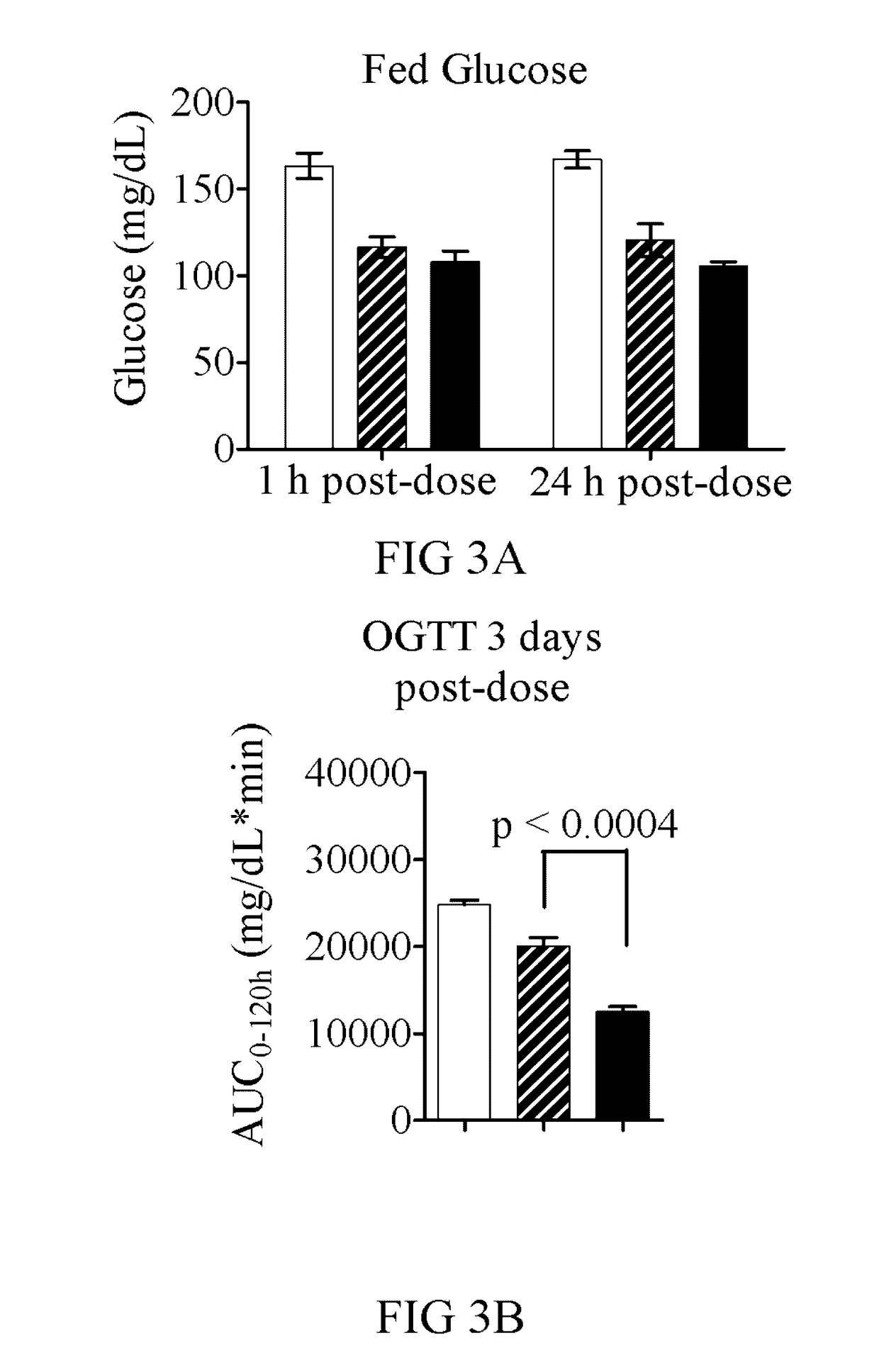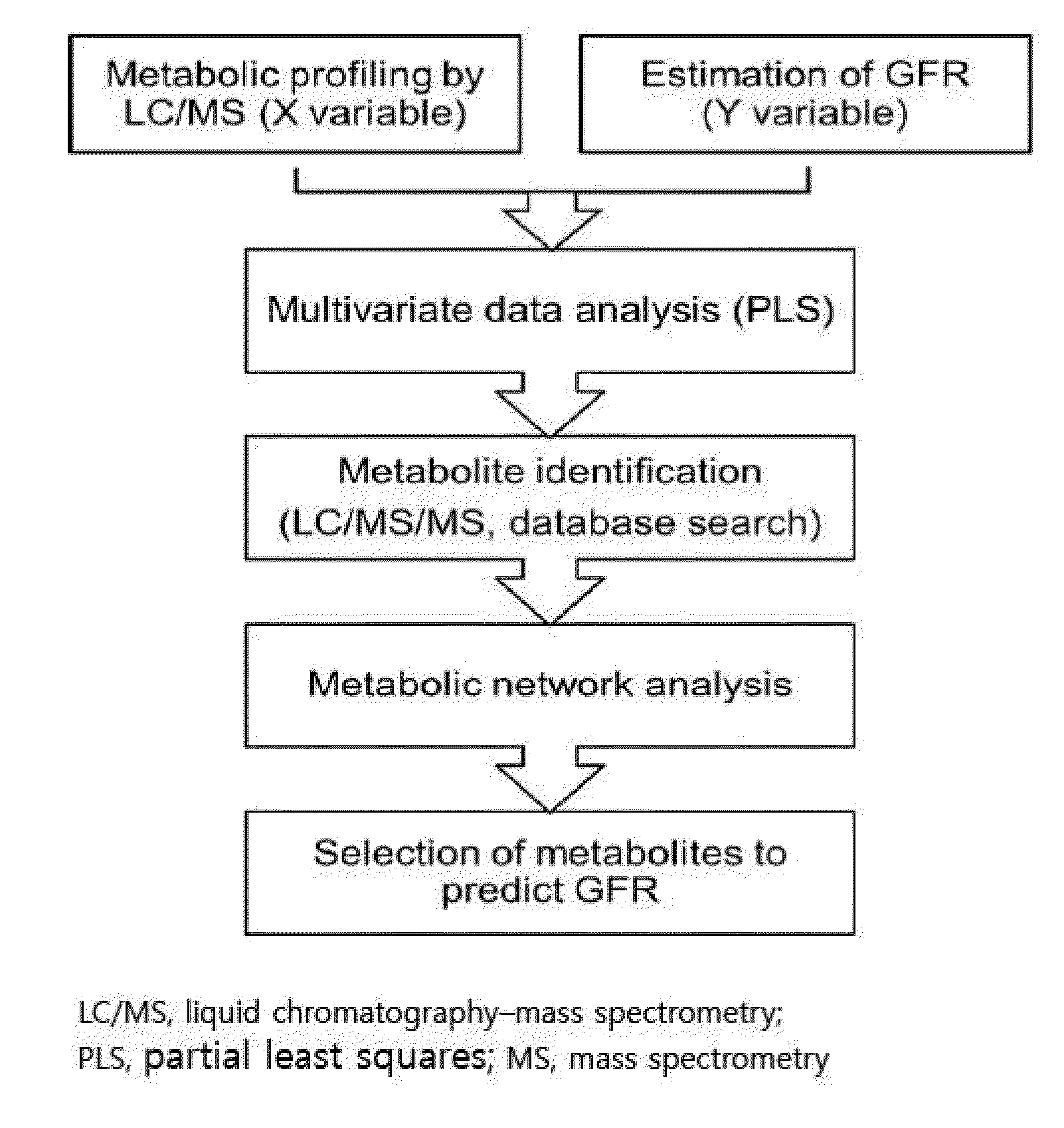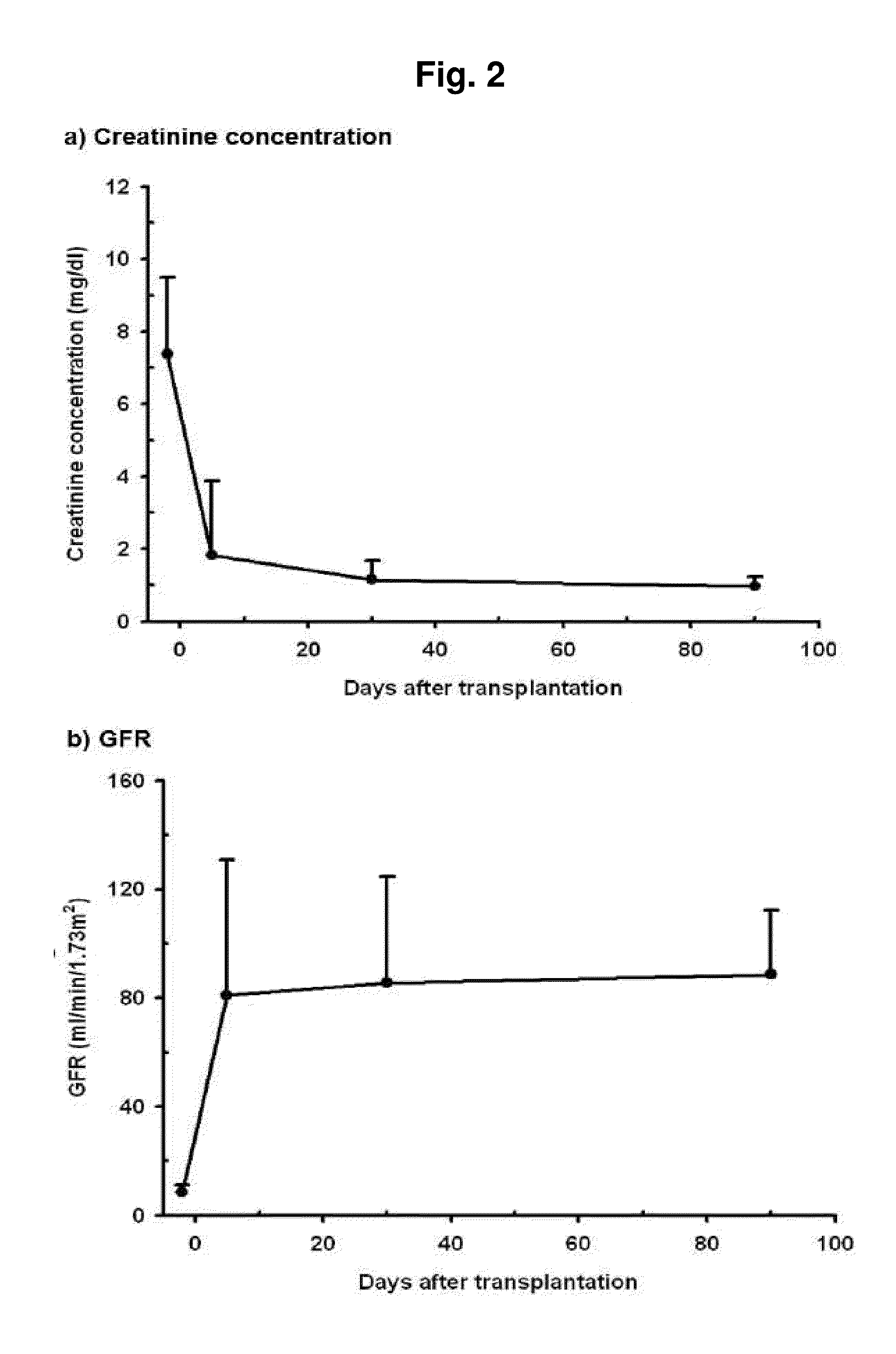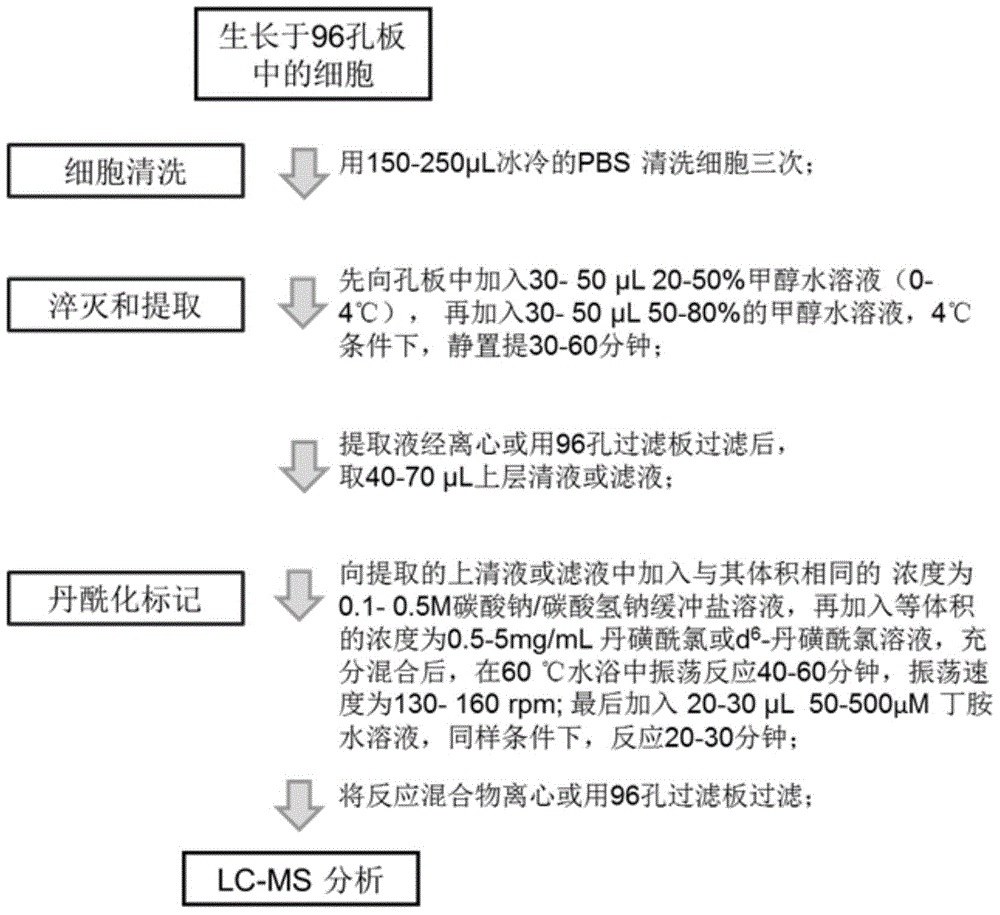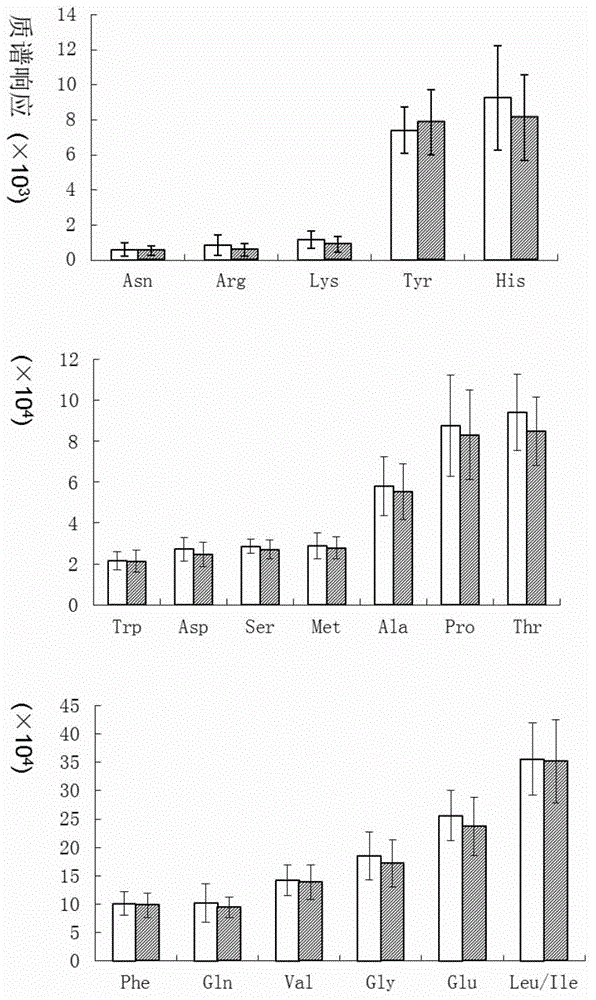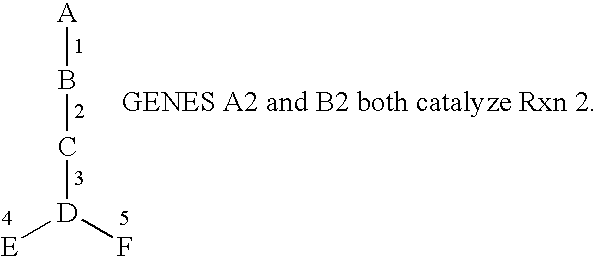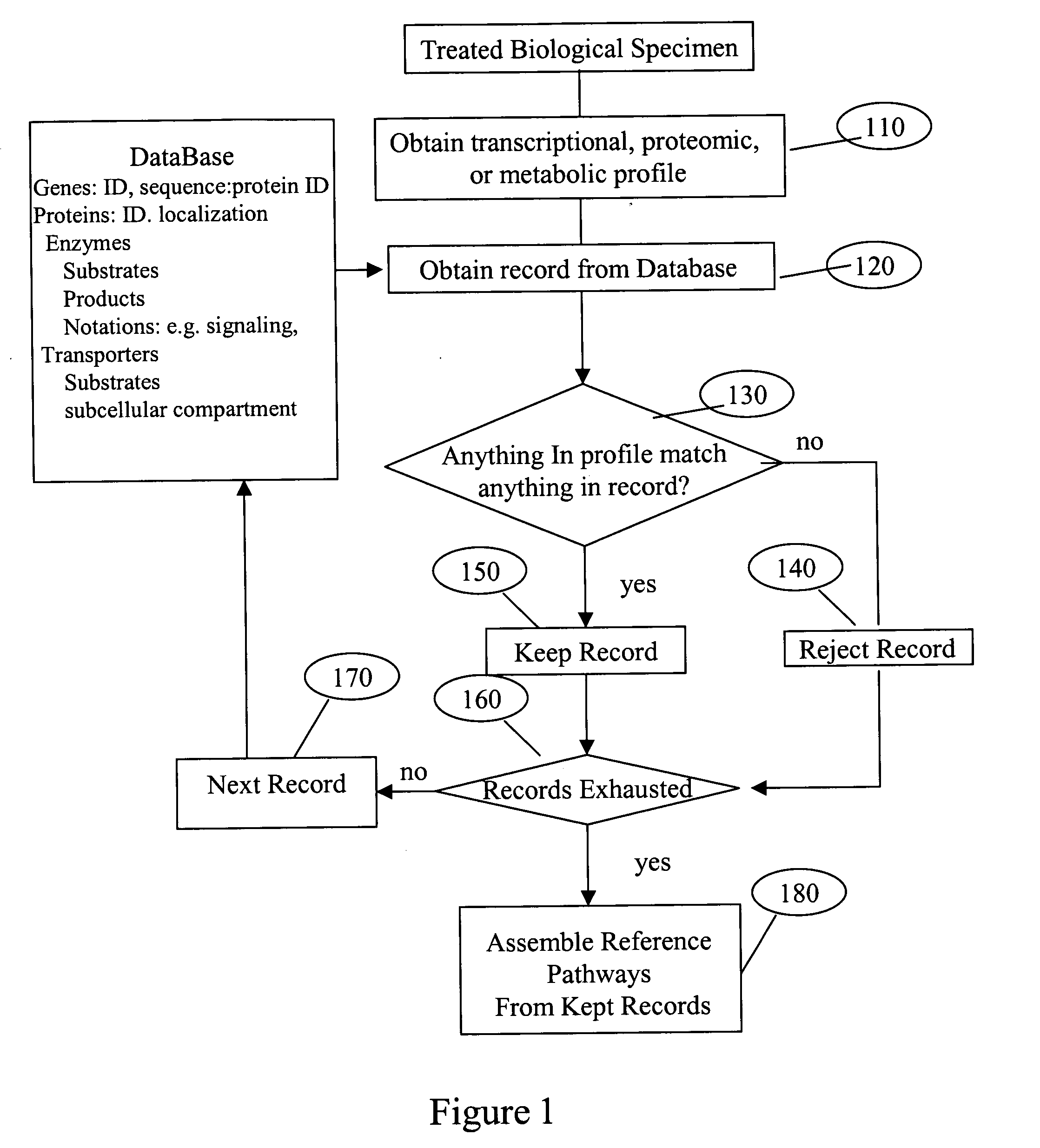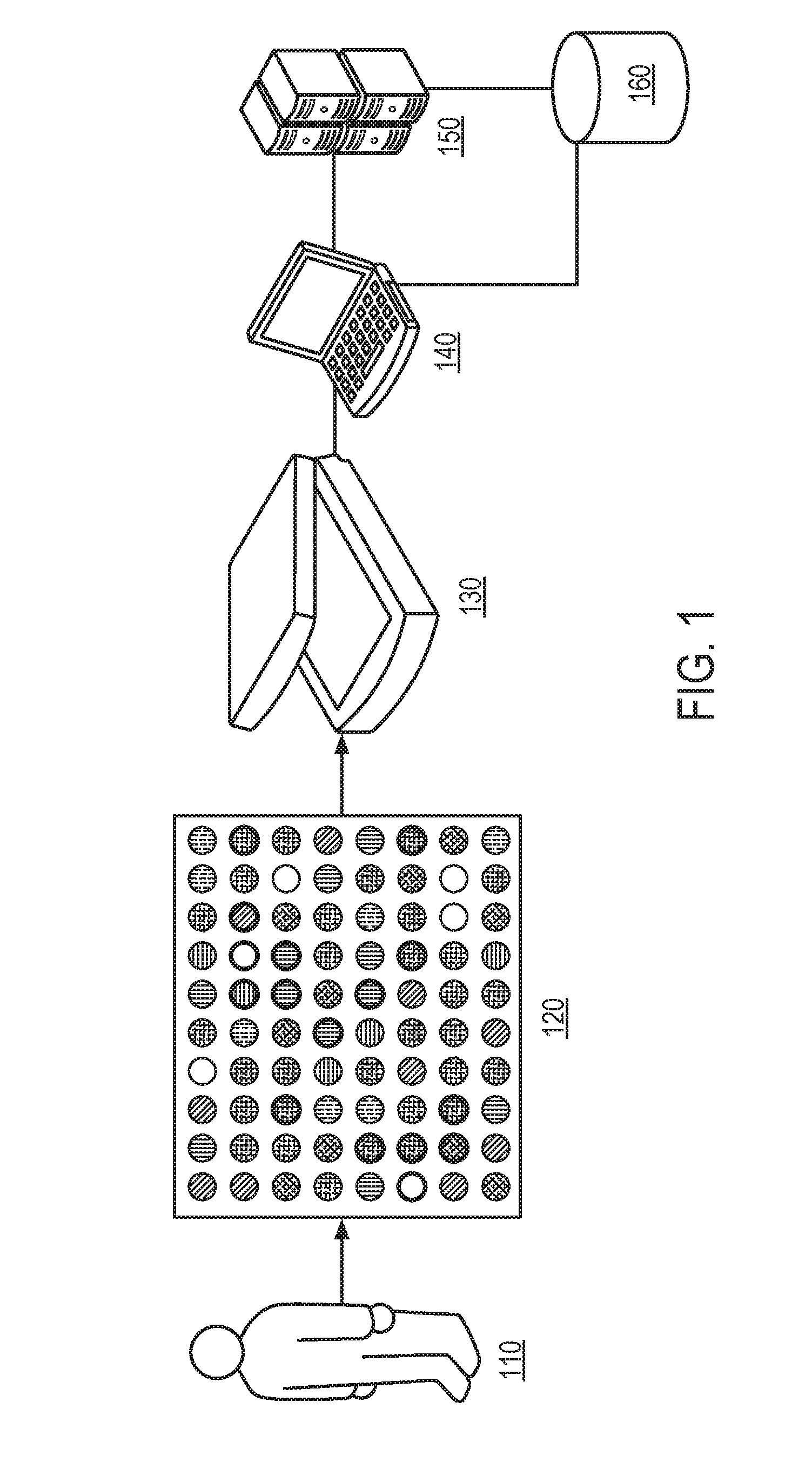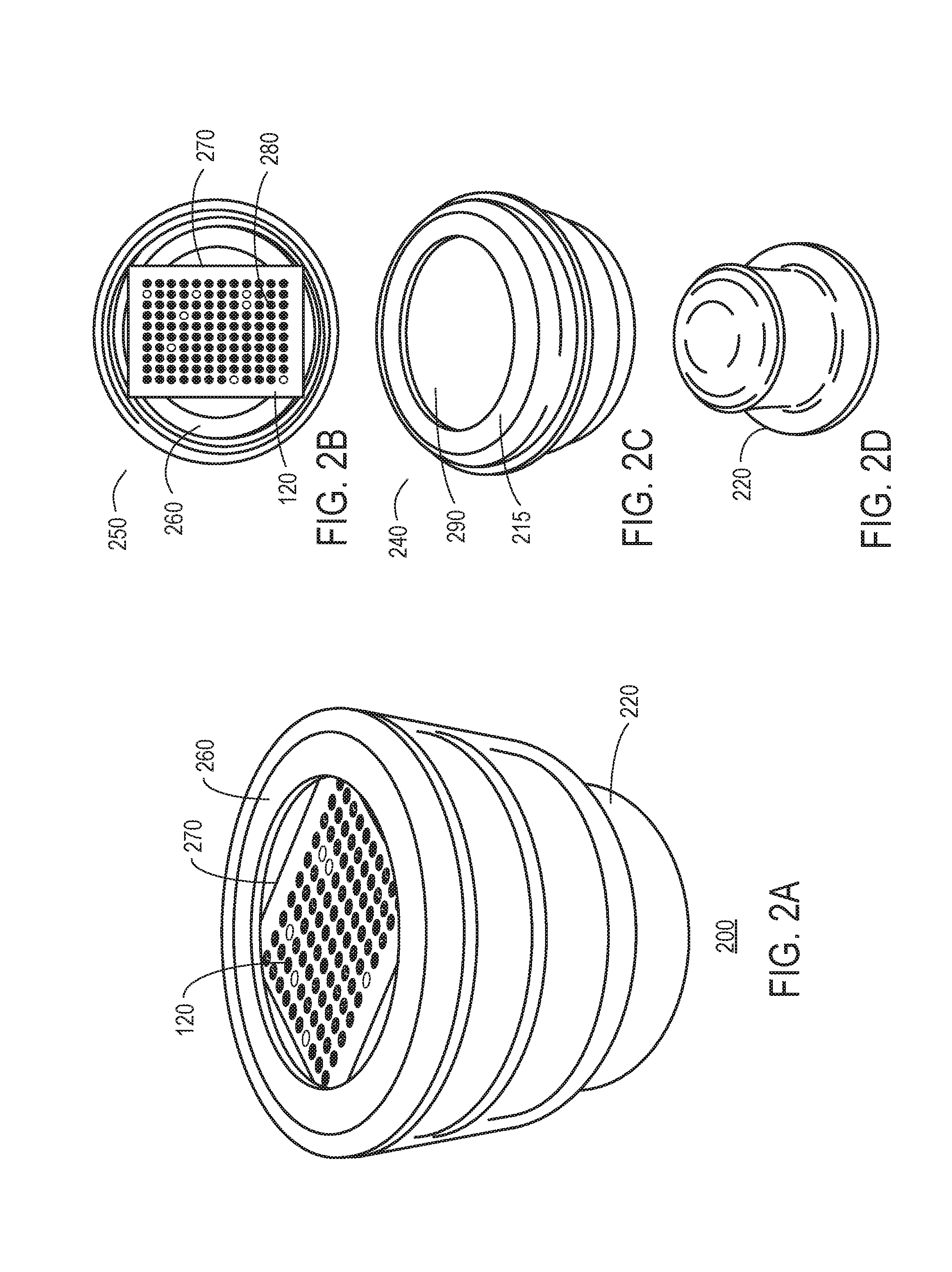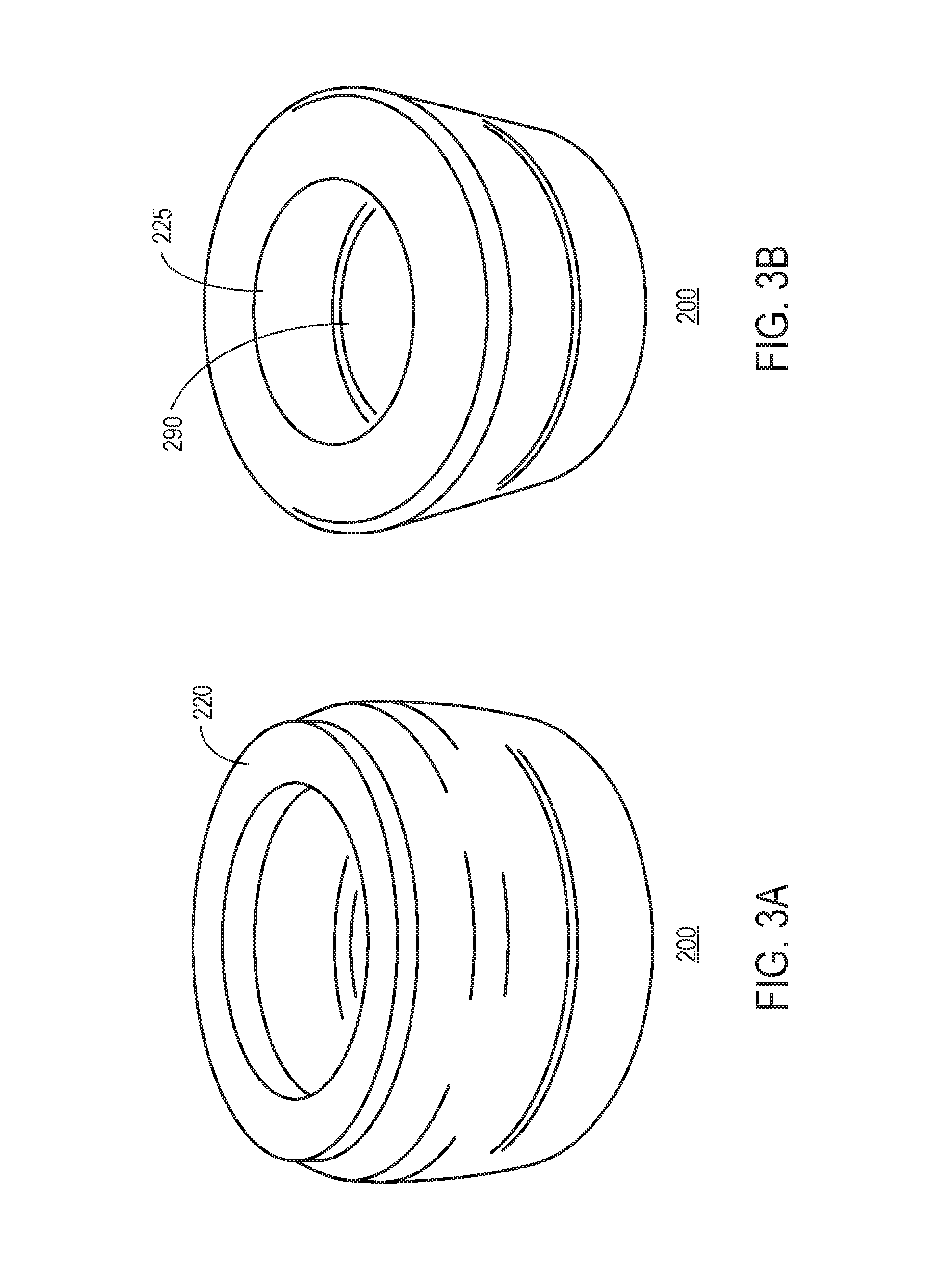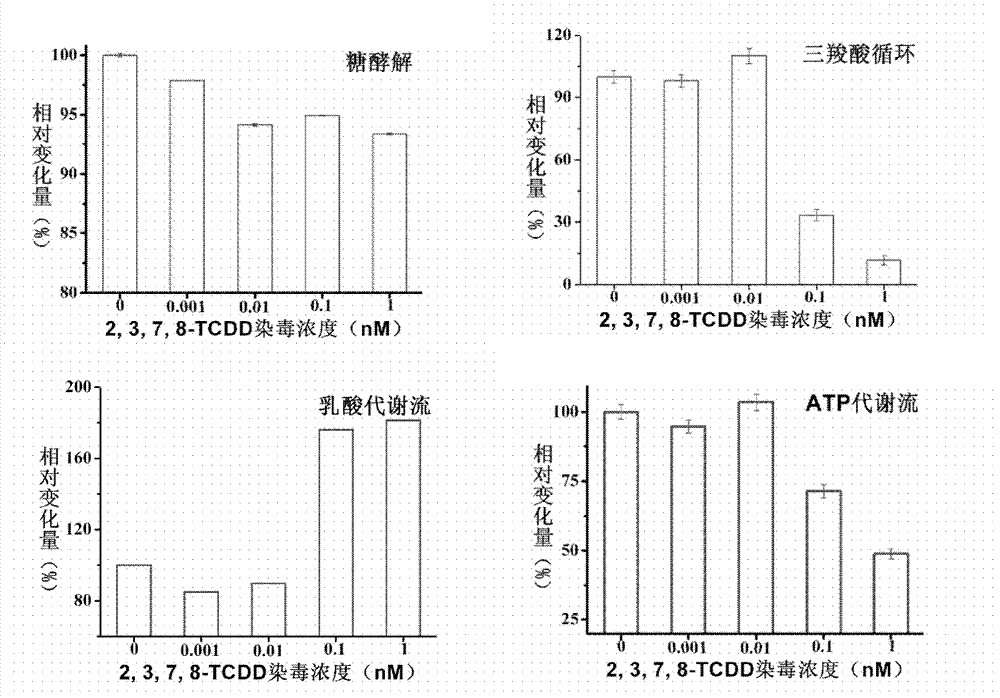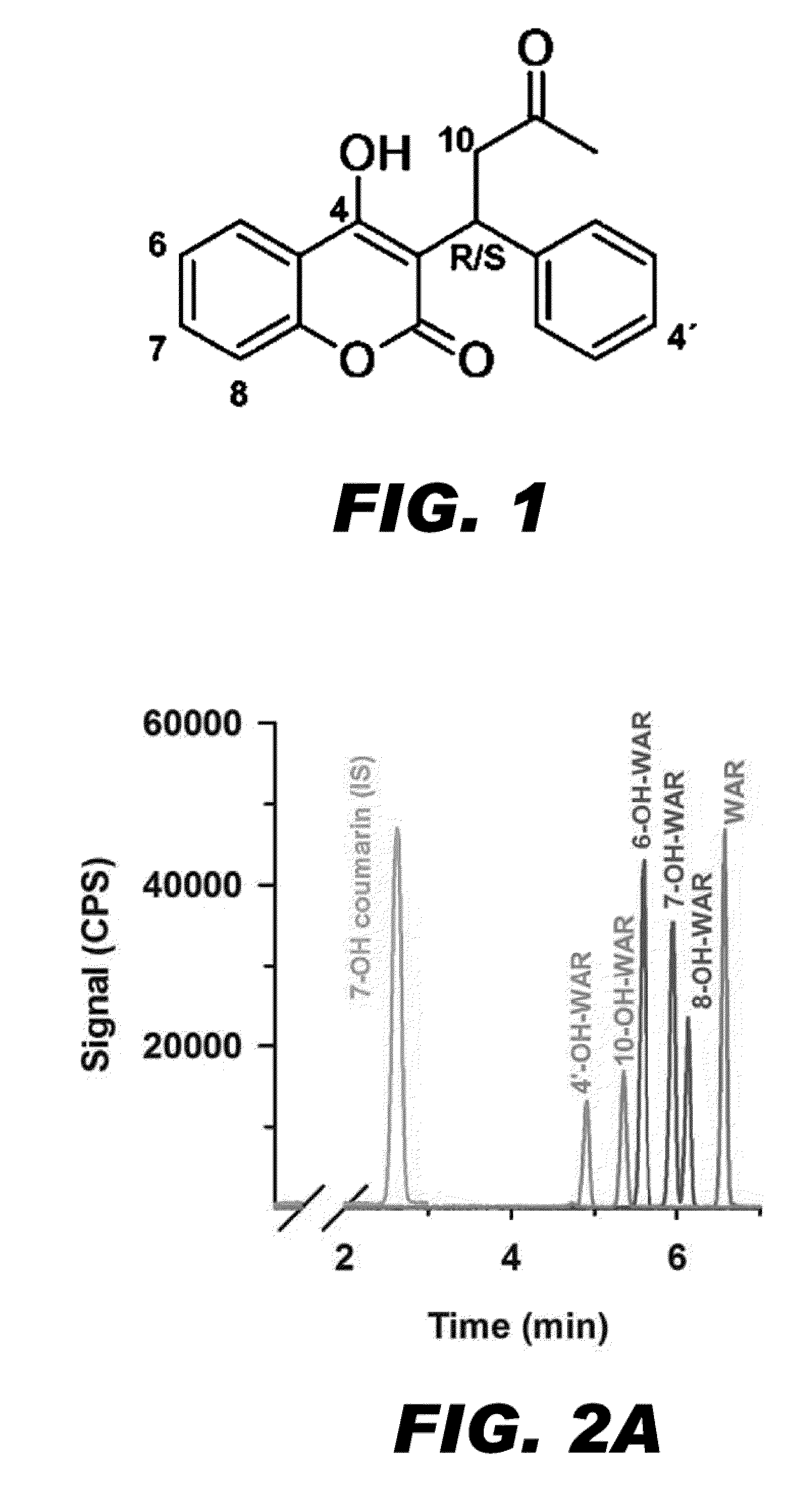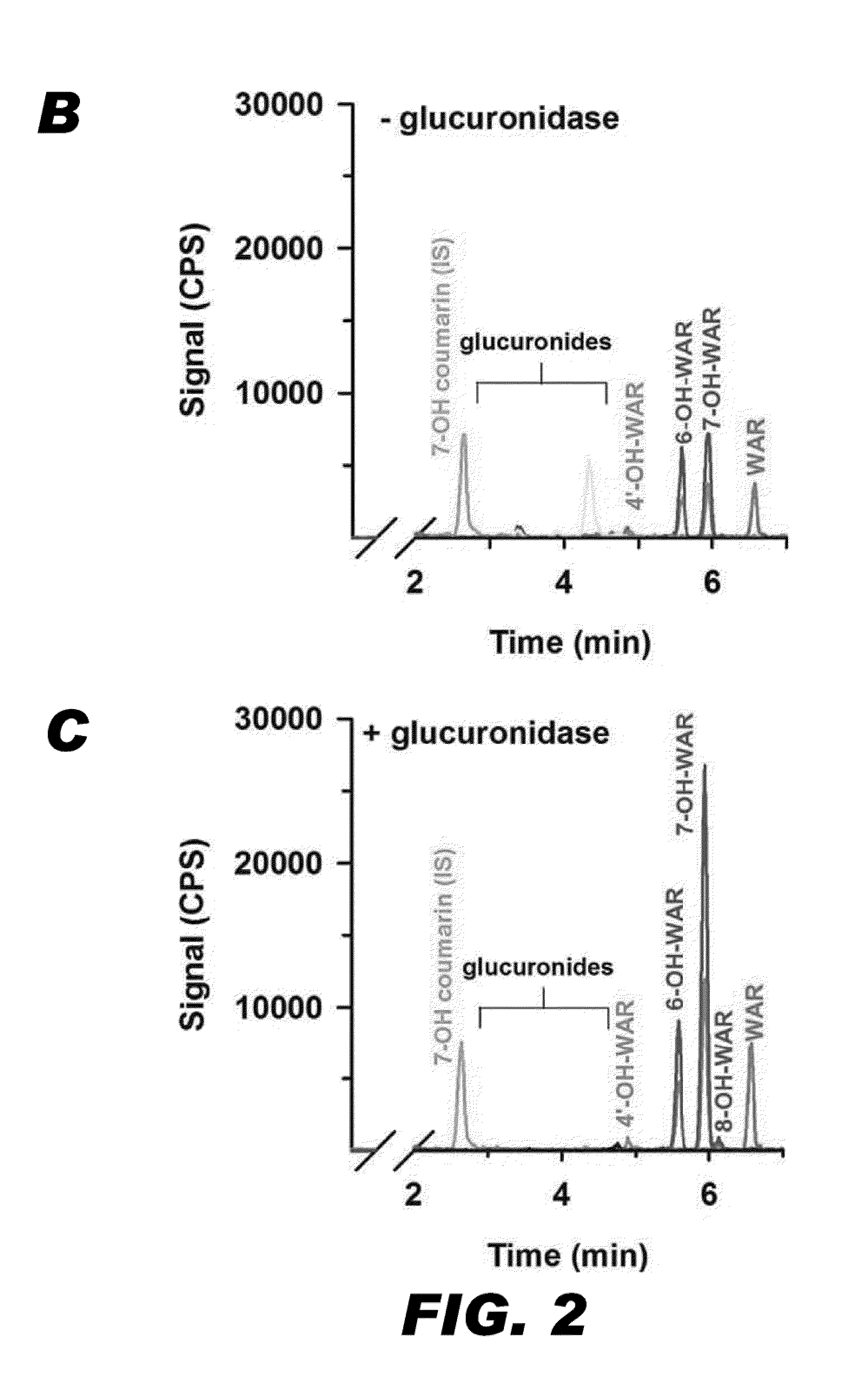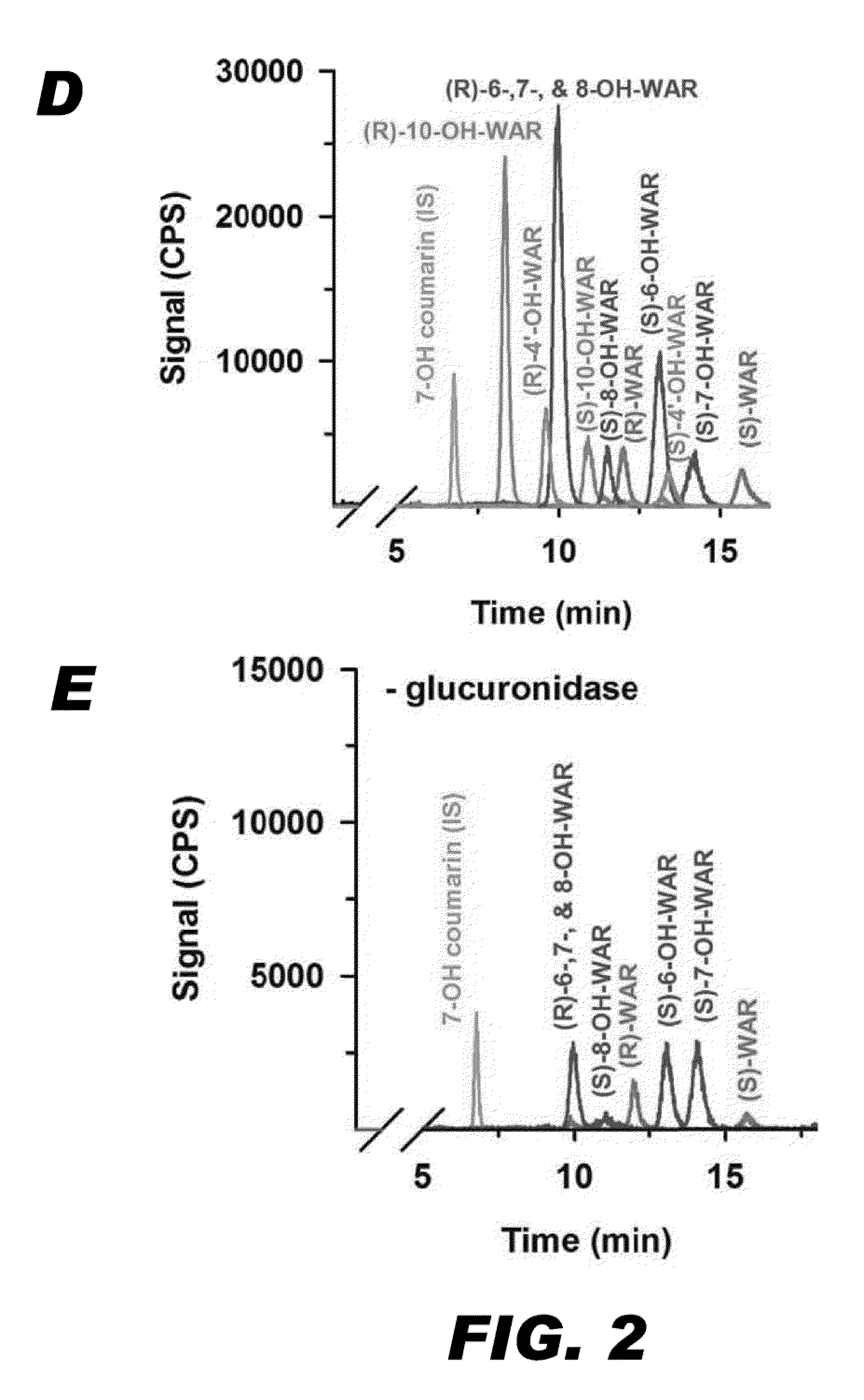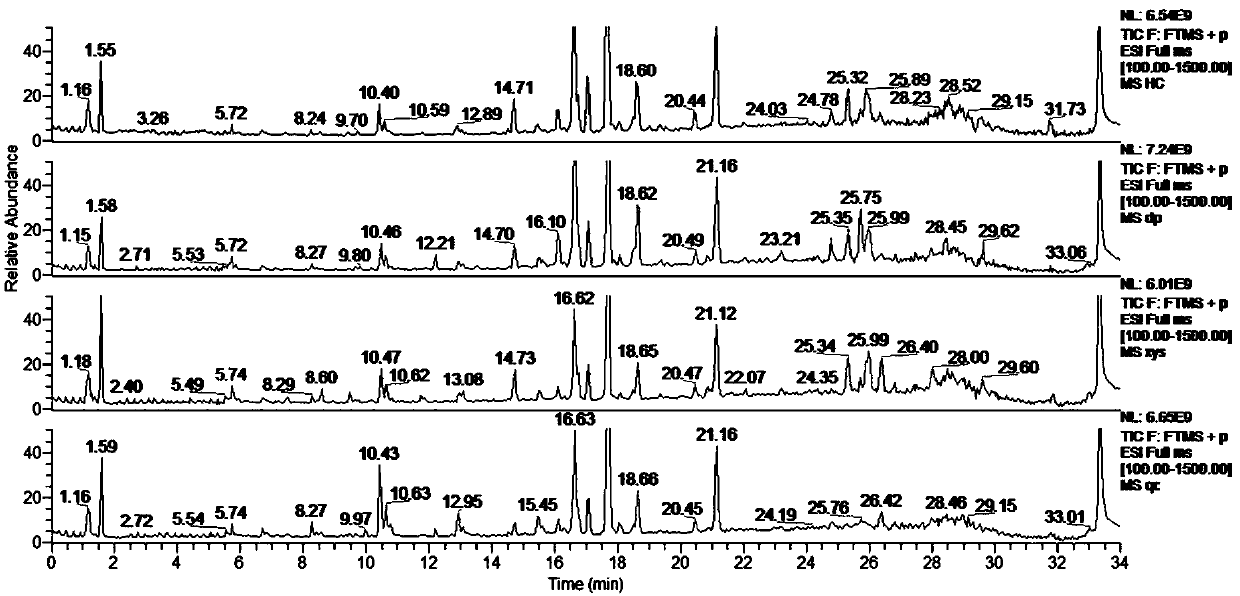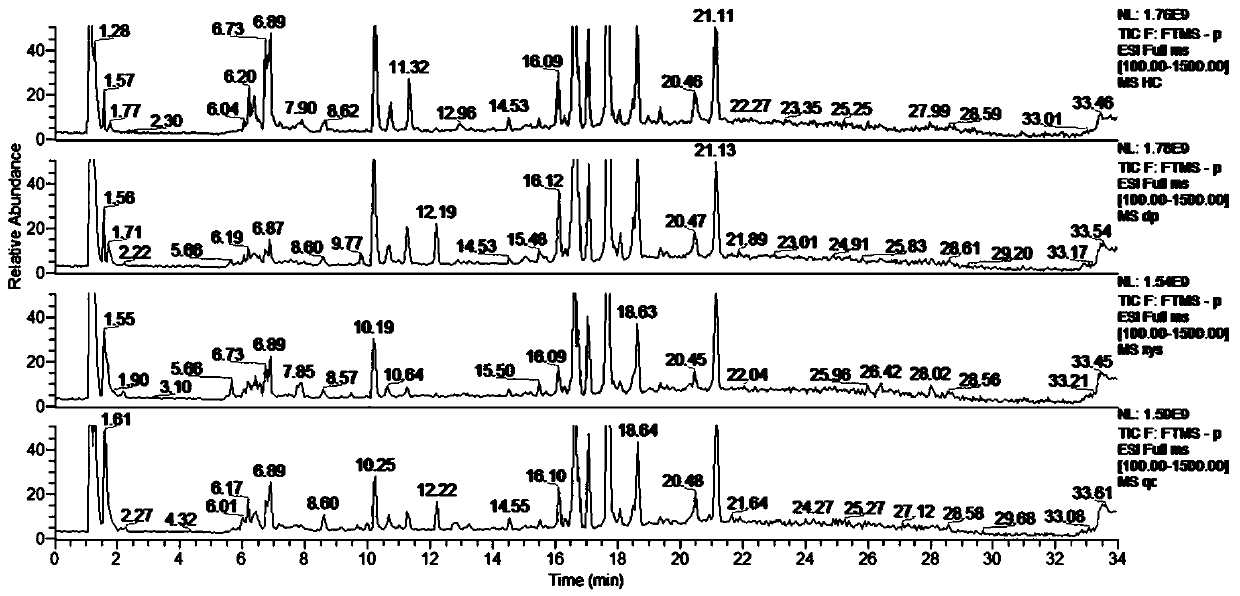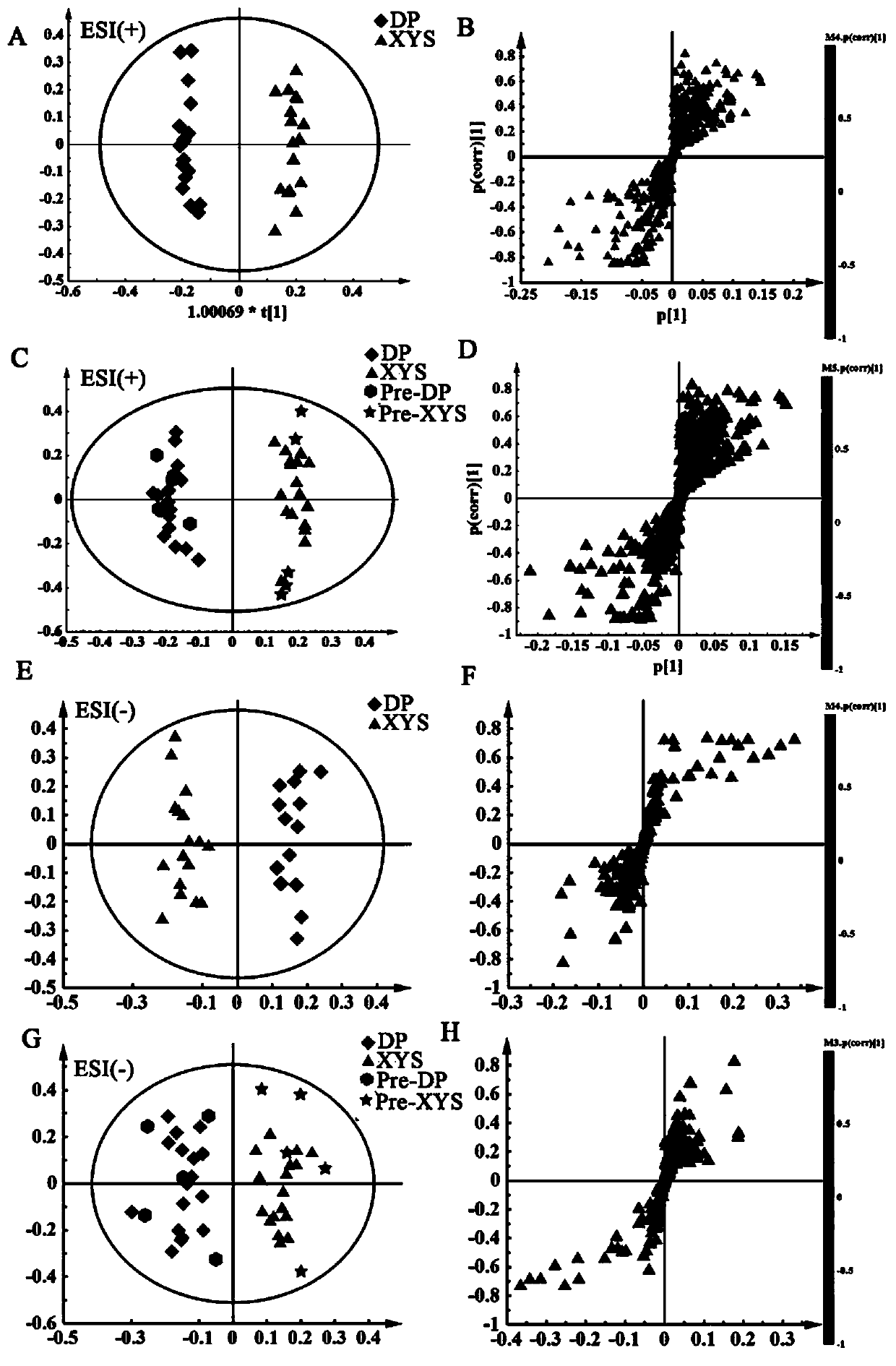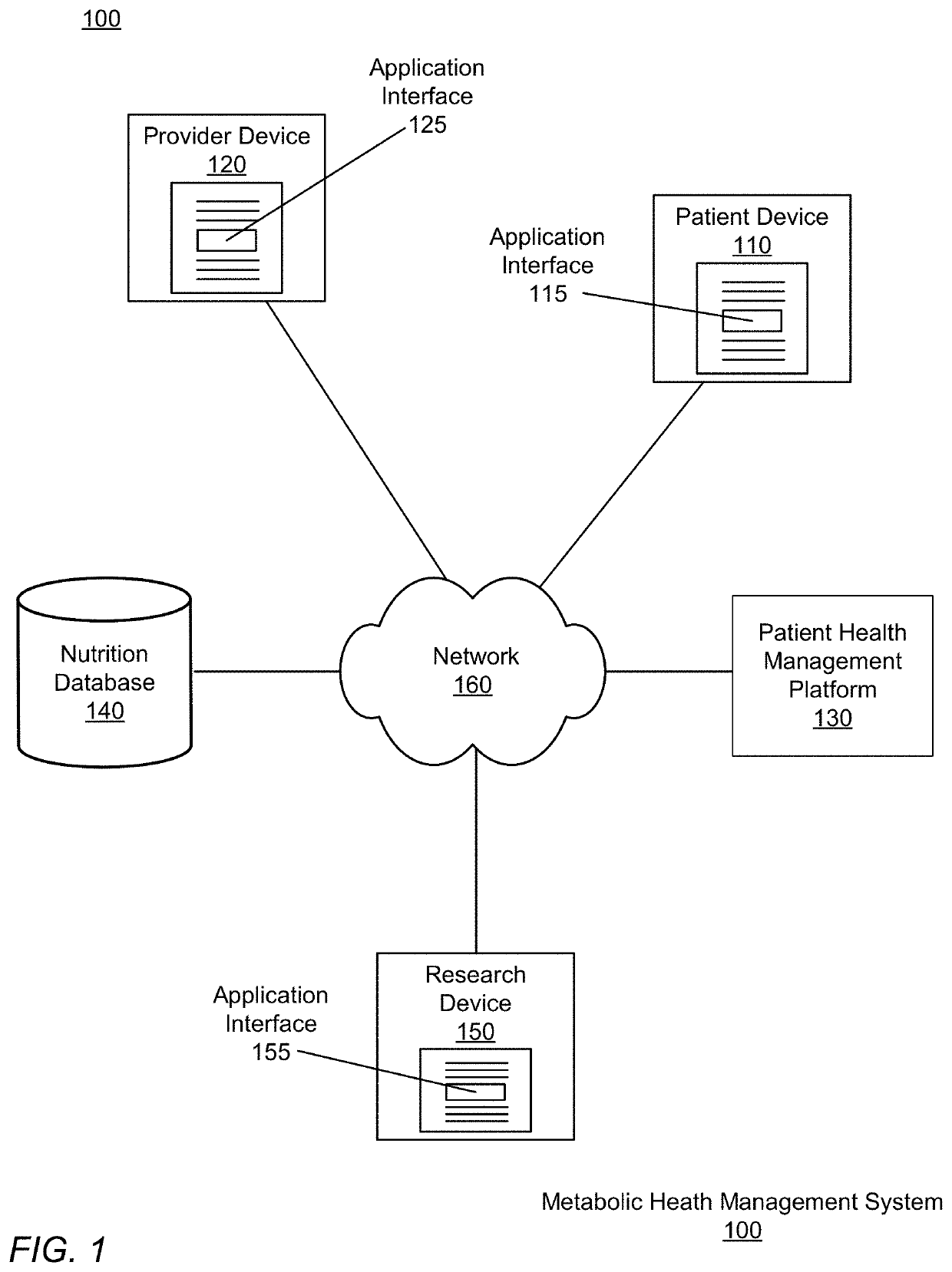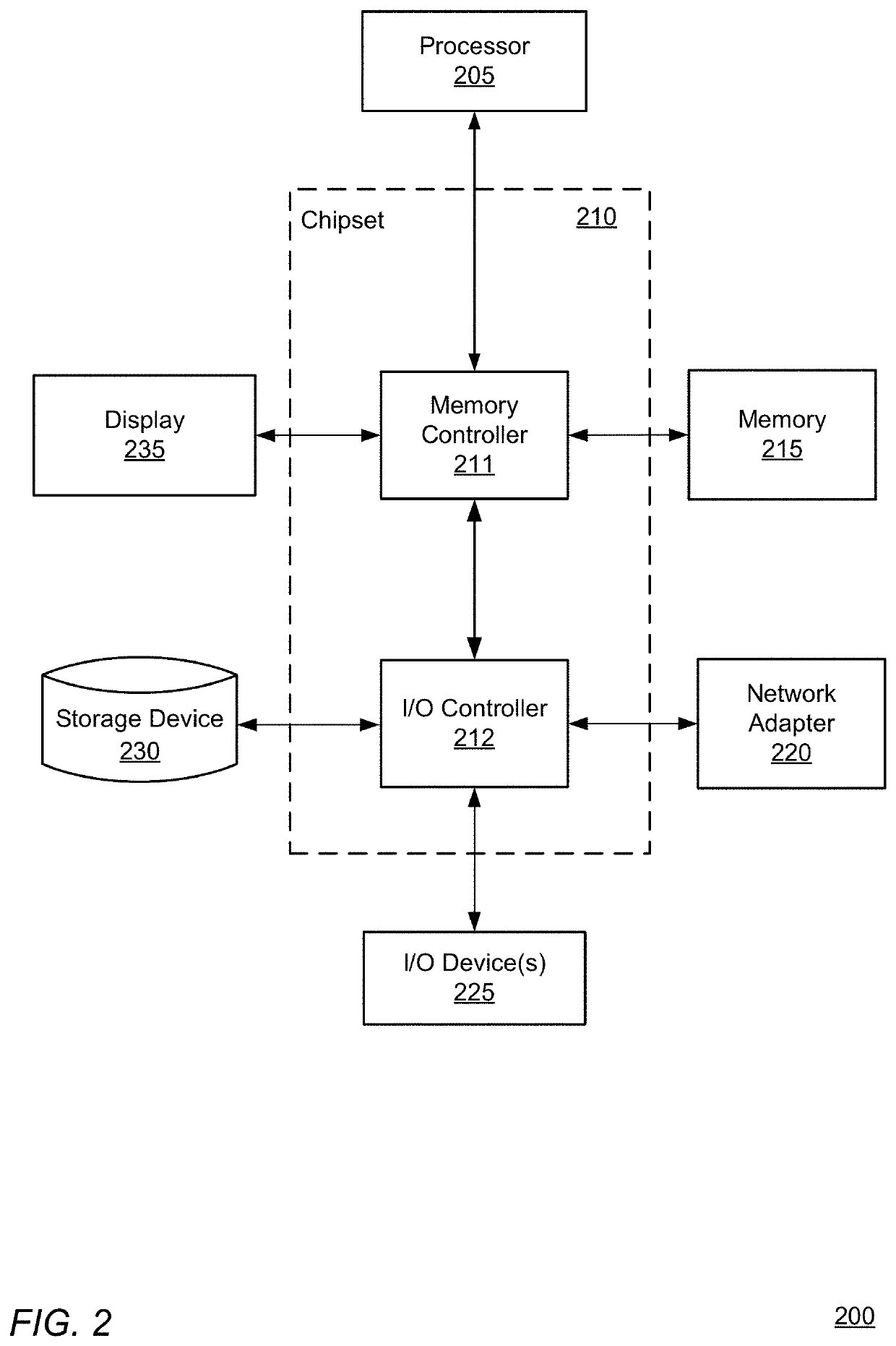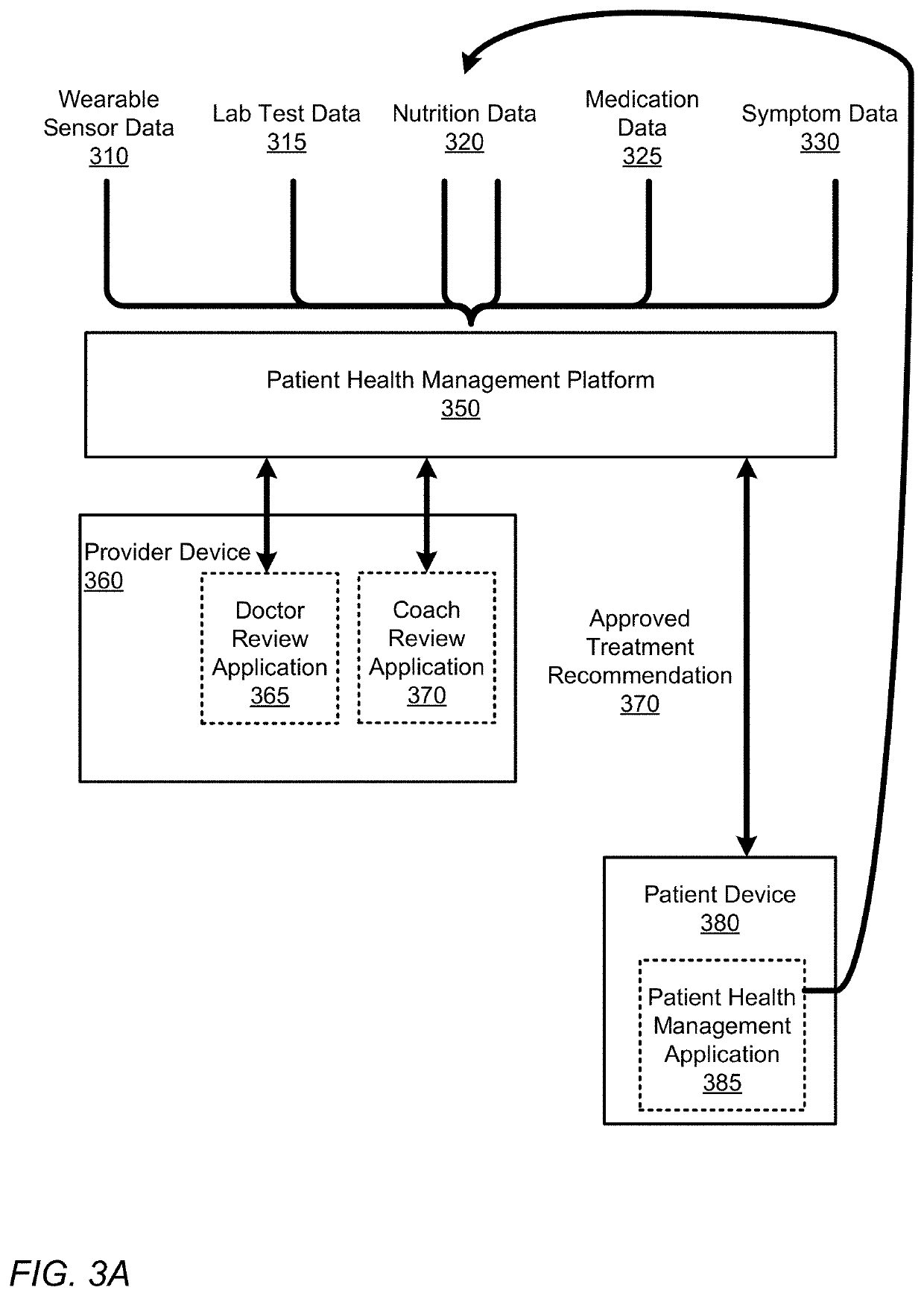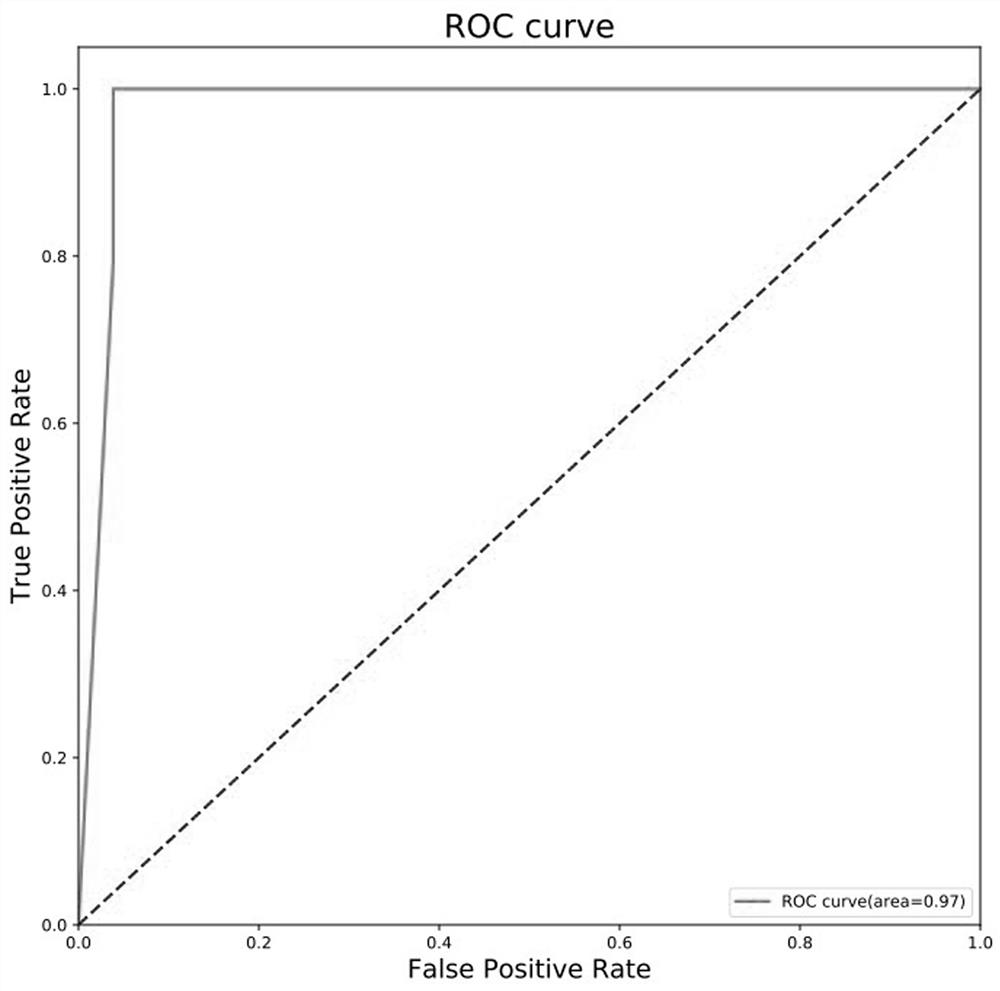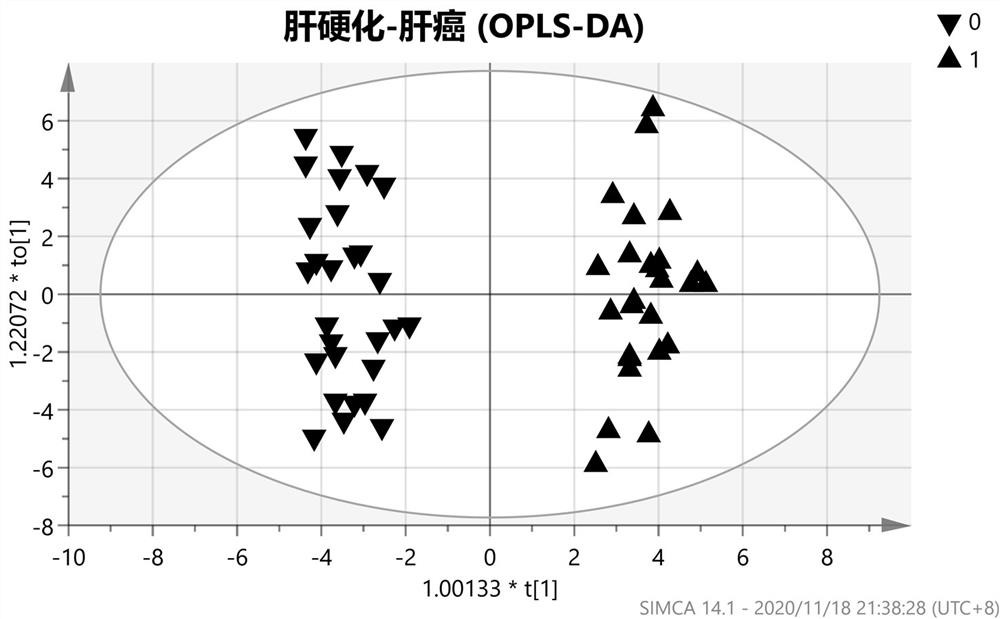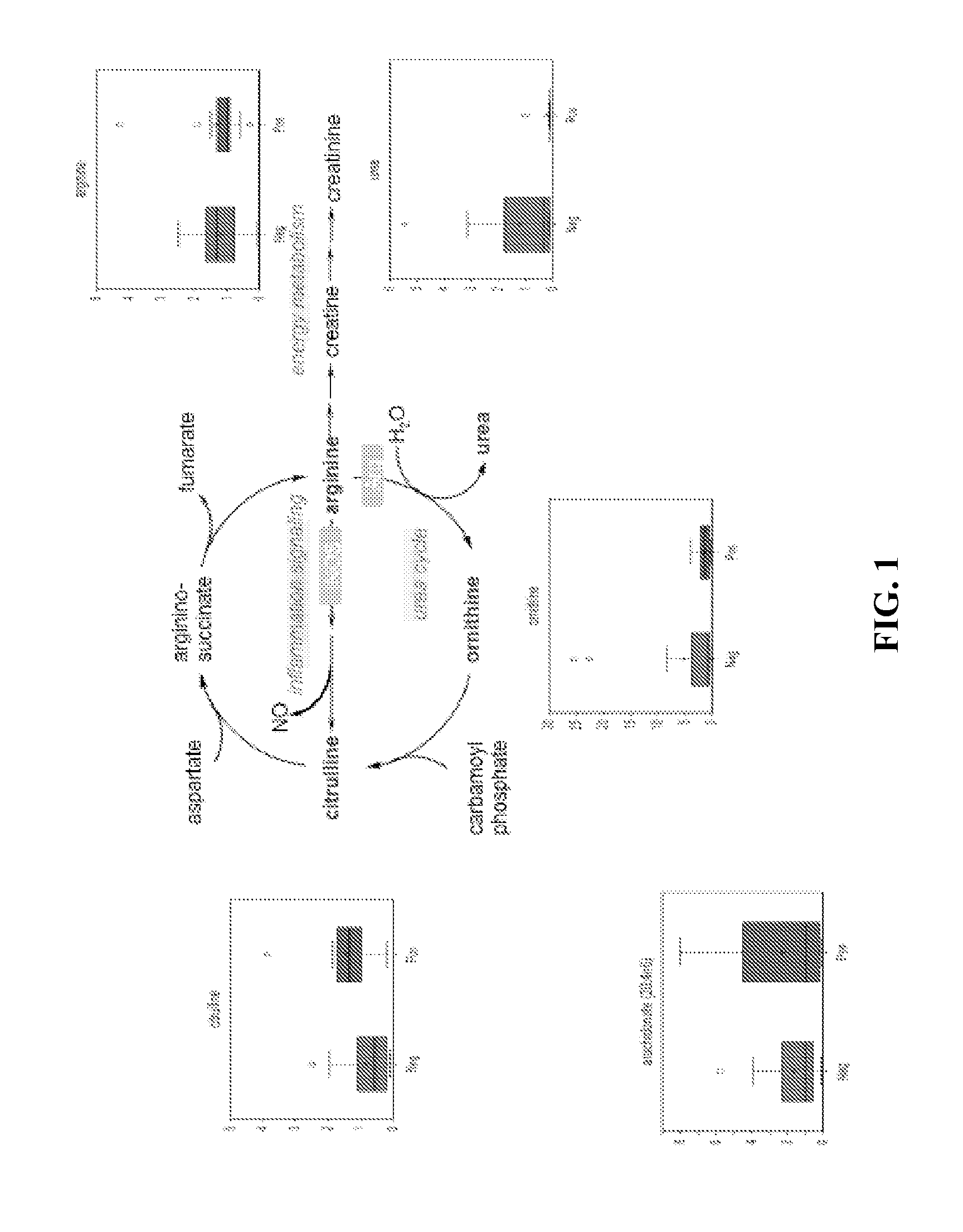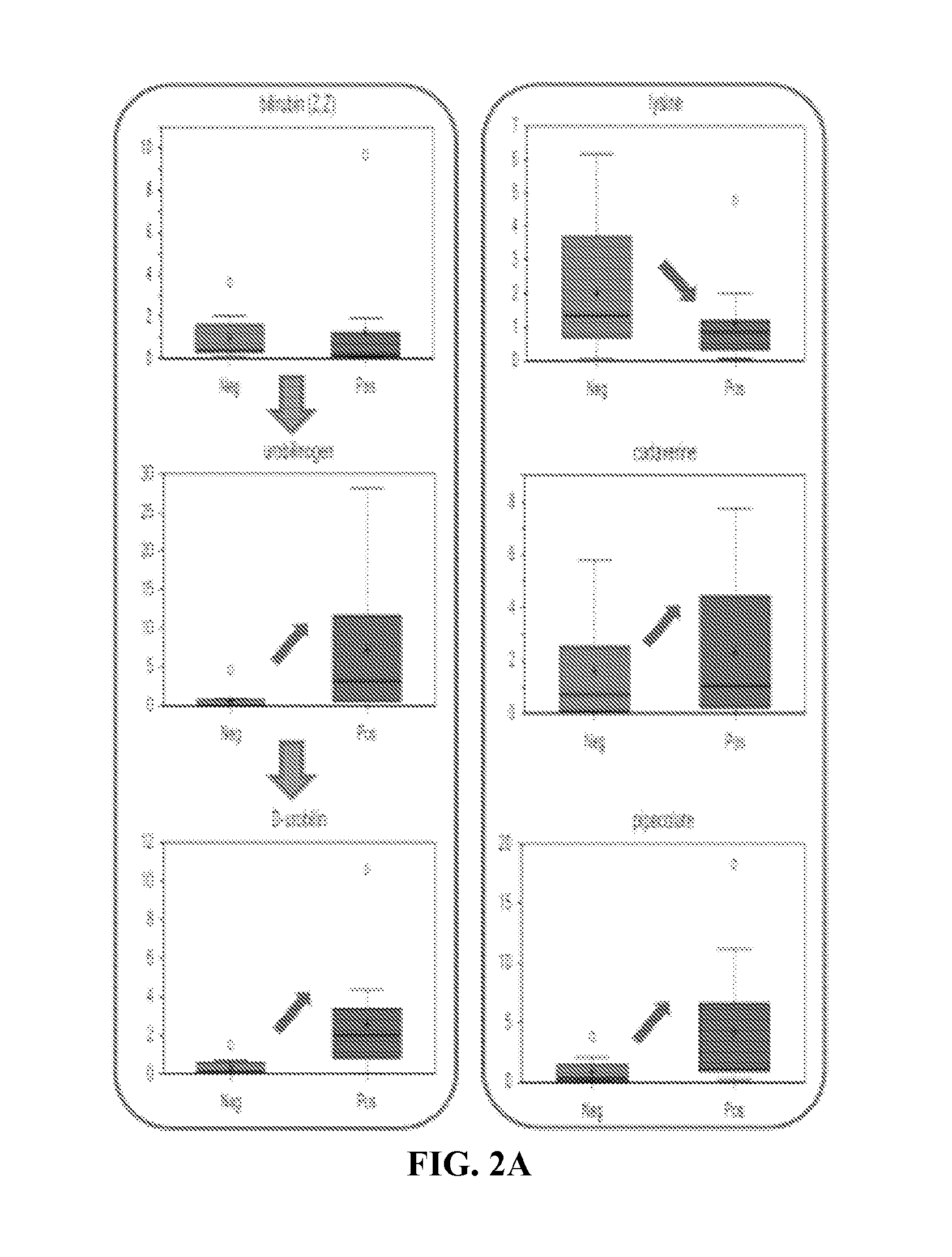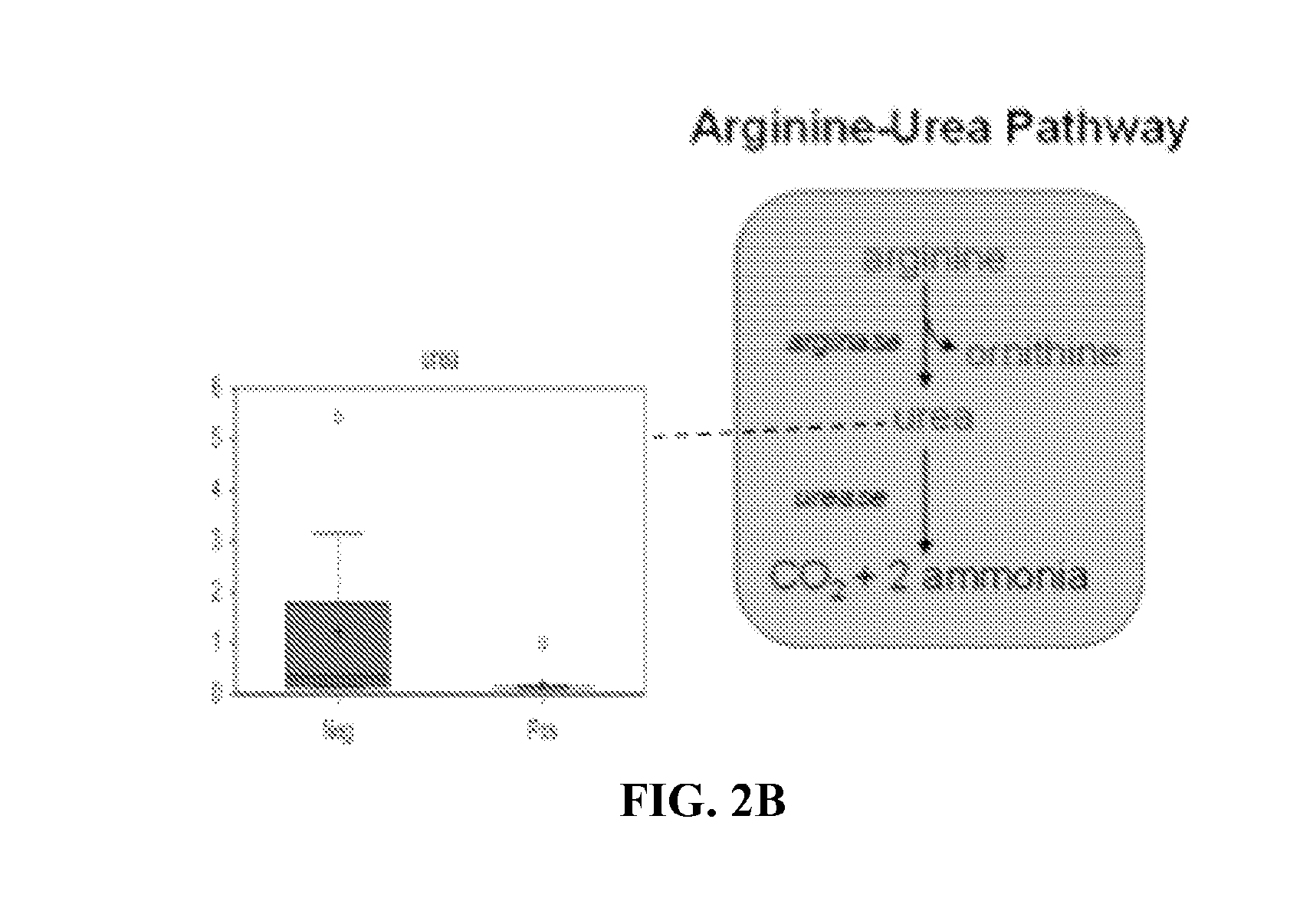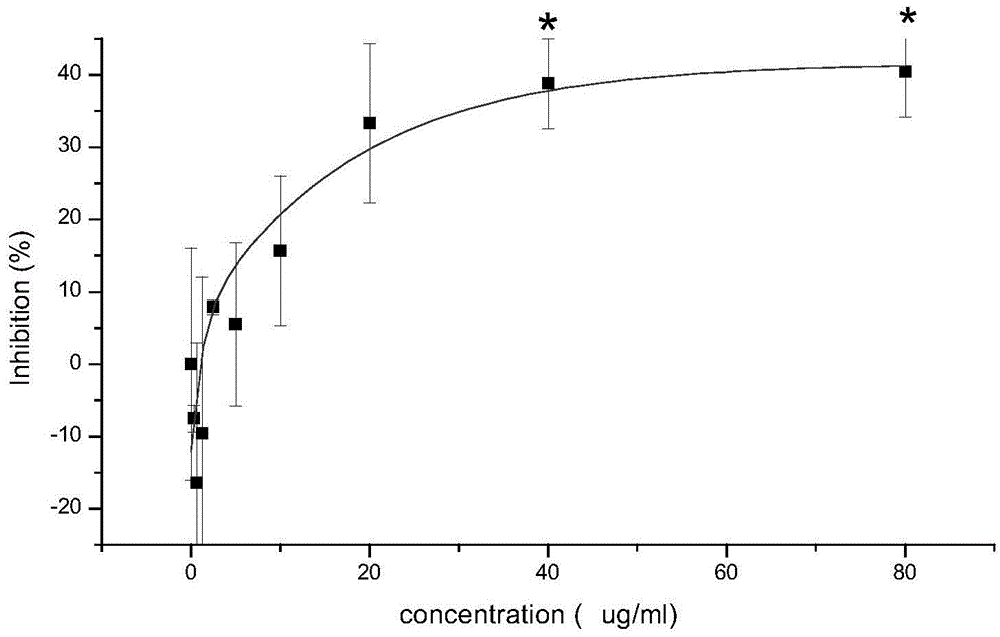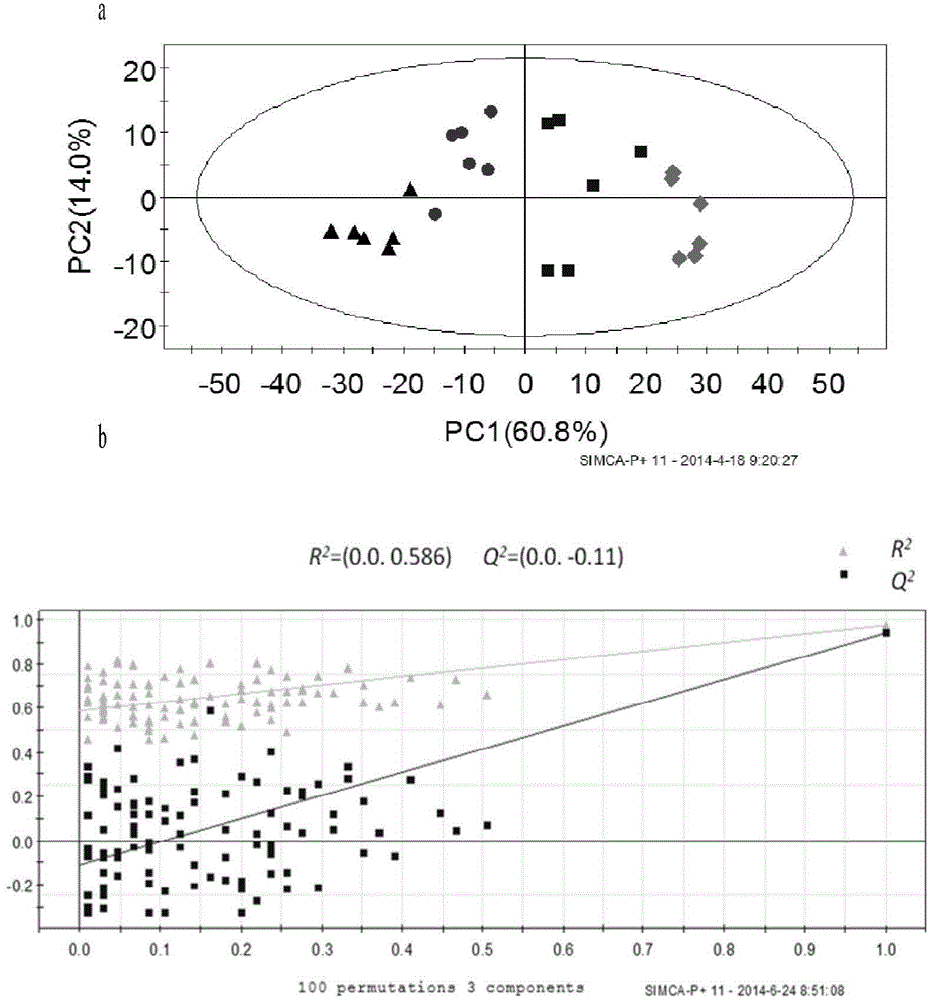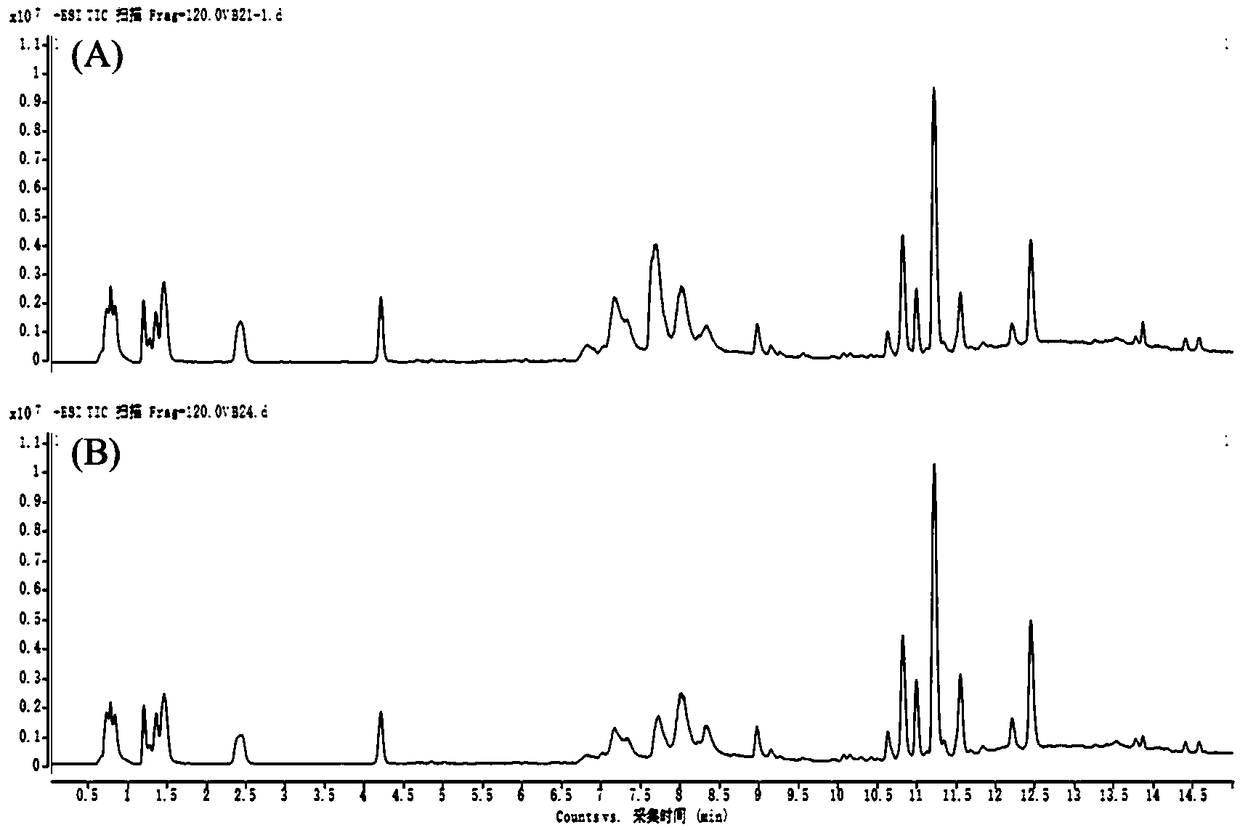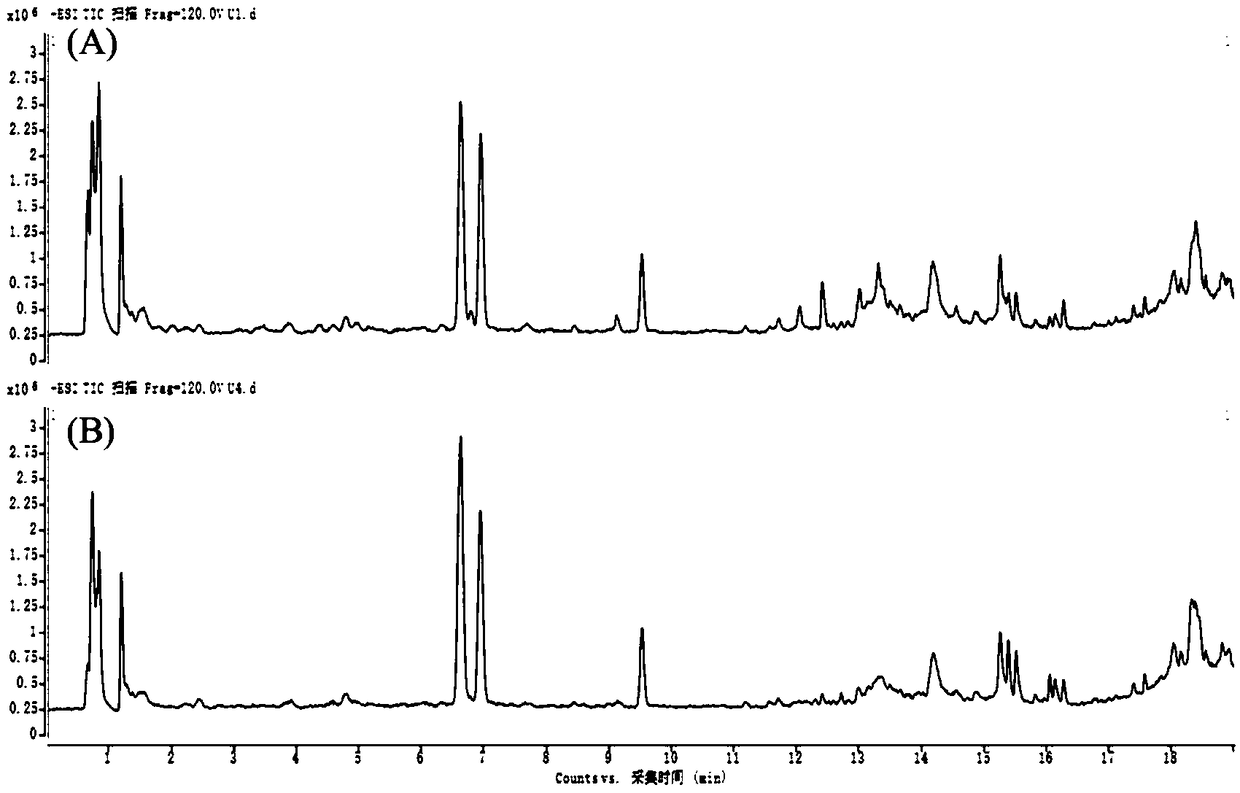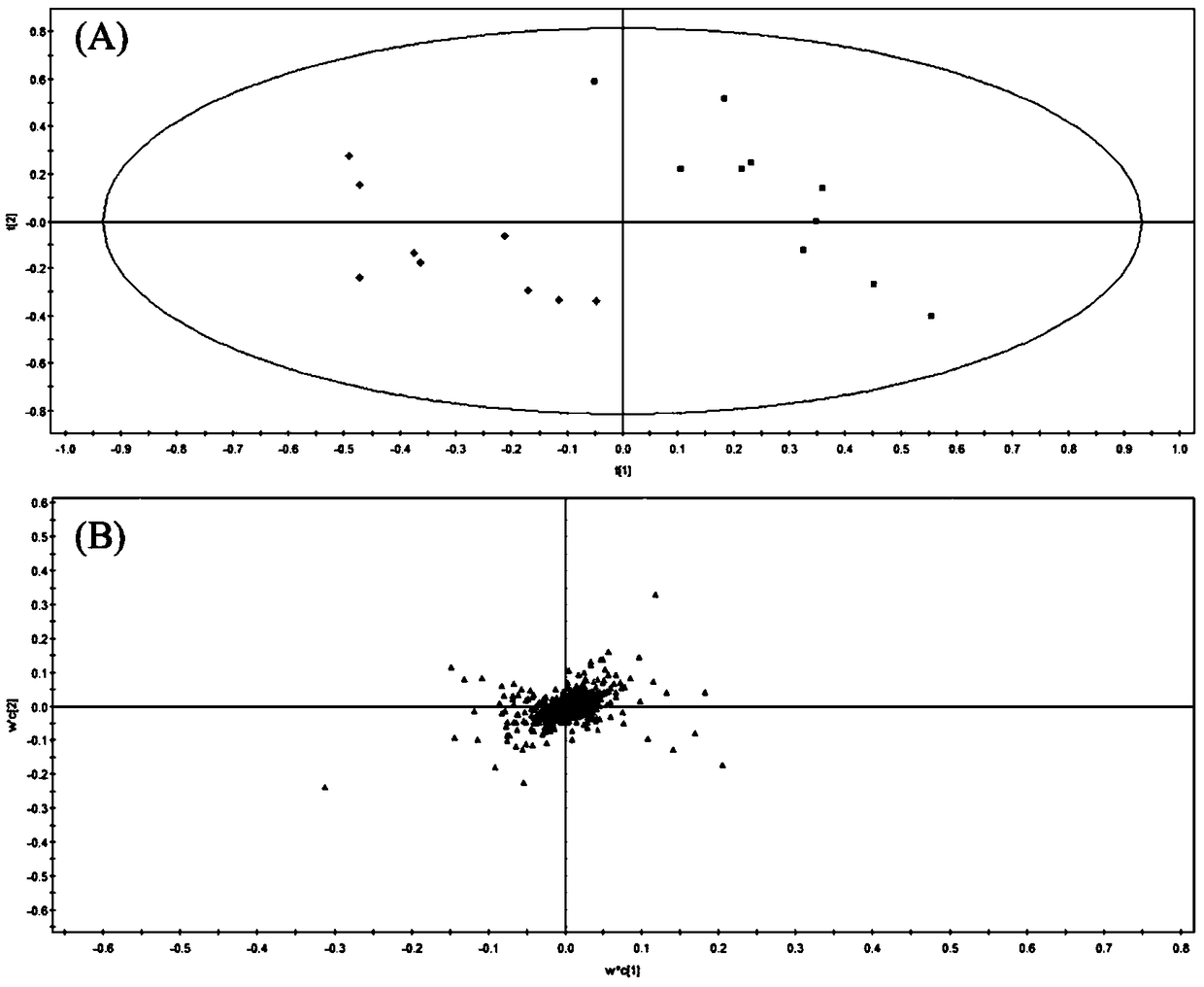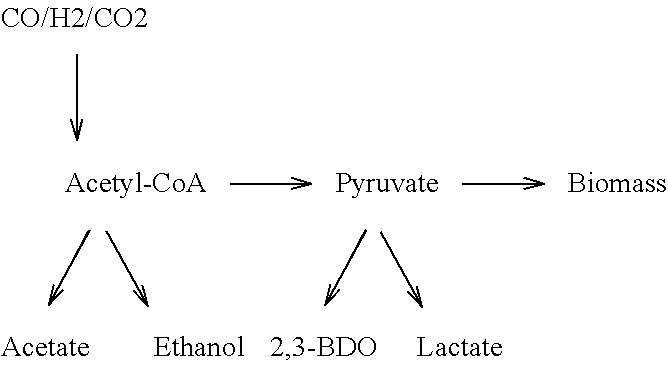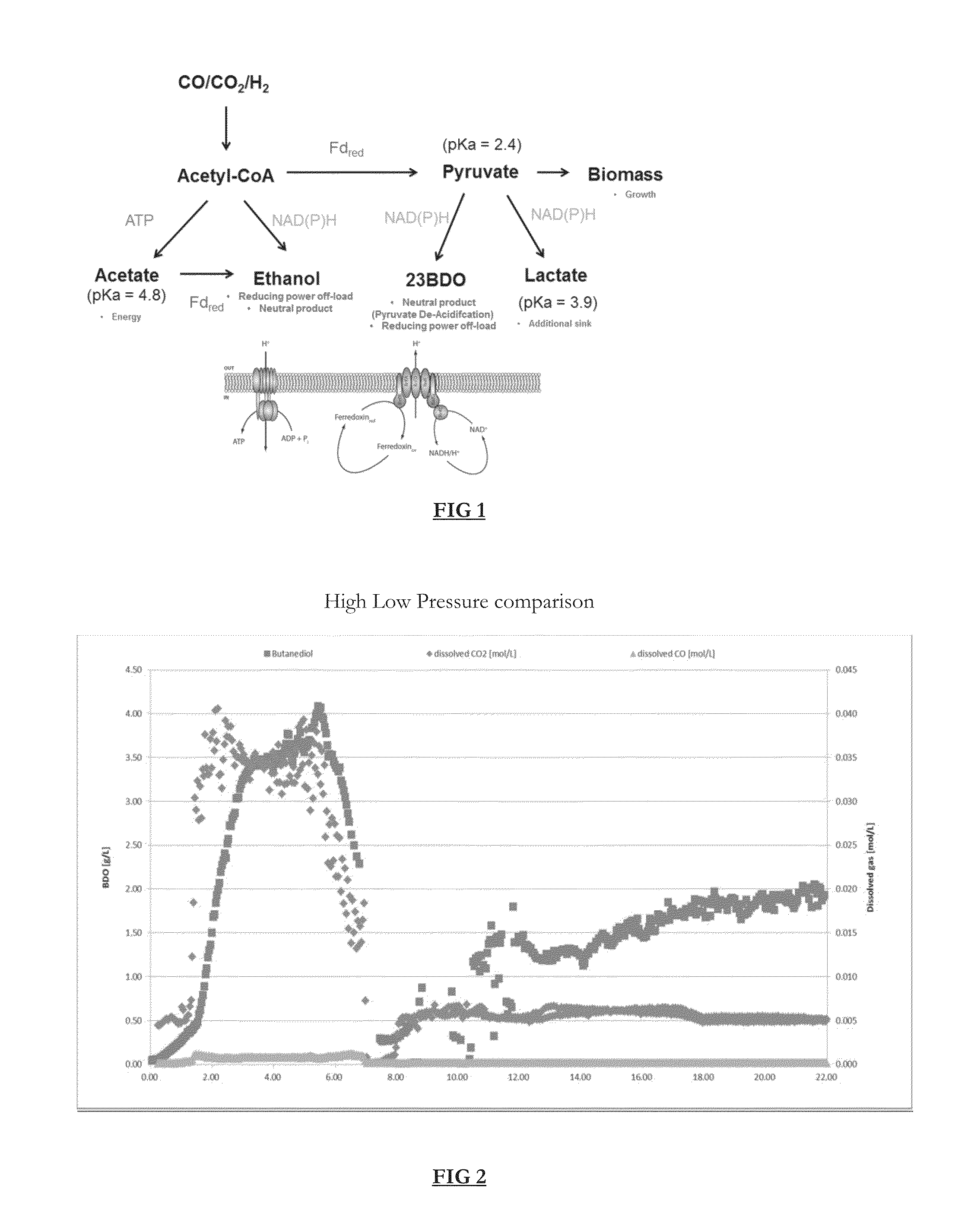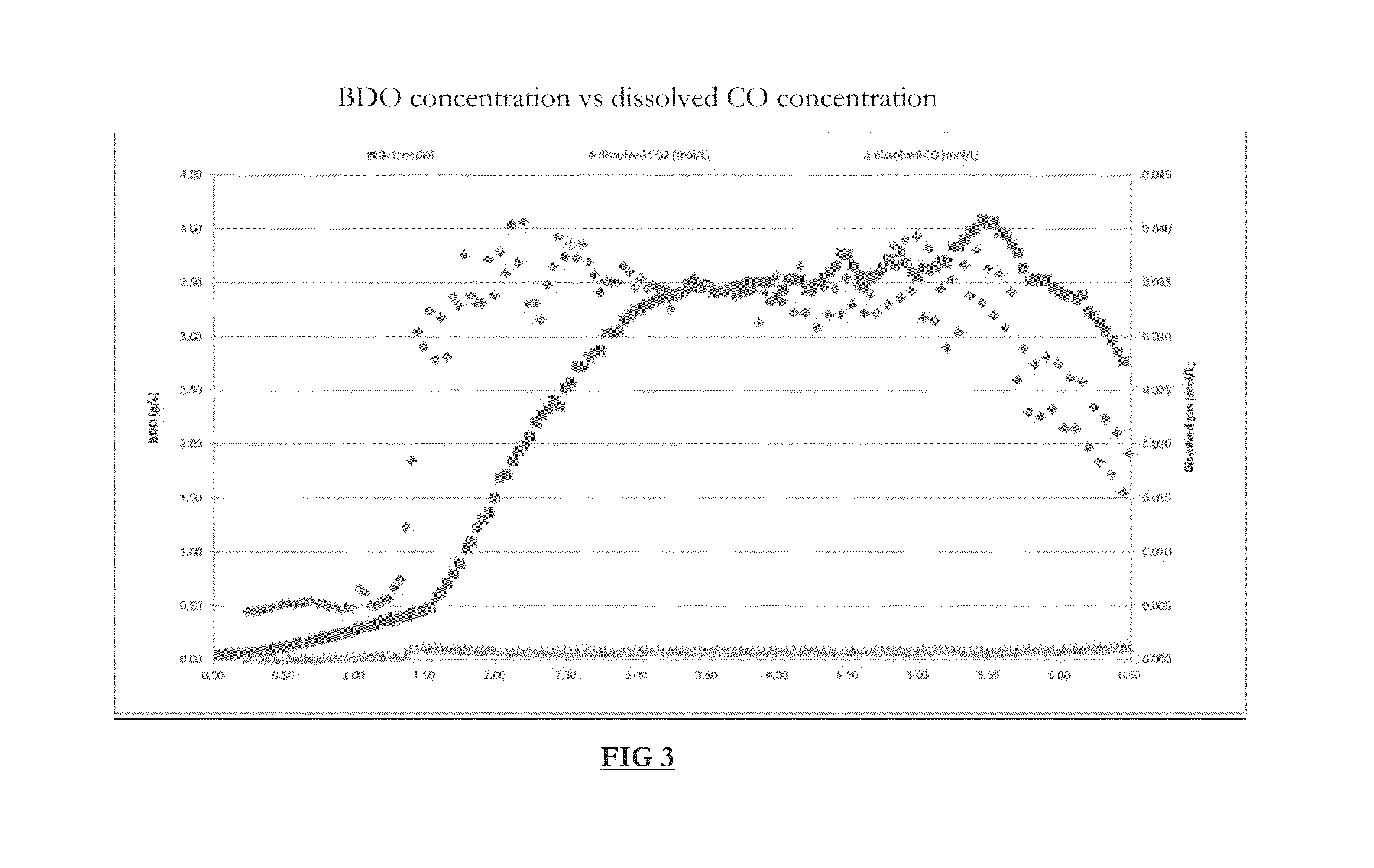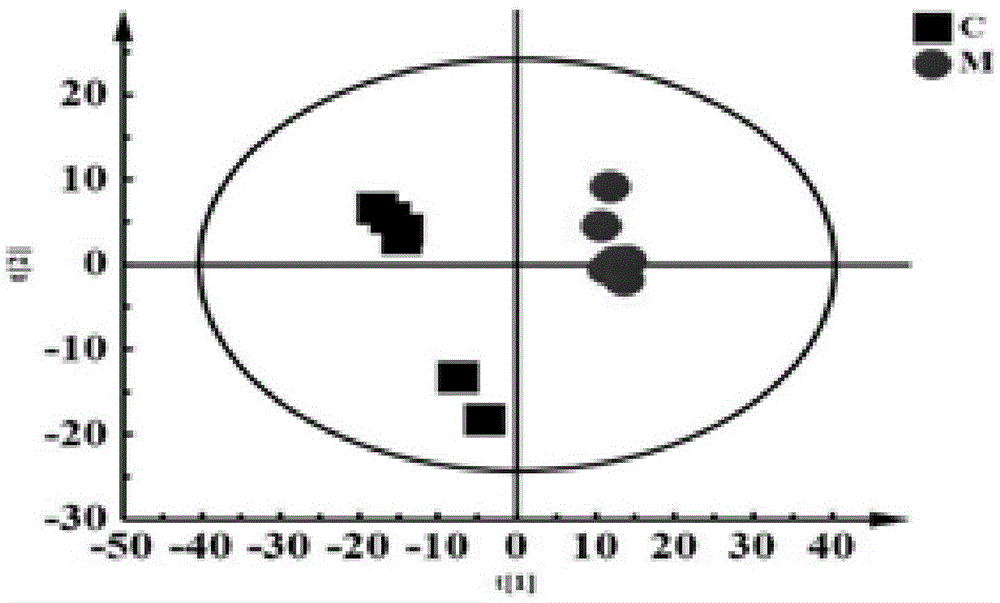Patents
Literature
Hiro is an intelligent assistant for R&D personnel, combined with Patent DNA, to facilitate innovative research.
98 results about "Metabolic profile" patented technology
Efficacy Topic
Property
Owner
Technical Advancement
Application Domain
Technology Topic
Technology Field Word
Patent Country/Region
Patent Type
Patent Status
Application Year
Inventor
The complete metabolic panel measures 14 different elements of the body. Metabolic profiling is a series of blood tests that help physicians diagnose medical problems. The most common metabolic profiling tests, the basic panel, generally measures only 8 elements. A metabolic profile may evaluate liver function.
Apparatus and method for analyzing a metabolite profile
ActiveUS20070004044A1Reduce the amount requiredEasy to analyze resultsParticle spectrometer methodsMass spectrometric analysisMedicineMass Spectrometry-Mass Spectrometry
An apparatus and method analyzes a metabolic profile in a biological sample. The apparatus includes an input unit for inputting the drugs and / or metabolites to be screened; a controlling unit for determining a parameter set for metabolites preparation and for mass spectrometry analysis depending on the input of the kind of metabolites to be screened; a treatment unit for preparing the metabolites to be screened depending on the determined parameter set; a mass spectrometer for performing mass spectrometry analysis on prepared metabolites depending on the parameter set; a database for storing results of analyzing and parameter sets for metabolite preparation and for mass spectrometry analyses; and an evaluation unit for evaluating the results of mass spectrometry by use of reference results stored in the database to output an analysis of the metabolites profile.
Owner:BIOCRATES LIFE SCIENCES AG
Stable isotope based dynamic metabolic profiling of living organisms for characterization of metabolic diseases, drug testing and drug development
The metabolic processes involved in the formation of any glucose-based metabolite of a metabolic network are determined. A precursor molecule is labeled with a stable carbon (13C) isotope at specific positions. The label is allowed to distribute and rearrange in the system. Metabolites are recovered and analyzed against a control system to determine a set of metabolic pathway substrate fluxes caused by changes to the test system relative to the control system such as the addition of compound being tested as a potential drug.
Owner:LOS ANGELES BIOMEDICAL RES INST AT HARBOR UCLA MEDICAL CENT
Dual function proteins for treating metabolic disorders
ActiveUS20130129724A1Easy to controlImproved profilePeptide/protein ingredientsAntibody mimetics/scaffoldsFibre cellMetabolic profile
The present invention relates to the identification of new proteins comprising fibroblast growth factor 21 (FGF21) and other metabolic regulators, including variants thereof, known to improve metabolic profiles in subjects to whom they are administered. Also disclosed are methods for treating FGF21-associated disorders, GLP-1-associated disorders, and Exendin-4-associated disorders, including metabolic conditions.
Owner:NOVARTIS AG
Prediction of phenotypes and traits based on the metabolome
ActiveUS20120119080A1Accurate predictionReduce dimensionalityTime-of-flight spectrometersComponent separationTrait basedGenetics
The invention provides methods for characterizing metabolic profiles, phenotypic profiles and trait profiles in plants or groups of plants. Additionally, methods for establishing an unbiased model between a phenotypic profile and a metabolic profile, or between a trait profile and metabolic profile, are also provided by the invention. Further, methods for using such unbiased models to accurately predict the development of a phenotype of interest or a trait of interest in an independent, immature plant are also provided. In one embodiment, immature plants are selected for use based on their predicted development of a phenotype or trait of interest.
Owner:PIONEER HI BRED INT INC
LC/MS (liquid chromatography-mass spectrometer) metabonomics analysis method based on serum of GDM (gestational diabetes mellitus) patient
InactiveCN103592389AComprehensively reflect the variation statusNo noise disturbanceComponent separationMetaboliteOriginal data
The invention discloses an LC / MS (liquid chromatography-mass spectrometer) metabonomics analysis method based on serum of a GDM (gestational diabetes mellitus) patient. The method comprises the steps as follows: serum samples of a normal pregnant woman and a pregnant woman with GDM are collected, processed and separated by a chromatographic column, and mass spectrometric detection analysis is adopted; original data of an instrument is extracted and aligned after LC / MS detection analysis, and data free of noise disturbance and capable of being used for statistical analysis is obtained; and a multi-dimensional statistical model is established and visually displays metabolic profiling difference between the two groups, so that differential metabolites of the two groups are obtained, and the substances are subjected to preliminary evaluation. With the adoption of the method, the variation condition of the metabolites of the GDM patient can be presented comprehensively and synthetically, and the method can be used for providing powerful technical support for early diagnosis and prognosis of GDM.
Owner:HUZHOU CENT HOSPITAL
Method of providing customized drug delivery systems
InactiveUS20060078621A1Promote absorptionMaximum therapeutic effectivenessPowder deliveryPill deliveryAdditive ingredientBlood plasma
A novel method of correlating the disposition of a specific drug in an individual patient to a controlled and modulated delivery system for optimizing therapeutic response of orally ingested dosage forms is provided. Such a method broadly encompasses a first determination of an individual's metabolic rate in terms of absorption of pharmaceutical materials from within the gastrointestinal tract measured as blood plasma concentration over a specific period of time after ingestion or by other commercially available methods and subsequent determination: 1) predicting a proper pharmaceutical compositions, in terms of amount of active available for absorption by the target patient; and 2) amount of such active pharmaceutical ingredient (API) to be formulated within a drug-delivery device that will take into account the unique metabolic profile of the drug (or drugs) in a specific patient. As a result, the API may be formulated as beads, pellets, minitablets, powders, granules, suspensions, and / or emulsions present within the drug-delivery source. As one potentially preferred embodiment, such beads and / or pellets, which may be coated with different polymers and differing levels of coatings, are selected in response to the initial determination of the patient's metabolic profile in order to ensure the specific targeted patient receives the most efficient dosage of the active drug at a rate unique to that individual.
Owner:J M HUBER CORP
Method for studying metabolic difference of transgenic rice and non-transgenic rice
InactiveCN102478563AThe pre-processing process is simpleImprove reliabilityComponent separationBiotechnologyGenetically modified rice
The invention discloses a method for studying metabolic difference of transgenic rice and non-transgenic rice. The method analyzes rice seed extract with liquid chromatography-mass spectrometry (LC-MS) technology to obtain metabolic profiling of rice, studies integral difference of metabolic profiling data between transgenic rice and non-transgenic rice by multivariate statistics method, and finds out compound with significant contribution to metabolic phenotype difference, to provide a basis for evaluation of unintended effect and safety of transgenic rice. The simple and rapid analysis method with good repeatability is suitable for batch analysis of practical samples.
Owner:DALIAN INST OF CHEM PHYSICS CHINESE ACAD OF SCI
Use of tigecycline for treatment of cancer
Cancer stem cells exhibit different metabolic profiles from other cancer cells, such that they do not readily respond to treatment using conventional chemotherapeutic agents. Studies disclosed herein now demonstrate that the glycylcycline antibiotic tigecycline (a tetracycline derivative) exhibits anti-cancer activity, including activity against cancer stem cells. This anti-neoplastic activity appears to be due to inhibition of mitochondrial protein synthesis in the cancer cells. In preferred embodiments, the cancer to be treated is a hematological cancer, such as leukemia, lymphoma or myeloma.
Owner:UNIV HEALTH NETWORK
Encapsulated pancreatic islet cell products and methods of use thereof
InactiveUS20110045077A1Function increaseImprove viabilityBiocidePowder deliveryDiabetes mellitusMedicine
This invention is directed, inter alia, to encapsulated cell products, compositions comprising the same and uses thereof to treat diabetes, and related complications, increase islet cell masses, improve a metabolic profile in a subject, and other related conditions. Processes to produce the encapsulated islet cell product are described.
Owner:MASSACHUSETTS INST OF TECH +1
Method for customizing a nutrition plate
The nutrition system provides a customized nutritional and dietary plan for a user, based upon a calculated nutritional and metabolic profile of the user. The nutrition system includes a nutritional website and an online nutrition questionnaire. A nutritional and metabolic profile of the user is calculated based upon responses to the questionnaire. The user is further provided with a plurality of plate designs to select from. Once the user's plate design has been selected and the user's nutritional and metabolic profile has been calculated, a kit including the plate is formed and provided to the user. The plate has indicia formed thereon including a selected one of the plurality of plate designs and, further, including a plurality of demarcated regions. Each region represents a distinct nutritional food group, where dimensions of each region are dependent upon the calculated nutritional and metabolic profile of the user.
Owner:DOTSON KRISTY
Plant differential metabolite fast-screening method based on UPLC-QTOF
The invention provides a plant differential metabolite fast-screening method based on UPLC-QTOF. The method comprises acquiring information of chemical constituents in the plant through an UPLC-QTOF modern analytical technology, extracting substance information through a non-target metabolic profile analysis technology, carrying out chromatographic peak extraction and in-source pyrolysis molecular fragment clustering, carrying out between-sample time drifting correction through a dynamic planning method, carrying out between-sample substance registration according to a self-adaptive network link method and screening sample different metabolites through statistical analysis.
Owner:NINGXIA MEDICAL UNIV
Detecting method for lung cancer characteristic metabolite fingerprint spectrum in urine
The invention discloses an establishing method for a lung cancer characteristic metabolite fingerprint spectrum in urine. The gas chromatography and mass spectrum combined technology is adopted to detect metabolic profiles of urine samples of lung cancer patients and healthy donors, and is combined with the biological method of a support vector machine to build a smoker lung cancer metabolite fingerprint spectrum and a non-smoker lung cancer metabolite fingerprint spectrum, wherein the smoker lung cancer metabolite fingerprint spectrum comprises oxalic acid, phosphoric acid, uracil, threonine, 5-pidolic acid, citric acid and galactose or comprises phosphoric acid, uric acid, citric acid and oxalic acid; and the non-smoker lung cancer metabolite fingerprint spectrum comprises alanine, oxalic acid, phosphoric acid, uracil, serine, threonine, 5-pidolic acid, ribose, aconitate, citric acid, galactose, tyrosine, palmitic acid and stearic acid. The method can detect only needing the urine samples, satisfies the requirements of effectiveness, simplicity and feasibility in the operation aspect, and is suitable for large-scale application.
Owner:CHINA TOBACCO ZHEJIANG IND
Method of quickly representing chemical components in sample based on UPLC-QTOF
ActiveCN106950315ARapid characterizationAvoid fetching resultsComponent separationChromatographic separationChemical composition
The invention relates to a method of quickly representing chemical components in a sample based on UPLC-QTOF. Information of the chemical components in the sample is acquired through non-target metabolic profiling analysis of UPLC-QTOF of the sample. The method specifically comprises chromatographic peak extraction, high precision mass spectrometric representation and clustering of ionic fragments of a same substance. The method specifically comprises the following steps: firstly, transforming high resolution mass spectrum data in UPLC-QTOF into a low resolution mass spectrum and extracting chromatographic signals under m / z; correcting a baseline drift problem in the chromatographic signal by means of iterative optimization of local minimum; after baseline correction, optimizing by using a Gaussian smooth ridge line to obtain the positions of the chromatographic peaks in the chromatographic signal; extracting corresponding high-precision mass spectra to represent the chromatographic peaks according to the positions of the chromatographic peaks, wherein each chromatographic peak can correspond to the fragment ionic signal of a compound in a mass spectrum ionic source; and finally, clustering the cracked fragments in the source corresponding to same substance and finally quickly representing the chemical components in the sample.
Owner:NINGXIA MEDICAL UNIV
Dual function proteins for treating metabolic disorders
ActiveUS20170166621A1Easy to controlImproved profilePeptide/protein ingredientsAntibody mimetics/scaffoldsFibre cellMetabolic profile
The present invention relates to the identification of new proteins comprising fibroblast growth factor 21 (FGF21) and other metabolic regulators, including variants thereof, known to improve metabolic profiles in subjects to whom they are administered. Also disclosed are methods for treating FGF21-associated disorders, GLP-1-associated disorders, and Exendin-4-associated disorders, including metabolic conditions.
Owner:NOVARTIS AG
Prediction method of glomerular filtration rate from urine samples after kidney transplantation
Disclosed is a prediction method of glomerular filtration rate (GFR) from urine samples after kidney transplantation to provide an information needed for predict renal function after the transplantation, more particularly to a prediction method of glomerular filtration rate (GFR) from urine samples after kidney transplantation, which comprises detecting metabolic profiles of five biomarkers, 5a-androst-3-en-17-one (AS), glycocholic acid (GC), sphingosine (SG), tryptophan (TR) and histidine (HT), from urine samples of patients. Glomerular filtration rate (GFR) after kidney transplantation can be predicted more rapidly and precisely to provide an information needed for predict renal function after the transplantation by using five metabolites as biomarkers. The method provides more specific, sensitive, and reliable biomarkers that monitor clinical outcomes and adverse renal events after kidney transplantation, such as rejection, drug toxicity, delayed graft function, and infection.
Owner:KYUNGPOOK NAT UNIV IND ACADEMIC COOP FOUND
Selection of Symbiota by Screening Multiple Host-Symbiont Associations
The present invention relates to new methods of selecting and breeding organisms, in particular organisms which exhibit symbiotic behaviour with symbionts, and to new organisms and symbiota developed thereby, such as plant or grass and endophyte symbiota. Multiple symbionts are deployed in multiple organisms and selected for improved symbiotic compatibility and performance early in the breeding process. Methods include producing improved organisms from germplasm, by inoculating host organism germplasm libraries with symbionts selected from symbiont libraries and selecting improved host organisms exhibiting desired symbiota characteristics, and selection of organism-symbiont associations with a desired genetic and metabolic profile by metagenomic analysis of nucleic acid libraries from an organism or organism-symbiont association.
Owner:AGRI VICTORIA SERVICES PTY LTD
Intracellular amino acid metabolic profiling analysis method
InactiveCN105527350AThe pre-processing process is simpleImprove ionization efficiencyComponent separationDerivatizationMetabolome
The invention discloses an intracellular metabolic profiling high-flux analysis method of a few of cells (with the number of 103-104). The method comprises simple and efficient cell quenching and metabolite extraction, metabolite derivatization and mass spectrometric detection. The intracellular metabolic profiling high-throughput analysis method has the characteristics of simpleness, fastness, high sensitivity and good repeatability and is suitable for high-throughput analysis of metabolome of cells cultured through a 96-well plate and cells with a low yield, wherein the analysis fields comprise drug large-scale screening, evaluation and stem cell research.
Owner:DALIAN INST OF CHEM PHYSICS CHINESE ACAD OF SCI
System and process of determining a biological pathway based on a treatment of a biological specimen
InactiveUS20050260615A1Rapid identificationMicrobiological testing/measurementBiological testingMetabolomeOrganism
Provided herein is a system and method for analyzing microarray data (transcriptome profiles), metabolite data (metabolome profiles), protein level data (proteome profiles), or any combination thereof to determine the biochemical pathways affected by a treatment. The system and method can be used to generate biochemical pathway information for any organism for which metabolic profile data can be obtained. The system and method may allow users to query the pathways generated and to filter the results of queries based on the -omic profile data, pathways involving molecules of interest, notions of biochemical importance, milestone molecules, and other factors. The system and method may also be suitable for discovery of regulatory sequences in genes. In an exemplary use, the system and method can be utilized to identify three genes involved in “de novo” ammonia “biosynthesis” that are induced by light, and was able to identify a putative cis-element, GWTTGTGG, that is likely involved in the regulation of those genes.
Owner:NEW YORK UNIV
Cancer urine test
InactiveUS20160282352A1Earlier and effective treatmentImprove the quality of lifeMaterial analysisCancer cellFiltration
A urine test for diagnosing lung cancer has been developed that uses an artificial nose such as a colorimetric sensor arrays to identify metabolic profiles in urine headspace gas. Cancer cells excrete unique compounds that are a byproduct of their metabolism. The compounds are excreted through a patient's endocrine system by filtration through the kidneys and other organs and are ultimately excreted through the urine. Some of these cancer cell by-products excrete in the urine are small volatile organic compounds (VOCs). Once the urine has exited the body, these VOCs may be outgassed to the environment. Experimental research has determined that a colorimetric sensor array as disclosed is capable of reliably identifying patients with lung cancer based after exposure to the VOCs of the urine headspace gas.
Owner:ISENSE MEDICAL CORP DBA METABOLOMX
Method for evaluating cytotoxicity of environmental pollutants by adopting HPLC-MS/MS (high performance liquid chromatography and mass spectrometry or mass spectrometry) and metabolic flux analysis system
ActiveCN103364510AThe pre-processing process is simpleEasy to quantifyComponent separationMetabolitePretreatment method
The invention relates to a method for evaluating the cytotoxicity of environmental pollutants. The method adopts a HepG2 cell as a test cell and comprises the following steps: (a) establishing a pretreatment method for extracting metabolites from a cell culture fluid rapidly; (b) analyzing the 23 metabolites in the cell culture fluid quantitatively by adopting HPLC-MS / MS (high performance liquid chromatography and mass spectrometry or mass spectrometry); (c) establishing the metabolic profile chart of the HepG2 cell; and (d) analyzing the influence of the environmental pollutants on all the metabolic pathways of the HepG2 cell successfully by adopting a metabolic flux analysis system according to data obtained by adopting the HPLC-MS / MS. The pretreatment method is simple, various metabolites in the cell culture fluid can be quantitated accurately by adopting the HPLC-MS / MS, and the influence of the environmental pollutants on the metabolic pathways of the HepG2 cell can be reflected intuitively by combining the metabolic flux analysis system. The method provided by the invention has the advantages of simple operation, short analysis time, high sensitivity, good reproducibility and the like, and comprehensive information can be obtained.
Owner:DALIAN INST OF CHEM PHYSICS CHINESE ACAD OF SCI
Methods and compositions for detecting metabolites
InactiveUS20100273203A1Particle separator tubesMicrobiological testing/measurementWarfarinMetabolite
The present invention provides a metabolic profile, a database comprising a metabolic profile, a method for determining a metabolic profile, uses for a metabolic profile, and warfarin metabolites.
Owner:THE BOARD OF TRUSTEES OF THE UNIV OF ARKANSAS
Detection method and application of metabolic markers in biological sample
The invention belongs to the technical field of metabonomics, and provides Xiaoyao San metabolic markers in a biological sample, and a detection method and an application thereof. A pharmacological action mechanism of Xiaoyao San for treating depression is defined. The metabolic markers are 4-oxo hex-2-ene dioic acid, creatinine, L-cystathionine and acetylphosphate. A UPLC-Q-TOF / MS technology is adopted for analyzing the plasma and metabolic profile change of patients in a drug administration group and a control group of the Xiaoyao San, and then a multivariate statistical analysis method and an orthogonal partial least square discriminant analysis (OPLS-DA) method are adopted for screening the changes of the metabolic markers of the Xiaoyao San after 8-week treatment. The study is used as a first clinical metabonomics study of the Xiaoyao San; the influence of the metabolic level of the Xiaoyao San is found; the action mechanism of the Xiaoyao San is preliminarily illuminated in metabolic pathway; and a new method is provided for predicting the pharmacological mechanism of the Xiaoyao San for treating the depression.
Owner:SHANXI UNIV
Precision treatment with machine learning and digital twin technology for optimal metabolic outcomes
ActiveUS20210045694A1Improved metabolic healthImprove accuracyEnsemble learningDrug and medicationsMedicineMetabolic Model
A patient health management platform accesses a metabolic profile for a patient and biosignals recorded for the patient during a current time period comprising sensor data and / or lab test data collected for the patient. The platform encodes the biosignals into a vector representation and inputs the vector representation into a patient-specific metabolic model to determine a metabolic state of the patient at a conclusion of the current time period. The patient-specific metabolic model comprises a set of parameter values determined based on labels assigned to the previous metabolic states and a function representing one or more effects of the plurality of biosignals of the personalized metabolic profile. The platform compares the determined metabolic state of the patient to a threshold metabolic state representing a target metabolism. The platform generates a patient-specific treatment recommendation outlining instructions for the patient to improve the determined metabolic state to the functional metabolic state.
Owner:TWIN HEALTH INC
Screening method of early-stage liver cancer diagnosis markers for people with liver cirrhosis and hepatitis
The invention belongs to the technical field of clinical medical diagnosis and relates to a screening method of early-stage liver cancer diagnosis markers for people with liver cirrhosis and hepatitis. The screening method of the early-stage liver cancer diagnosis markers for people with liver cirrhosis and hepatitis liver cirrhosis and hepatitis comprises the following steps of: S1, acquiring data, specifically, collecting a target plasma sample and detecting metabolites in the plasma sample; S2, constructing a discrimination model used for distinguishing people with liver cirrhosis from patients with the primary liver cancer and distinguishing people with the hepatitis from patients with the primary liver cancer; S3, screening markers; and S4, verifying diagnosis capability. According to the screening method of early-stage liver cancer diagnosis markers for people with liver cirrhosis and hepatitis, a high performance liquid chromatography-mass spectrometry system is utilized to obtain the metabolic profiles of blood plasma of patients with liver cirrhosis, hepatitis and hepatocellular carcinoma, a potential tumor metabolic marker group is found, and a diagnosis model is constructed and is used for assisting early diagnosis of tumors of groups with high risk of liver cancer.
Owner:MEI HOSPITAL UNIV OF CHINESE ACAD OF SCI
Methods and uses for metabolic profiling for clostridium difficile infection
ActiveUS20140296134A1Excellent disease classificationBiocideMicrobiological testing/measurementClostridium difficile infectionsMetabolic profile
Embodiments include methods for generating a metabolite profile of a stool sample and methods of assessing the status of a subject using the metabolic profile derived from a stool sample.
Owner:BOARD OF RGT THE UNIV OF TEXAS SYST
A method of screening a marker of renal toxicity caused by aristolochic acid by utilizing cell metabolic profiling in vitro
InactiveCN105651868AHas early diagnostic valueLow costComponent separationStainingMultivariate statistics
The invention discloses a method of screening a marker of acute renal toxicity caused by aristolochic acid by utilizing cell metabolic profiling in vitro. The effective dose causing renal cell damage is determined by adopting a 3-(4,5-dimethylthiahiazo-2)-2,5-diphenytetrazoliumromide (MTT) staining manner. Renal cell metabolites are analyzed by adopting an ultra-high performance liquid chromatography-mass chromatography technique to obtain metabolic profiles. Metabolic profile data of normal groups and medicine damage groups are analyzed by adopting a multivariate statistic method. A potential renal toxicity marker is screened by combining a change rule of metabolites along with medicine acting time. The screened marker is good in predicting performance. The average accuracy of outer verification is 90% or above. The method comprehensively represents variation situations of metabolites of normal renal cells under medicine damages, and can provide technique supports for early diagnosis of renal toxicity caused by medicines or medicine safety evaluation.
Owner:DALIAN INST OF CHEM PHYSICS CHINESE ACAD OF SCI
Novel method for predicting mechanism for treating diabetic nephropathy through gandi capsules on basis of metabolites in hematuria
The invention provides a method for predicting a mechanism for treating diabetic nephropathy through gandi capsules on the basis of metabolites in hematuria. The mechanism is characterized by comprising the following specific steps: S1, selecting an experimental group and a control group according to the ratio of 1: 1; S2, collecting to-be-tested samples at regular intervals; S3, treating the samples in step S2, and carrying out UPLC-Q-TOF / MS separation and analysis; S4, carrying out metabolic profiling analysis on UPLC-Q-TOF / MS atlas data obtained in step S3 to obtain a data set; S5, constructing a PLS-DA model according to the data set obtained in step S4; S6, screening out metabolism markers capable of distinguishing a blank group from a gandi capsule administration group according to an S-PLOT load diagram and a VIP score of the model constructed in step S5; and S7, carrying out enrichment analysis on the metabolism markers which are obtained by screening in step S6 through an IPAanalysis method, and sequencing the metabolism markers according to enrichment efficiency. By the method, the pharmacological mechanism for treating the diabetic nephropathy through the gandi capsulescan be predicted.
Owner:XIN HUA HOSPITAL AFFILIATED TO SHANGHAI JIAO TONG UNIV SCHOOL OF MEDICINE
System and method for controlling metabolite production in a microbial fermentation
InactiveUS20140273115A1Increase productionIncrease the amount of carbonBiofuelsWaste based fuelBiotechnologyMetabolic profile
A method is provided for controlling a metabolic profile of an anaerobic microbial fermentation culture. In particular, a metabolic profile of a fermentation process is controlled by controlling the amount of dissolved CO2 provided to a culture. Further provided is a method of producing one or more products by microbial fermentation of a gaseous substrate through feeding tail gas CO2 from a reactor to a second reactor, or by recycling tail gas CO2 to the same reactor.
Owner:LANZATECH NEW ZEALAND LTD
Building and evaluating method of chronic atrophic gastritis rat model
The invention belongs to the technical field of model building and evaluating methods, particularly relates to a building and evaluating method of a chronic atrophic gastritis rat model and mainly solves the technical problem that existing building and evaluating methods of the chronic atrophic gastritis rat model are low in accuracy, high in cost and time consuming and labor consuming. Technology of metabonomics is adopted, and a metabolic profile dynamic trajectory spectrum is acquired by analyzing changes in endogenous metabolite in organism end product urine before and after model building. In addition, MestReNova software is used to process all NR spectra to obtain integral data, statistical analysis on content of 18 biomarkers is combined, and a rule that changes in integral average value of the 18 biomarkers in the urine before and after model building reflect changing tendency of urine metabolic trajectory of rats with chronic atrophic gastritis to certain extent is found, so that the chronic atrophic gastritis model is evaluated in a targeted manner.
Owner:SHANXI UNIV
Method for obtaining metabolic difference between genetically modified and non-genetically modified maize based on UHPLC-MS (Ultra High Performance Liquid Chromatography-Mass Spectrometer)
ActiveCN109696510AImprove detection resolutionEasy to operateComponent separationMultivariate statisticalSpectrometer
The invention relates to a method for obtaining the metabolic difference between genetically modified and non-genetically modified maize based on UHPLC-MS (Ultra High Performance Liquid Chromatography-Mass Spectrometer). According to the method, the extract of maize leaves is analyzed by adopting an ultra high performance liquid chromatography-high resolution mass spectrometry analysis platform toobtain metabolic profiles of the maize leaves, and then the data of the genetically modified and non-genetically modified maize is differentiated according to a multivariate statistical method to obtain compounds having important contribution to the phenotypic difference in metabolism. The method is simple to operate, capable of carrying out high throughput detection and high in detection resolution in particular, can eliminate interference, realizes efficient and reliable metabolite information identification and is more authentic and reliable in obtained result. The method can provide a basis for further study on the safety of the genetically modified maize.
Owner:黑龙江省农业科学院农产品质量安全研究所
Features
- R&D
- Intellectual Property
- Life Sciences
- Materials
- Tech Scout
Why Patsnap Eureka
- Unparalleled Data Quality
- Higher Quality Content
- 60% Fewer Hallucinations
Social media
Patsnap Eureka Blog
Learn More Browse by: Latest US Patents, China's latest patents, Technical Efficacy Thesaurus, Application Domain, Technology Topic, Popular Technical Reports.
© 2025 PatSnap. All rights reserved.Legal|Privacy policy|Modern Slavery Act Transparency Statement|Sitemap|About US| Contact US: help@patsnap.com
